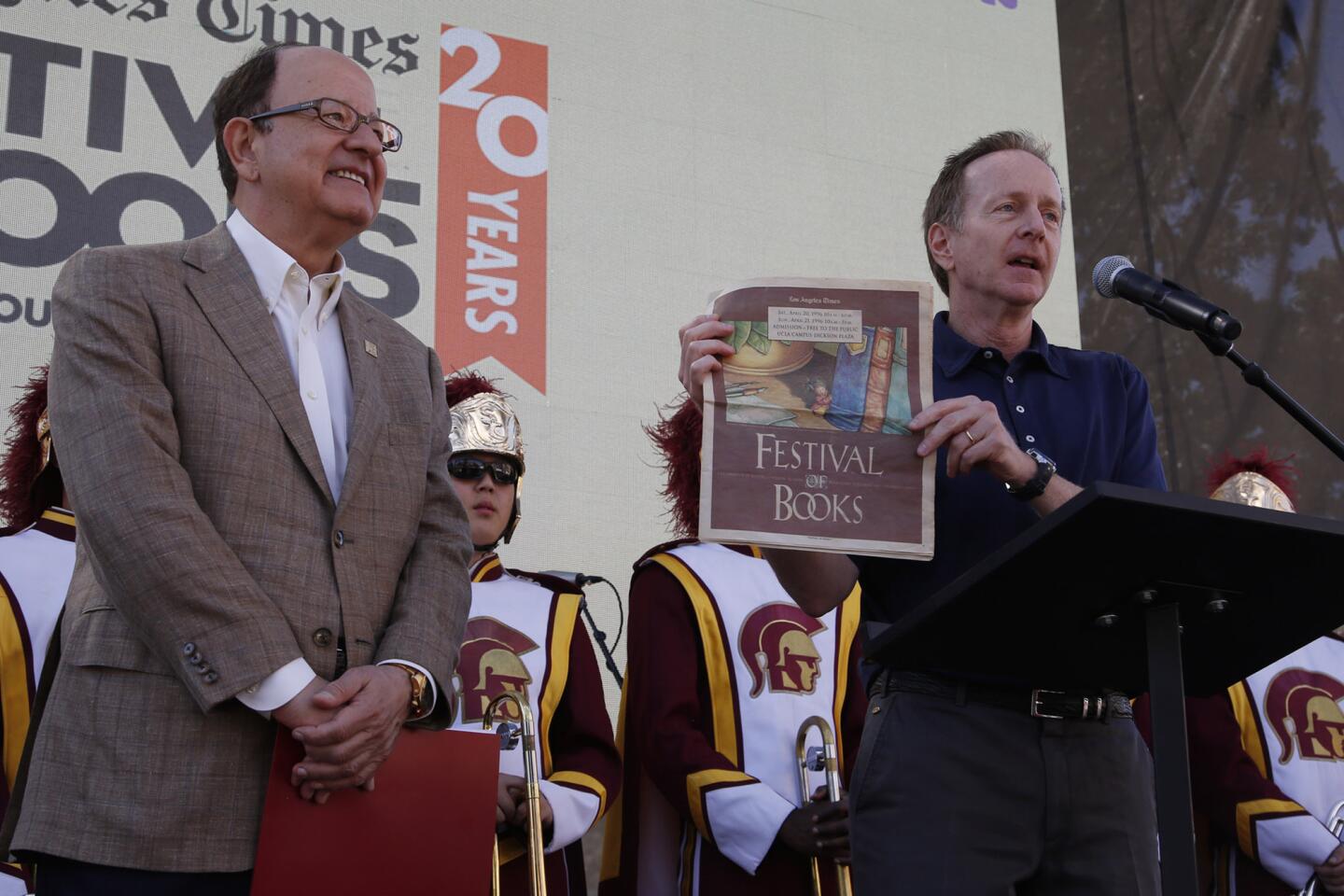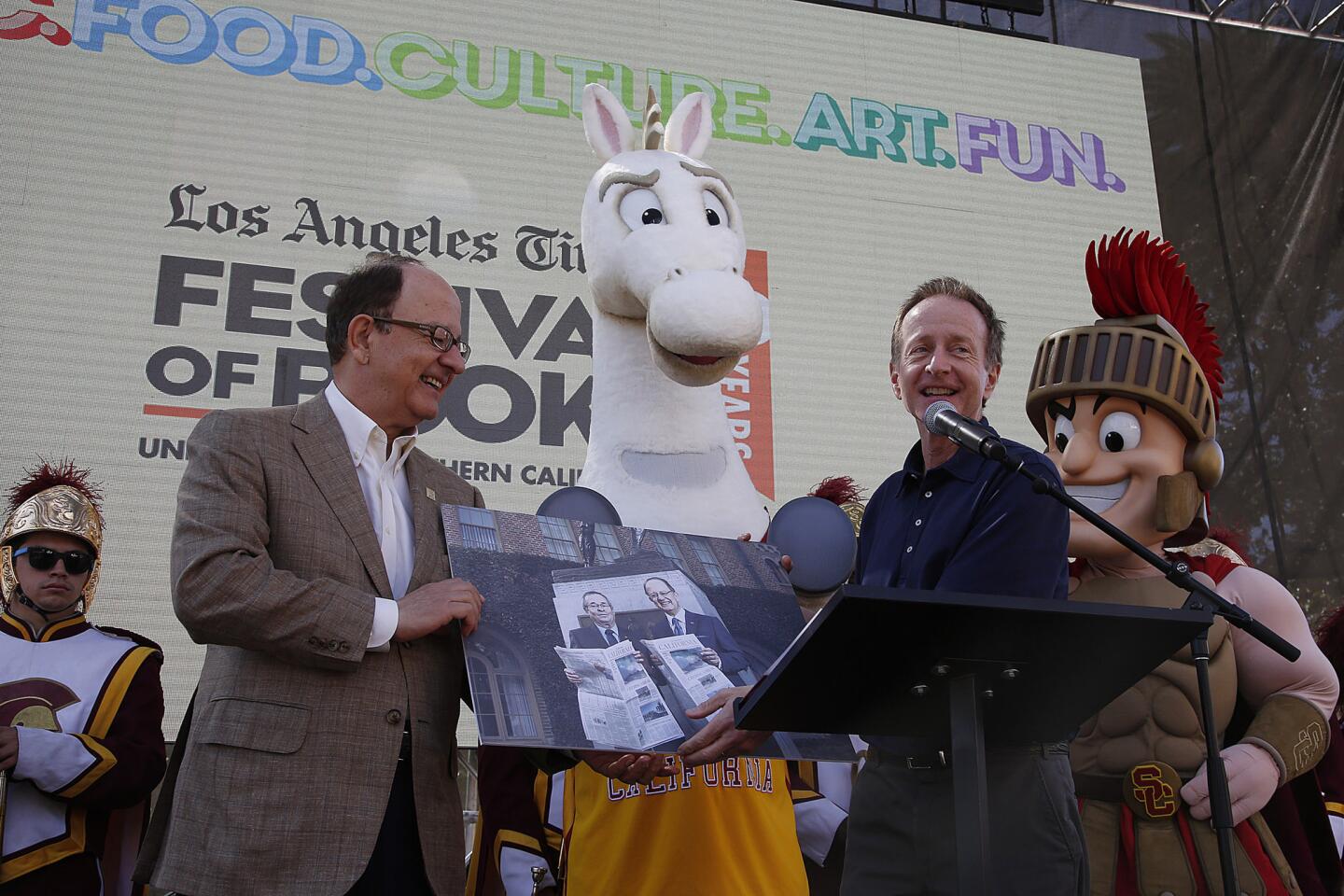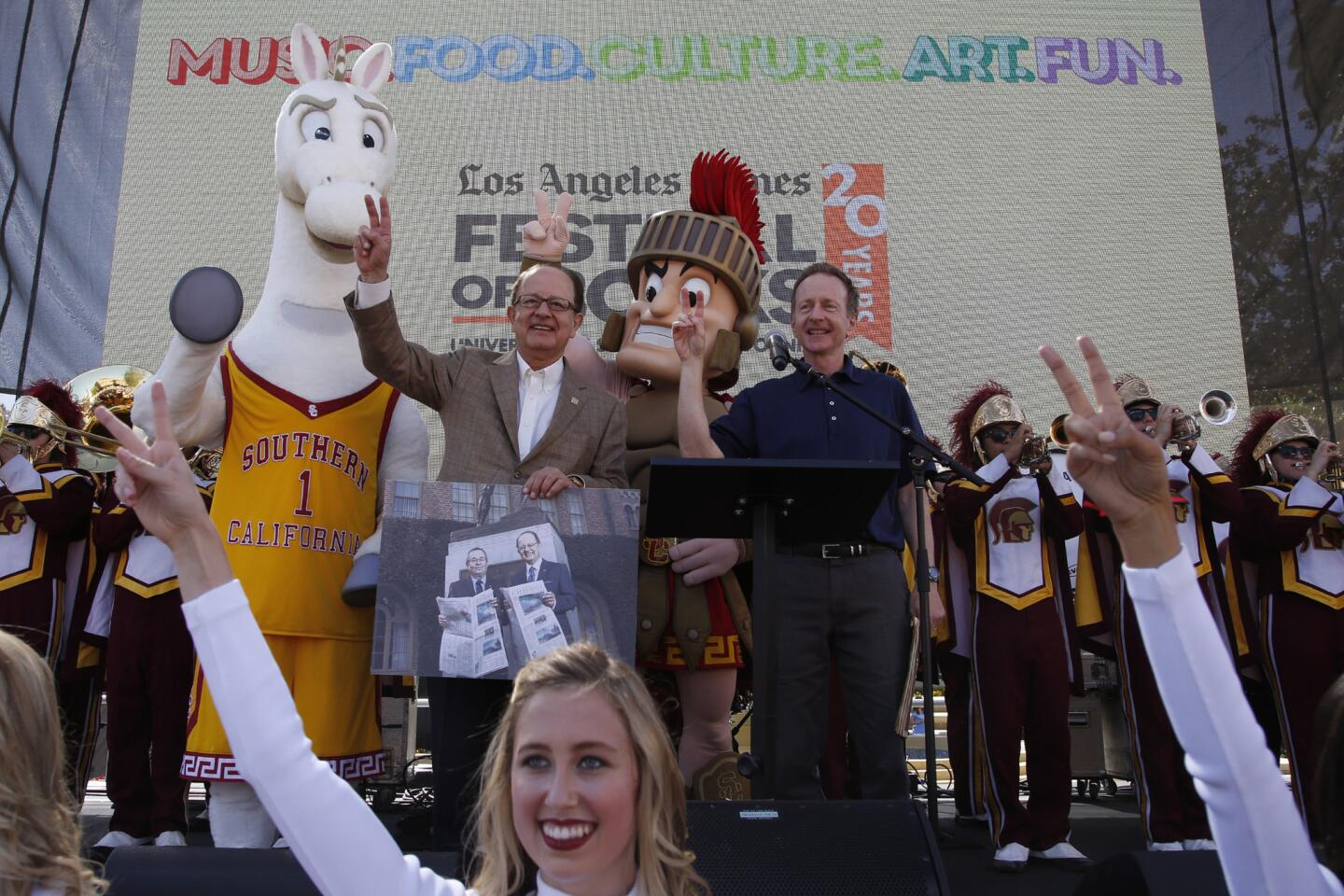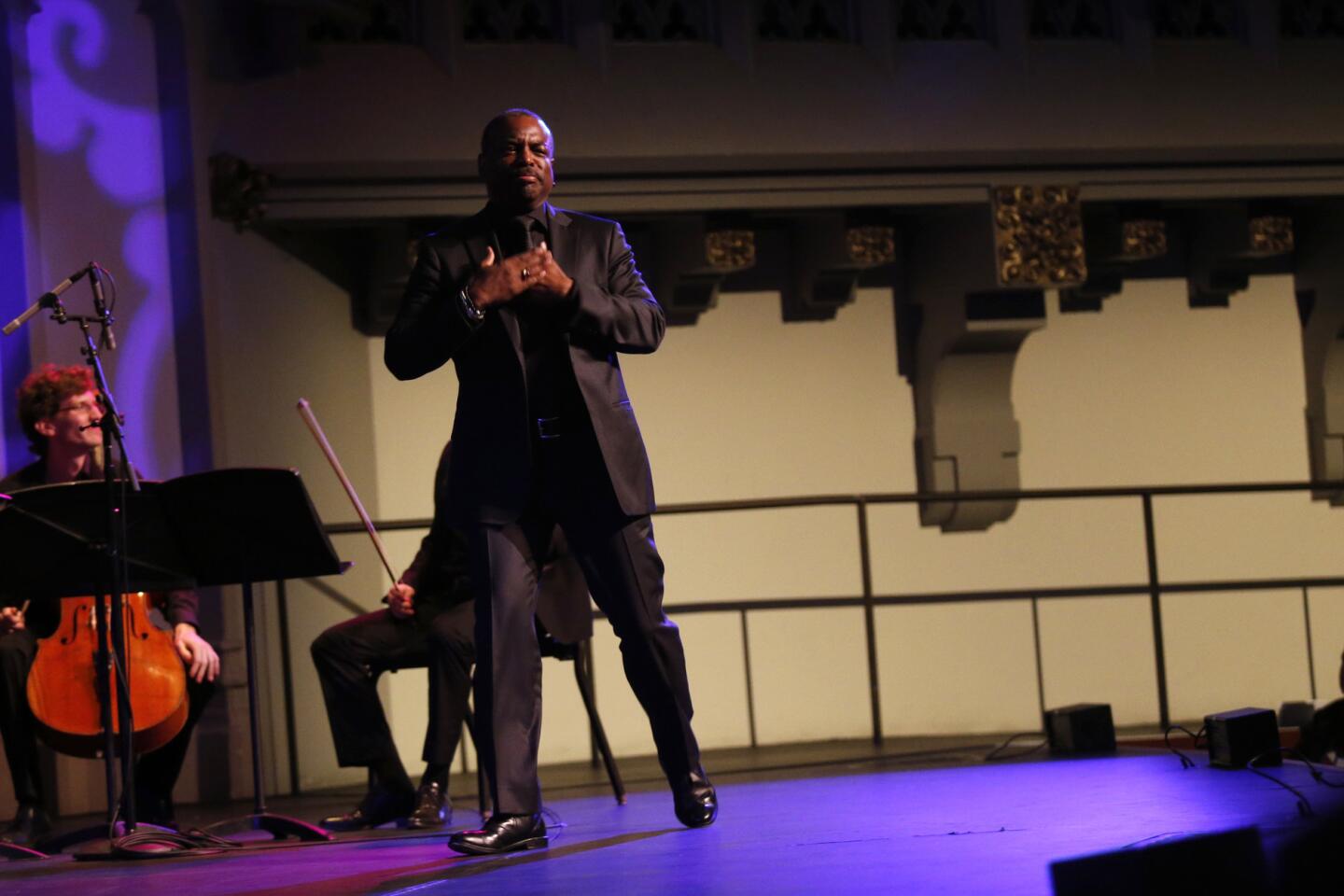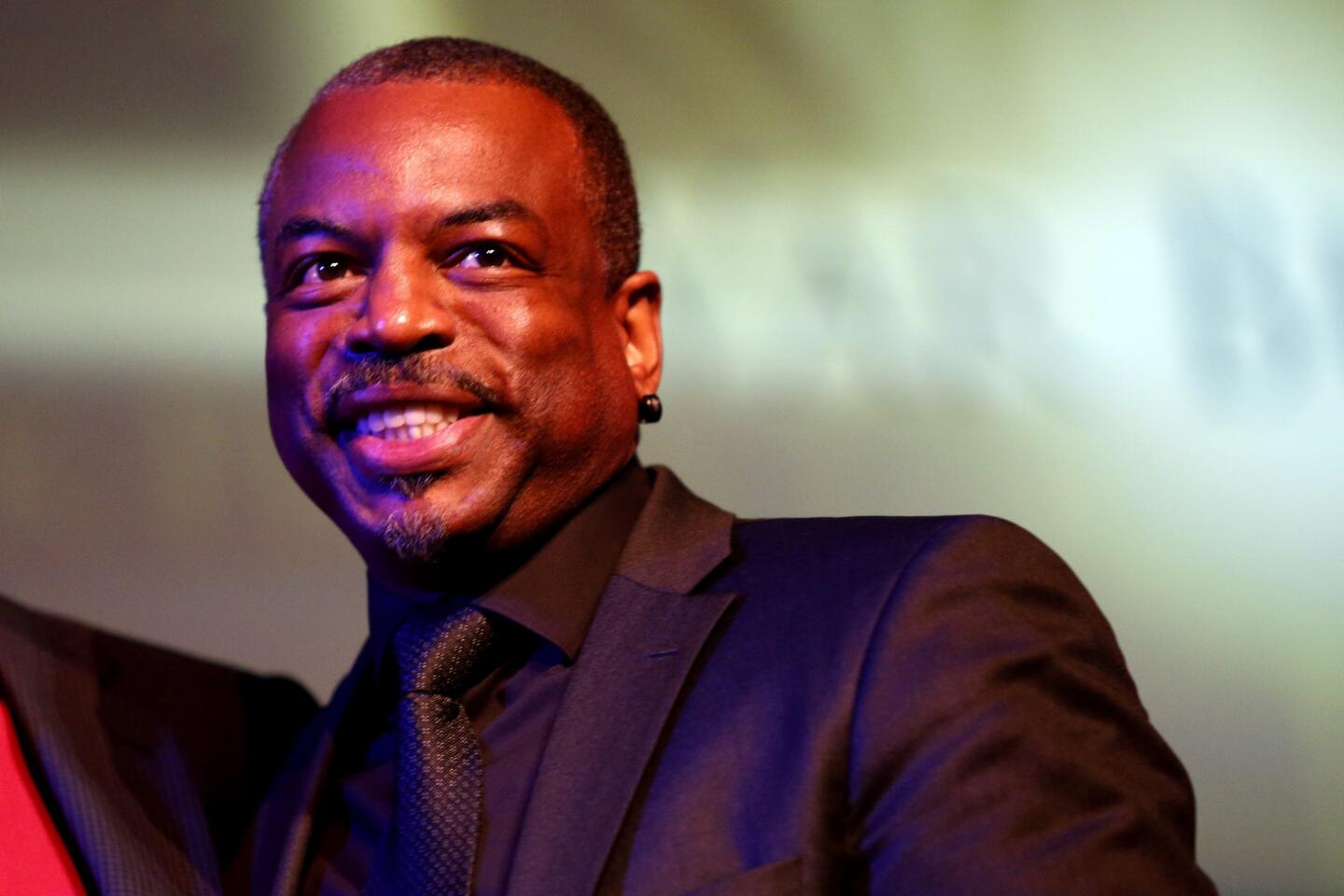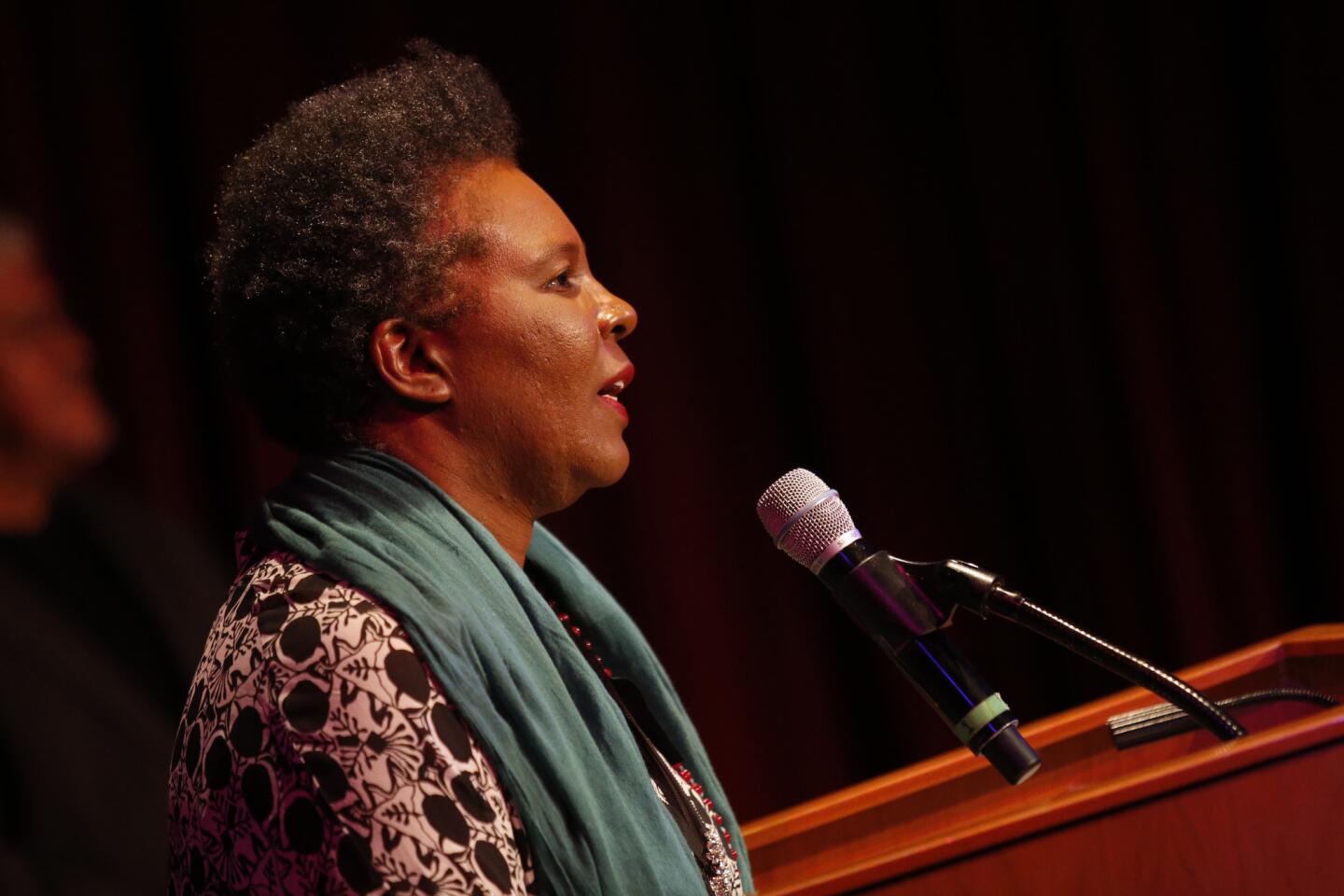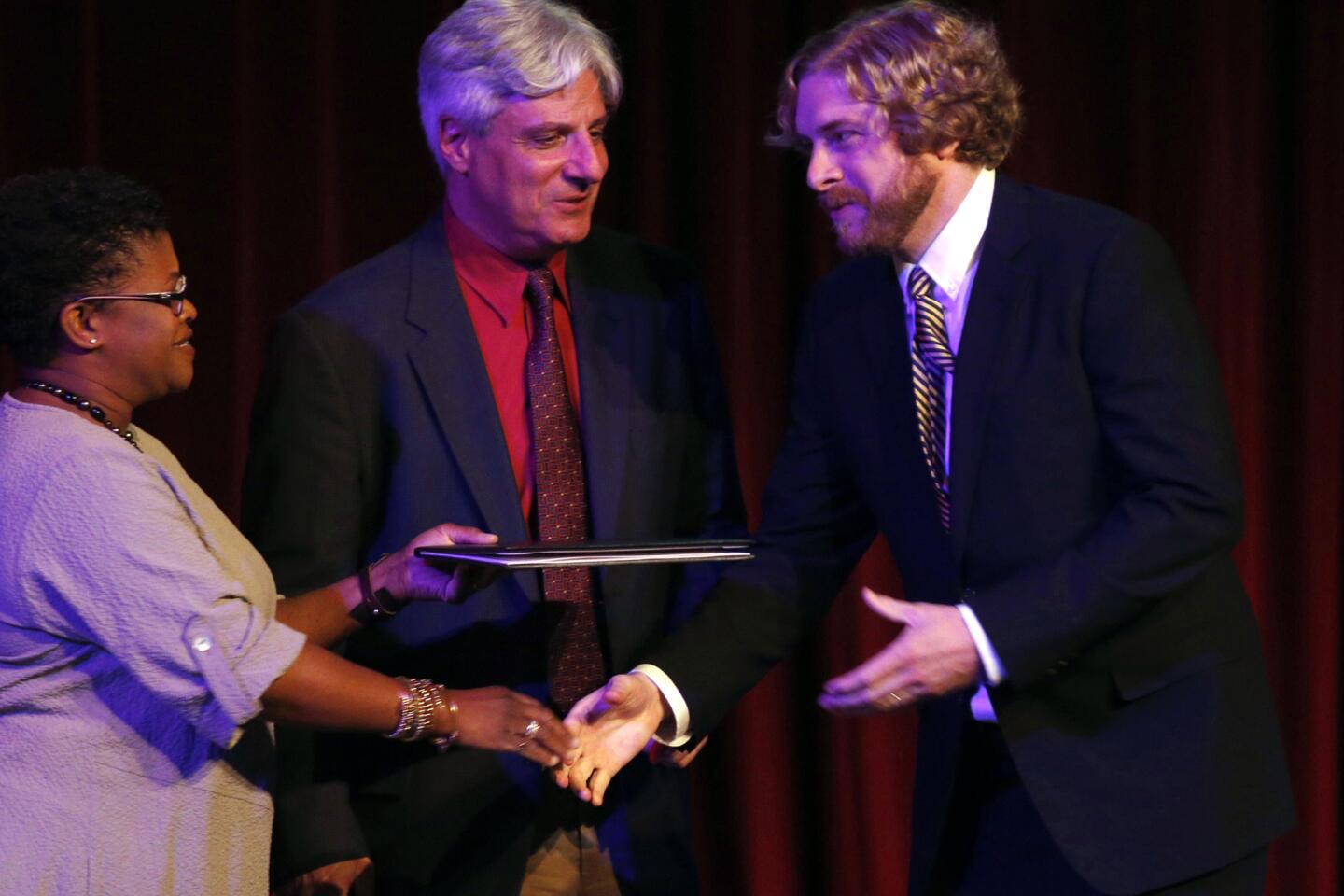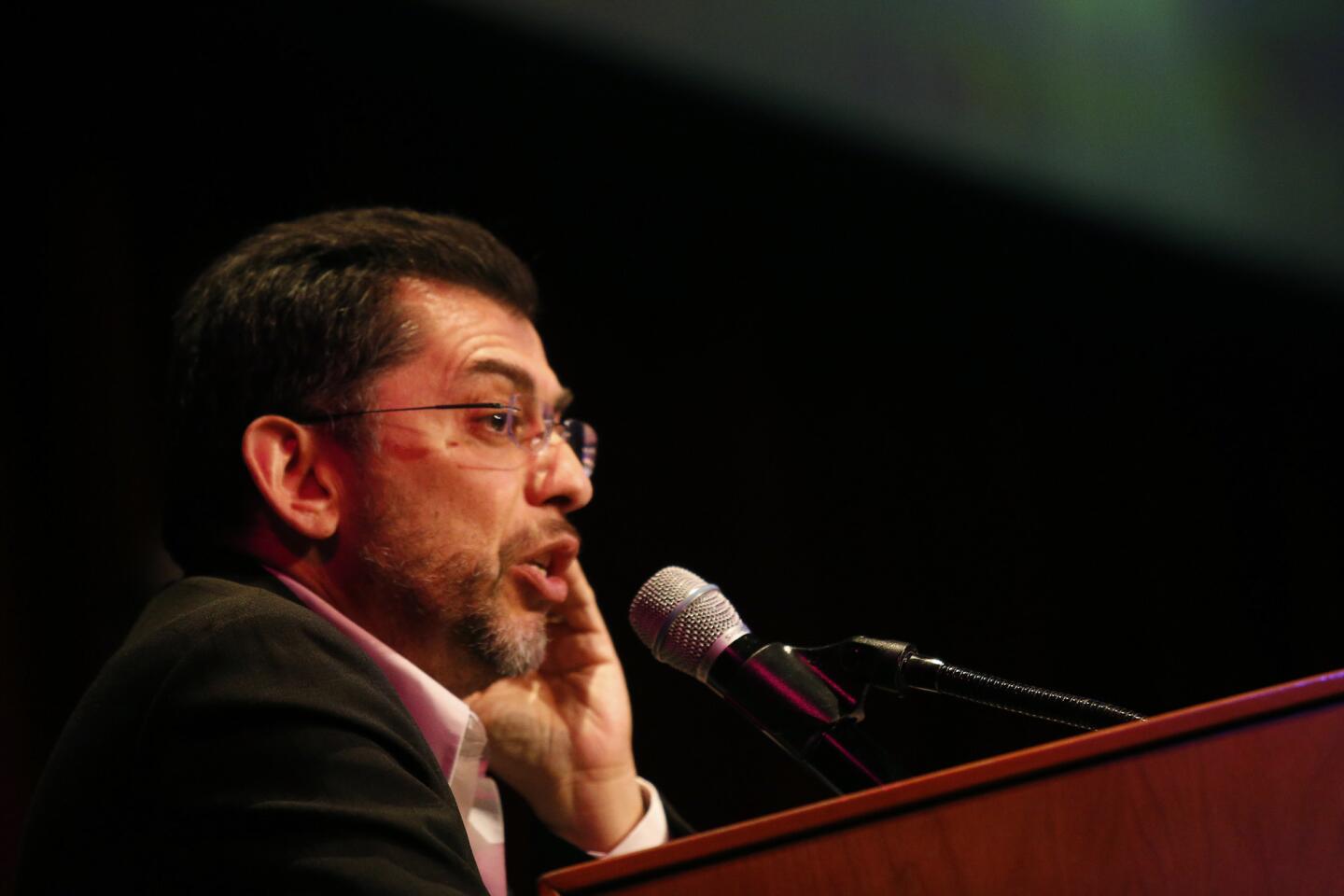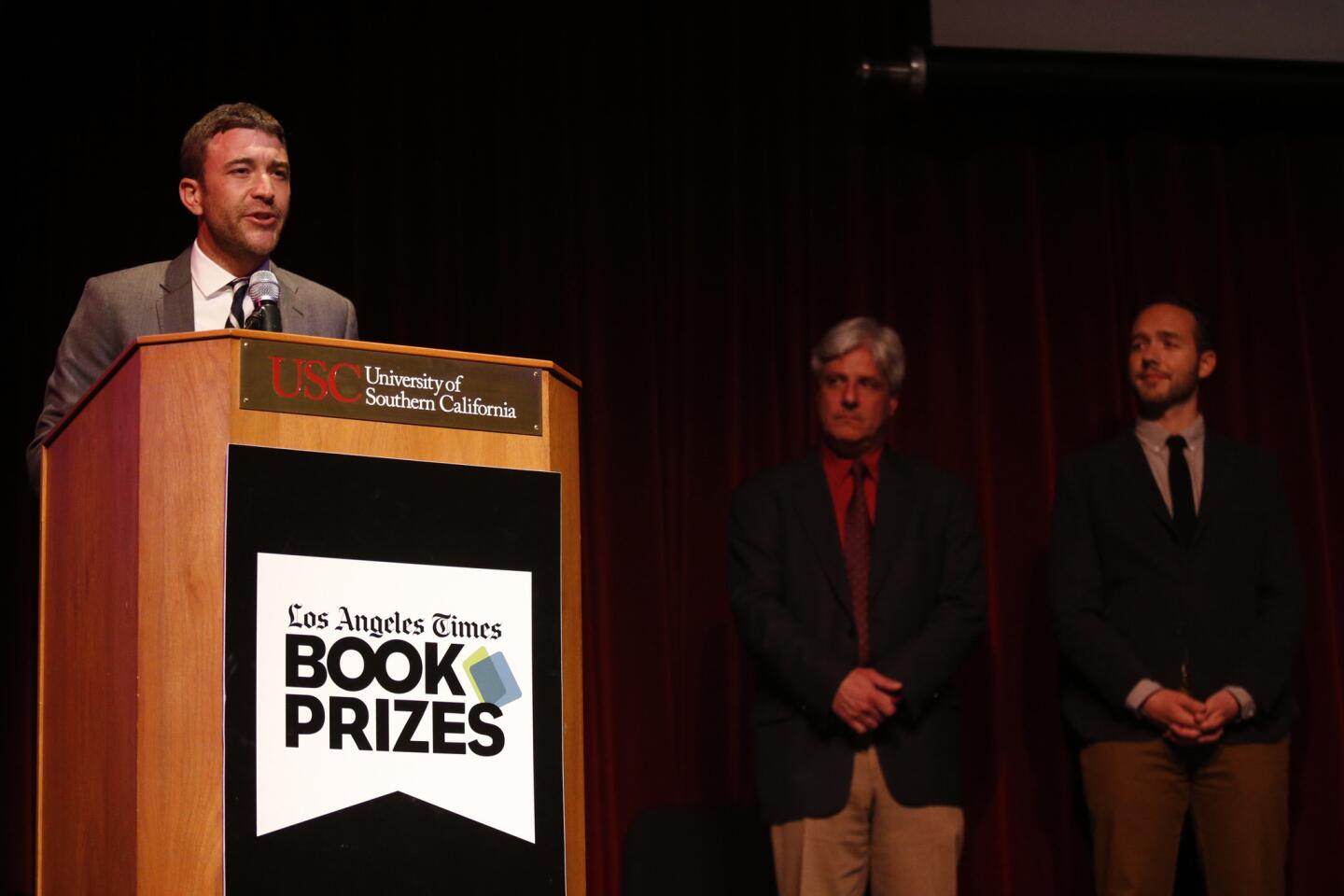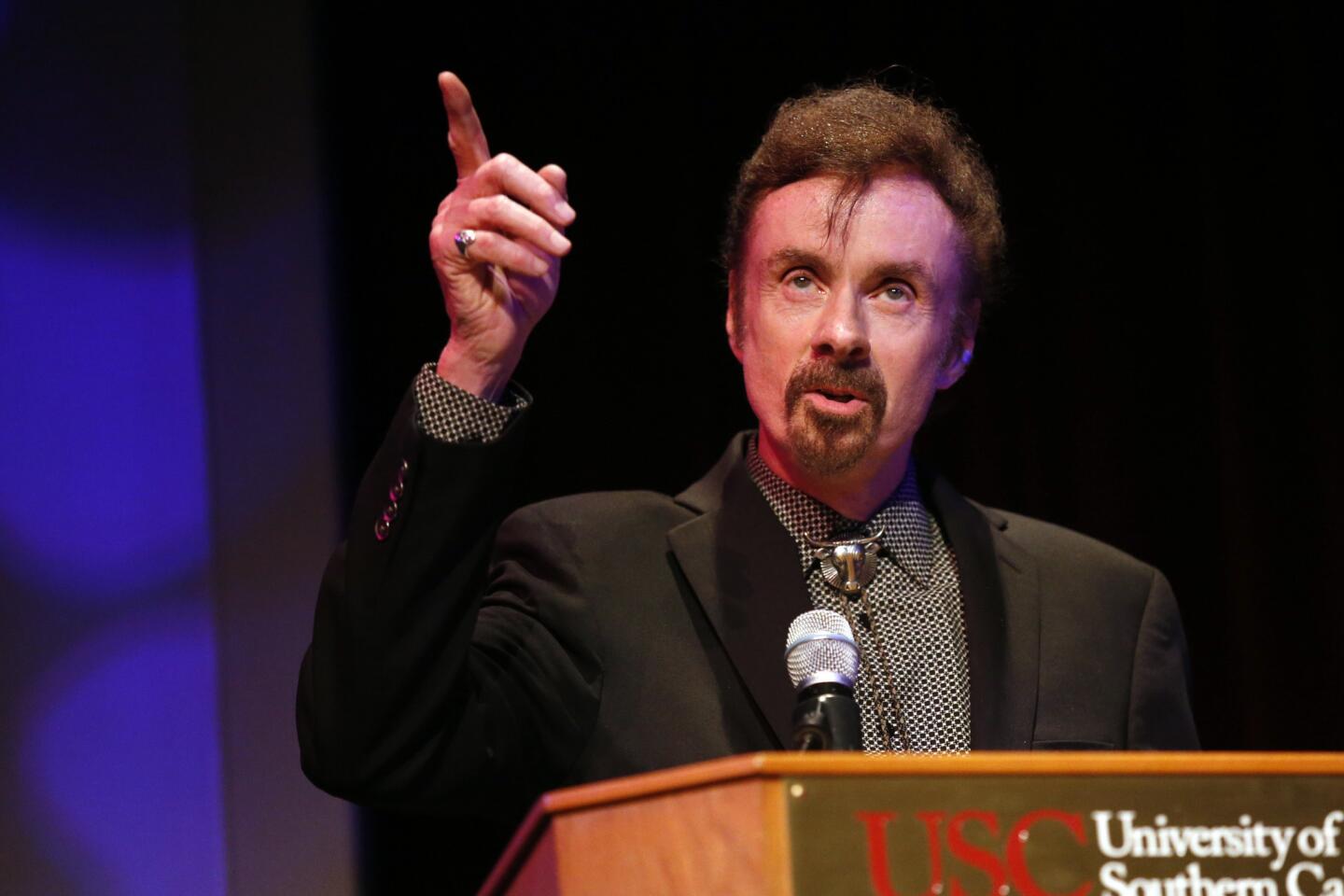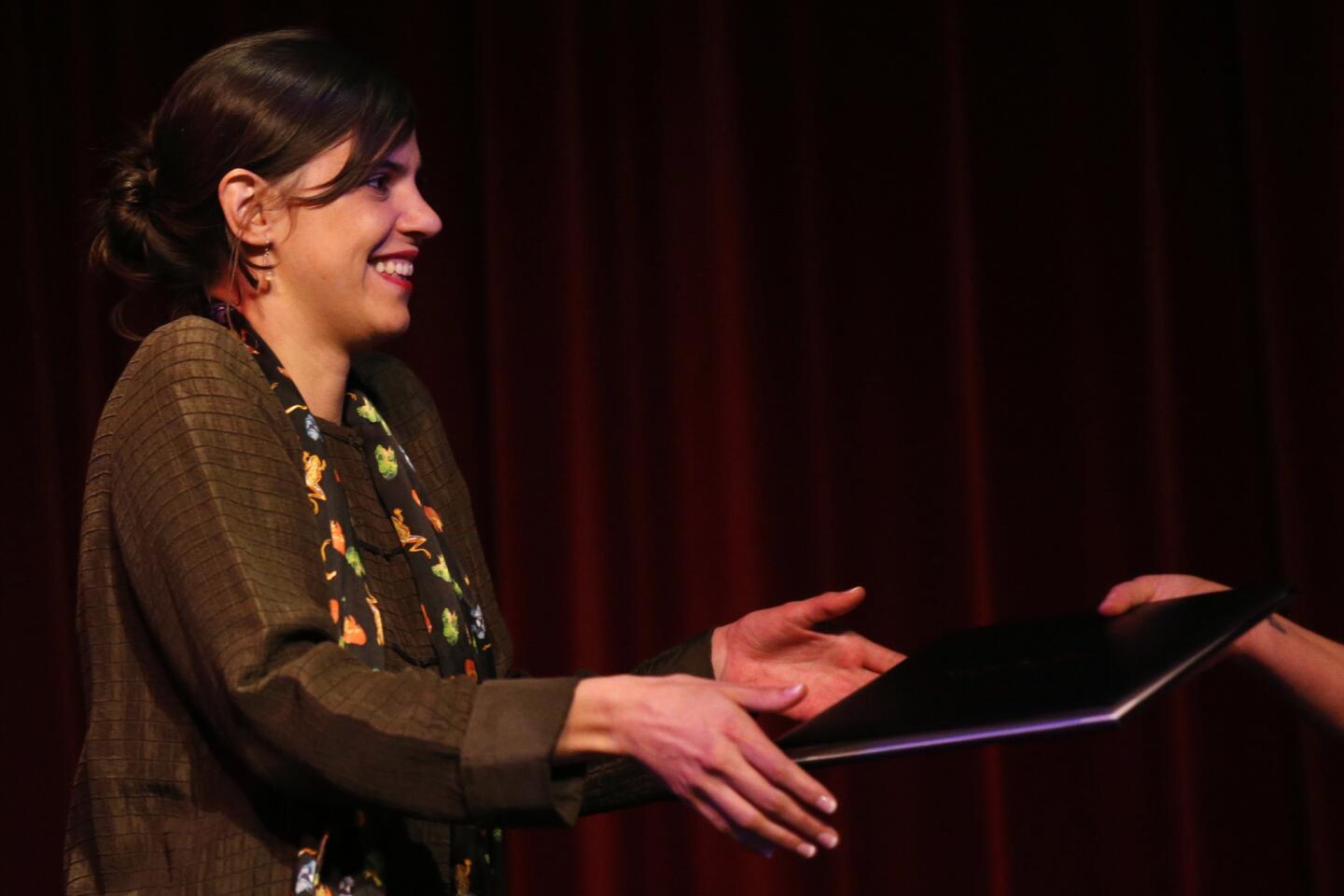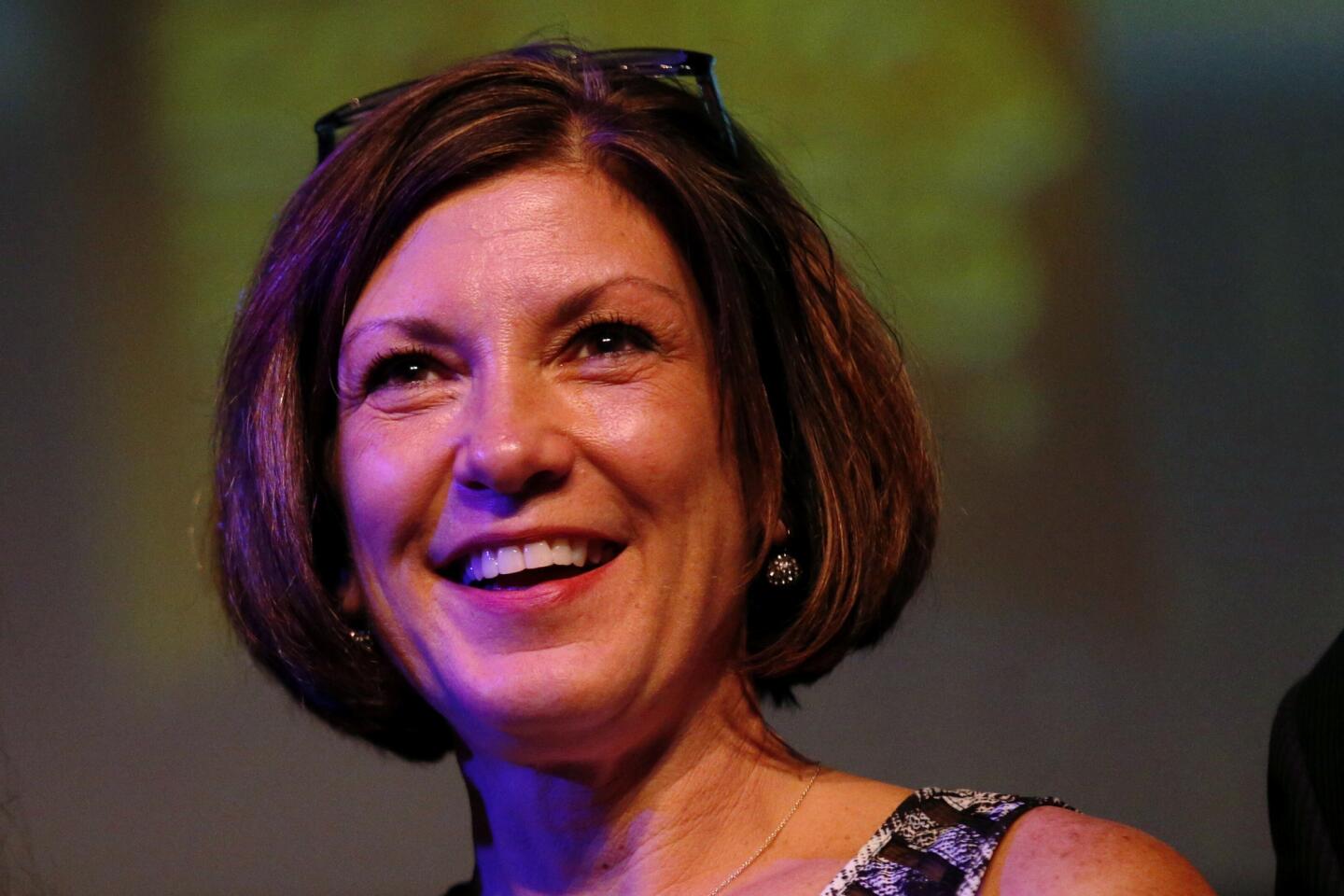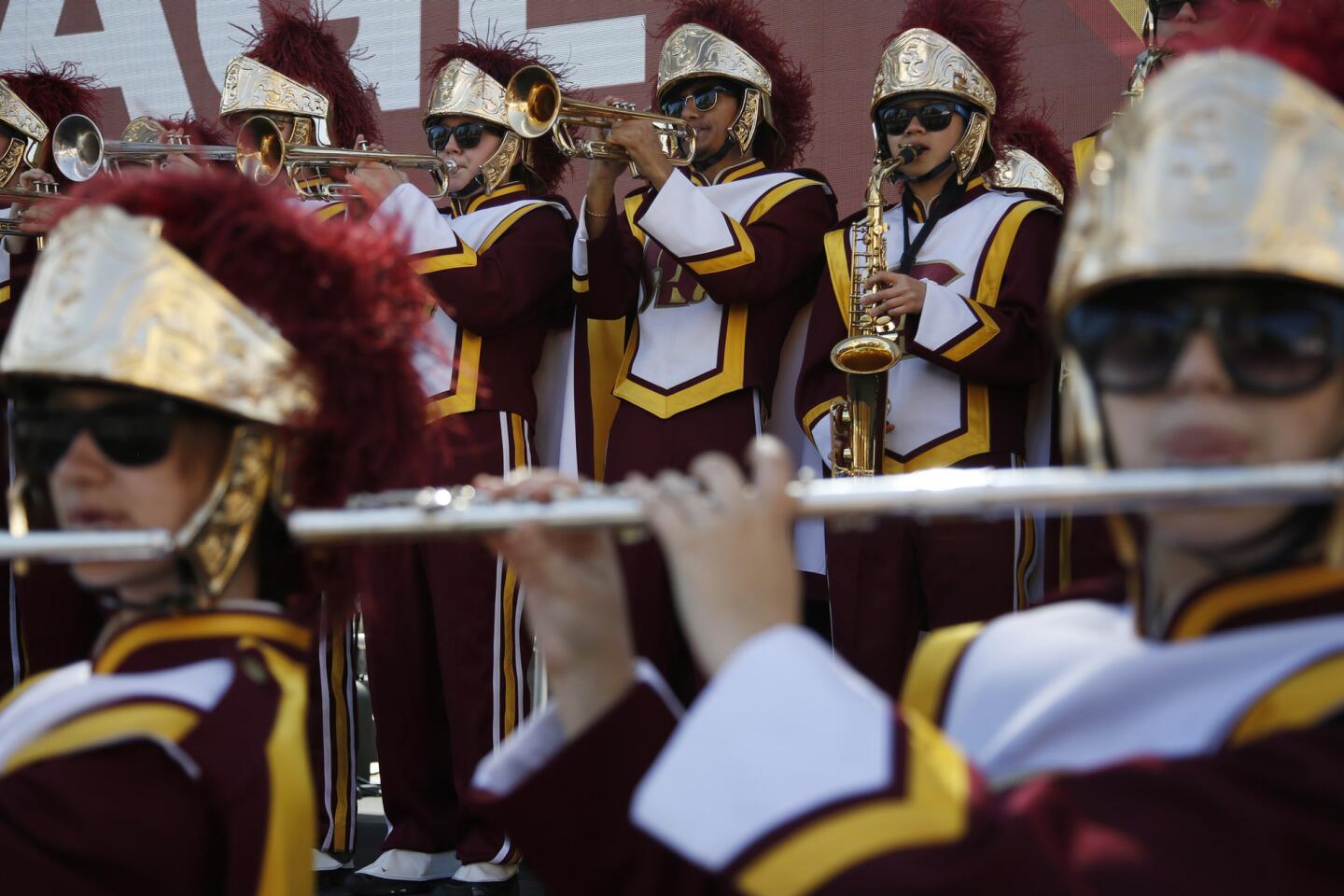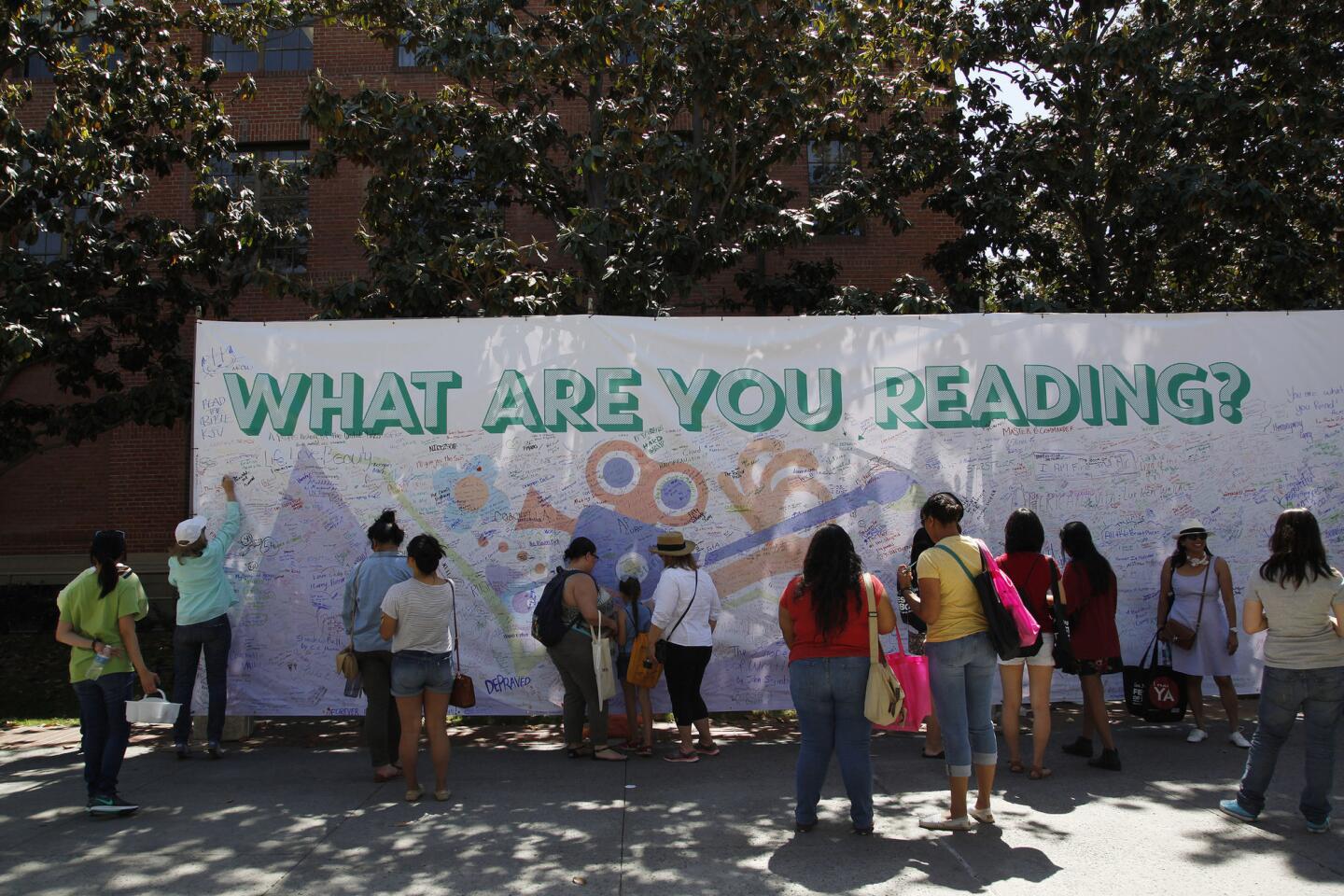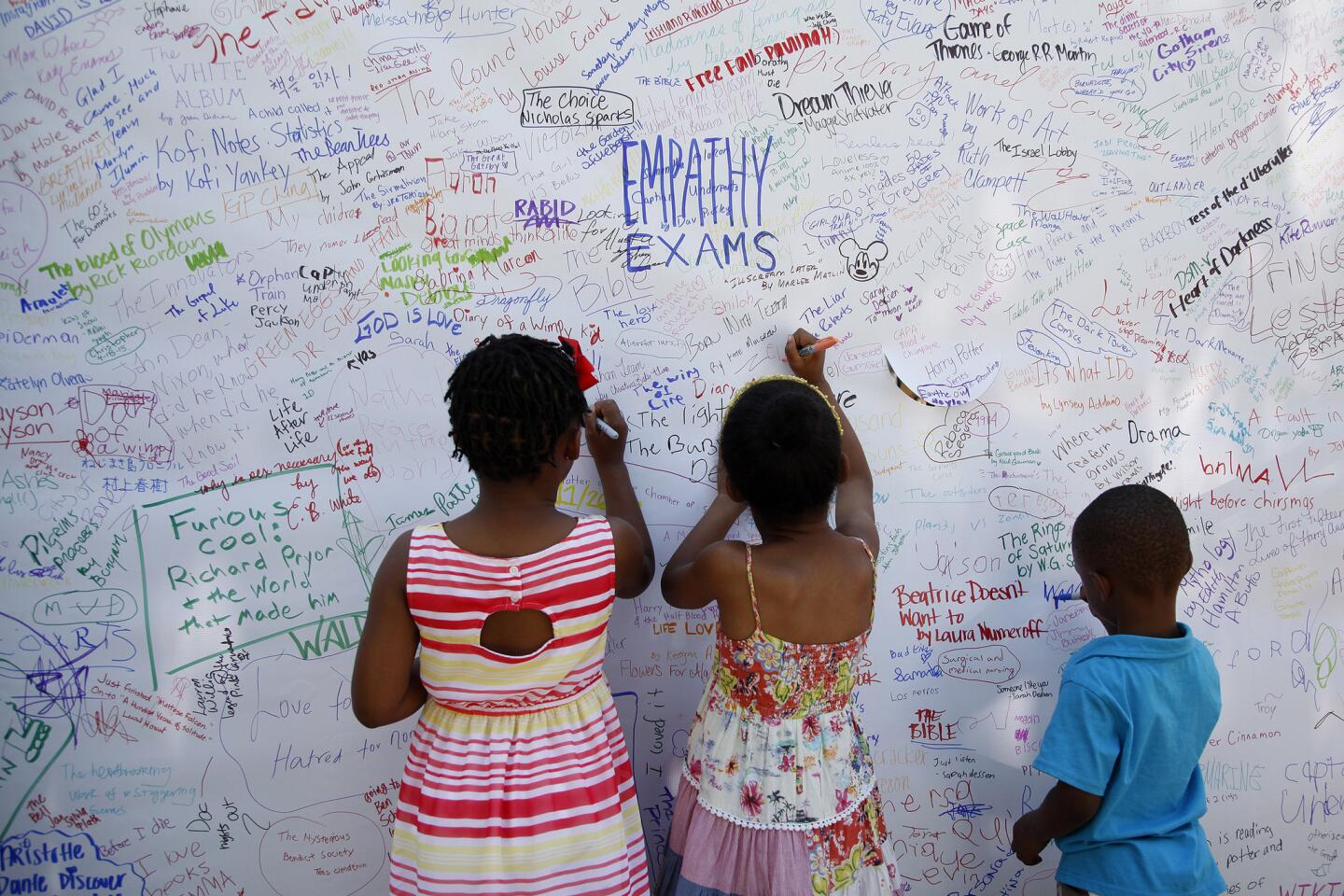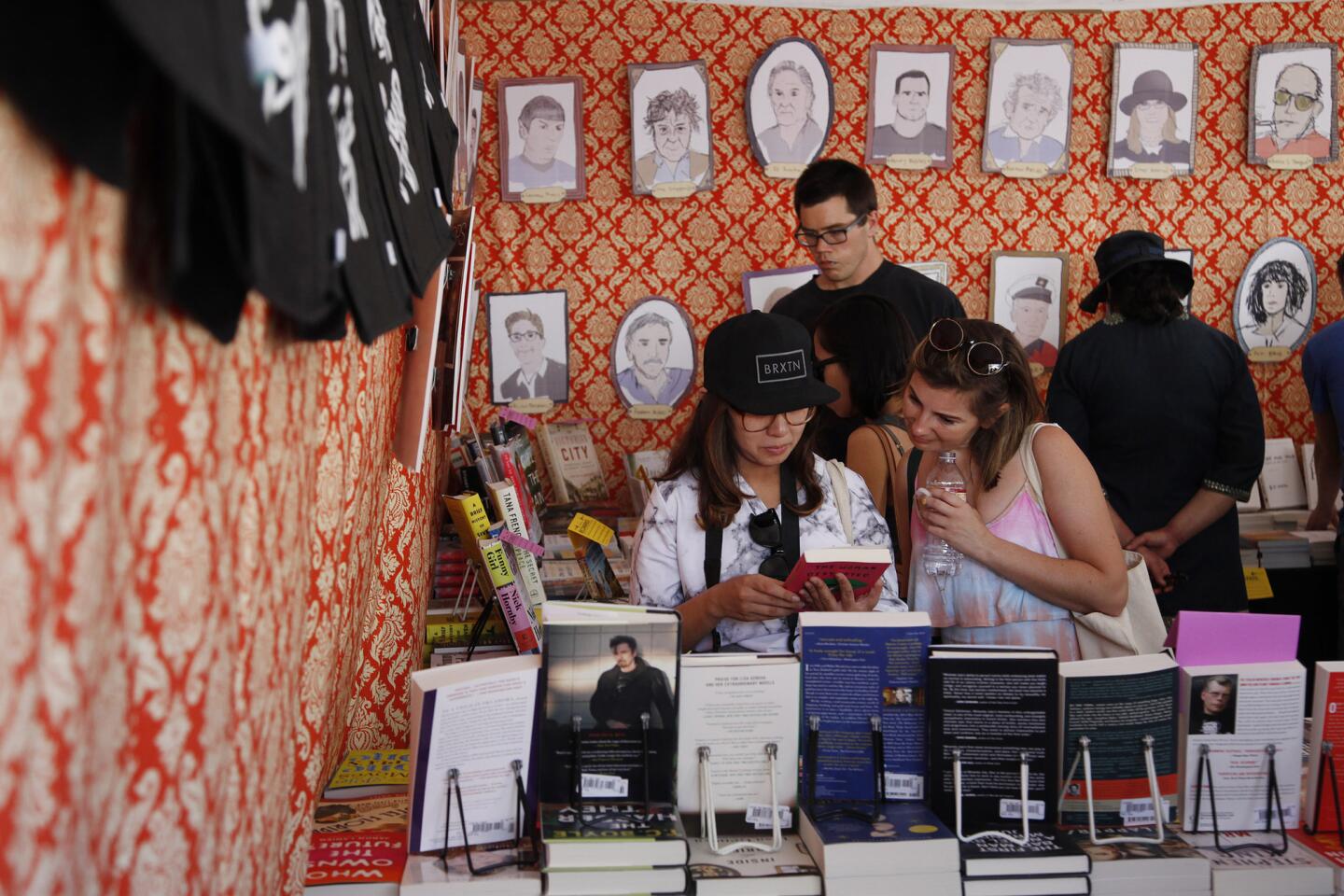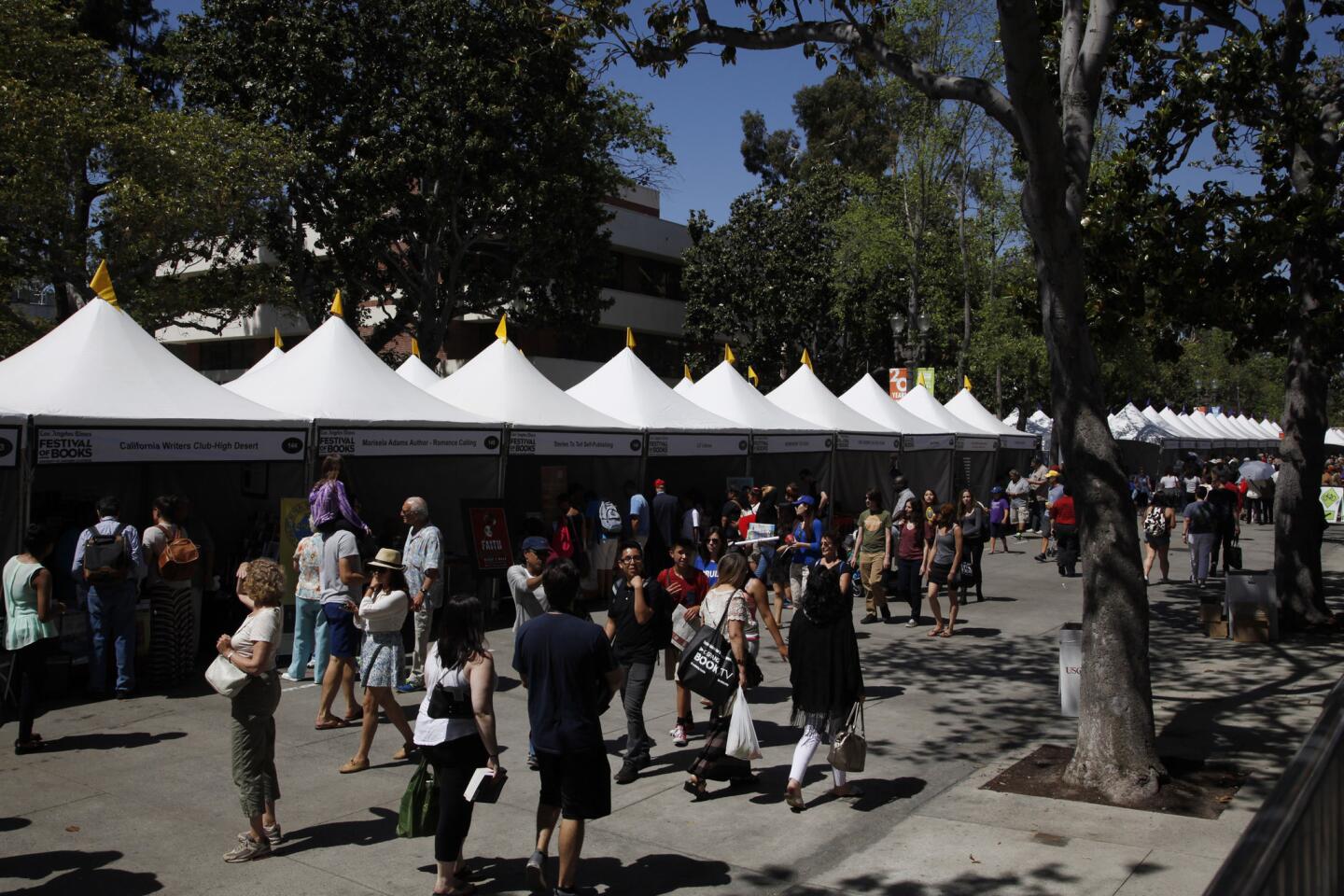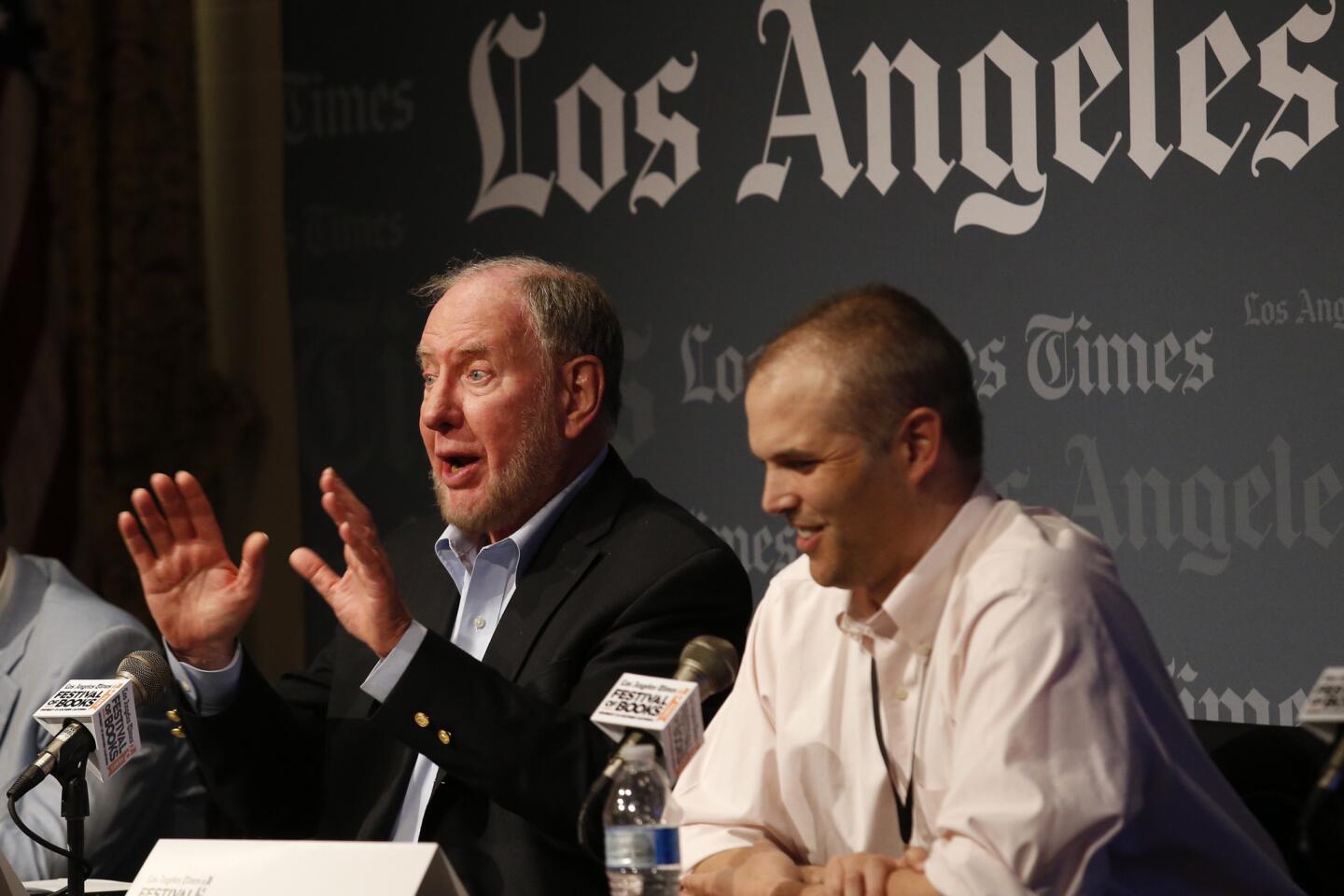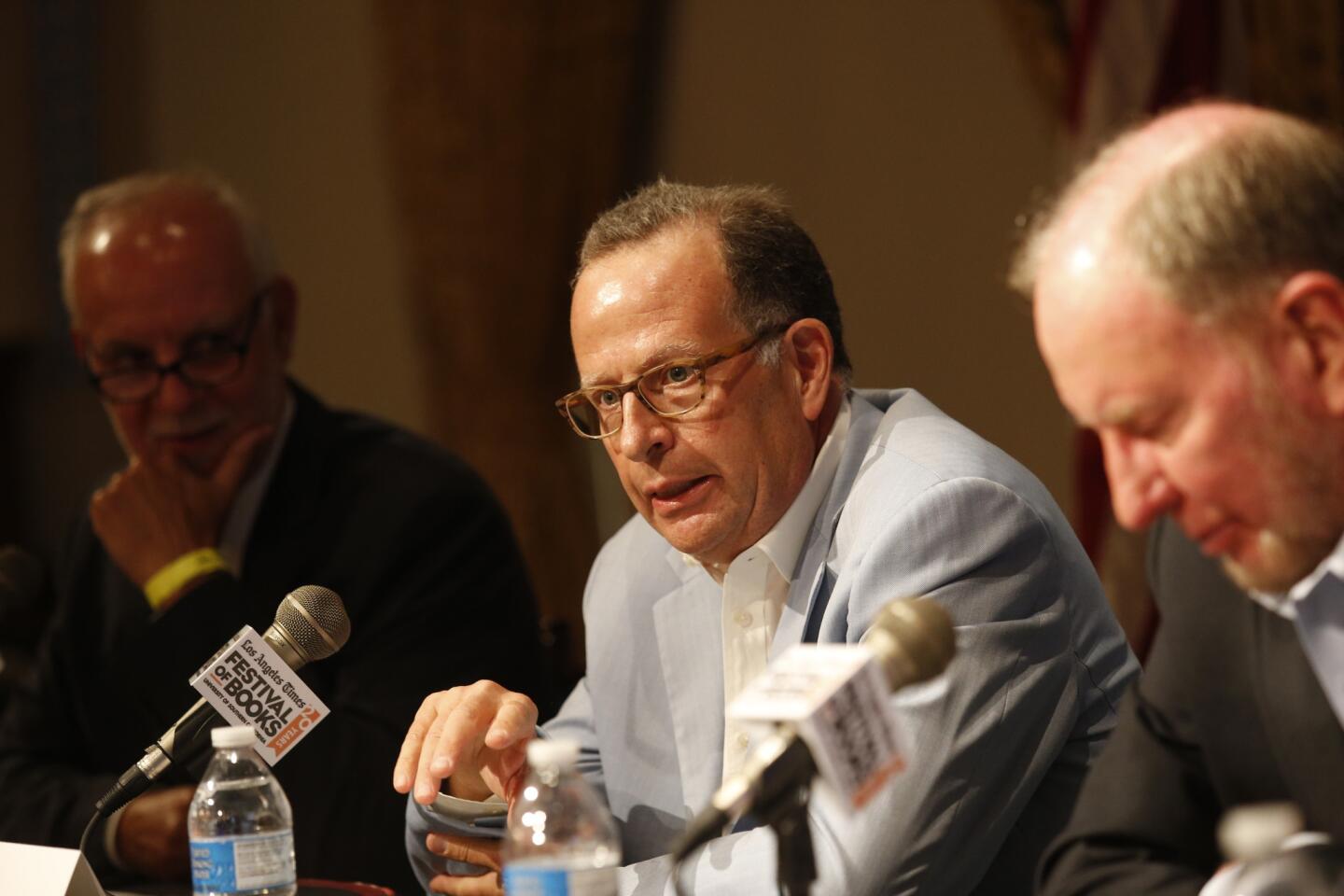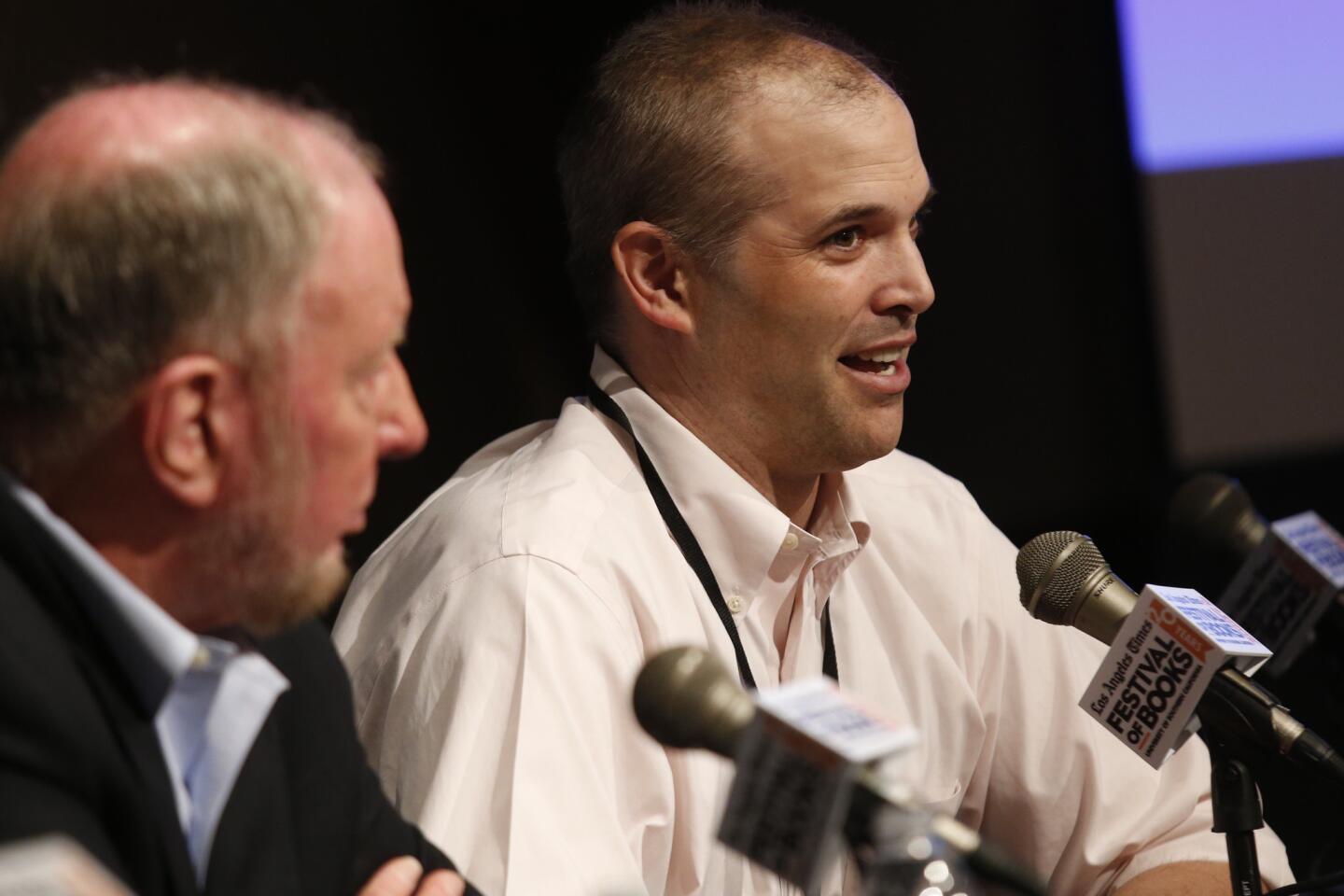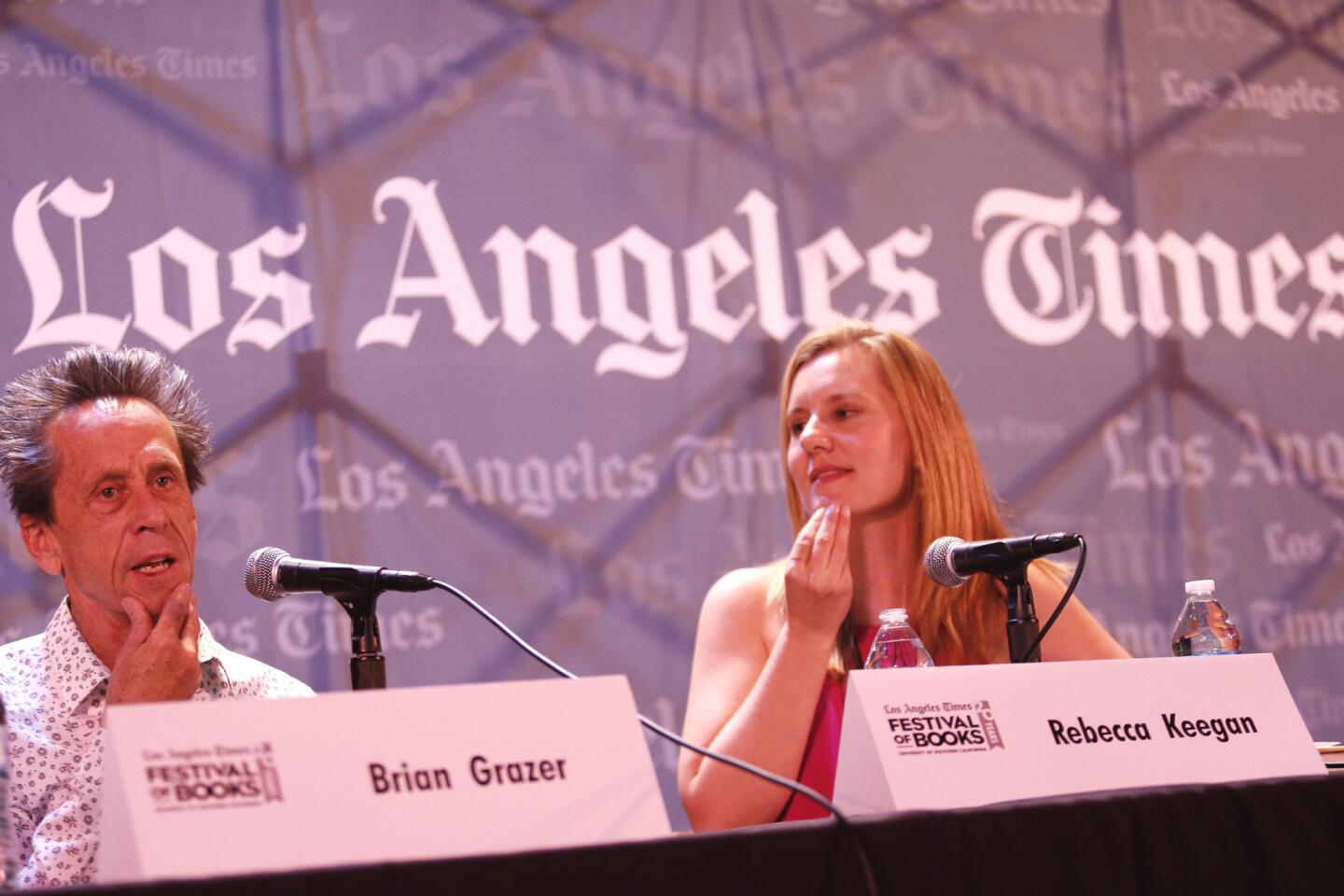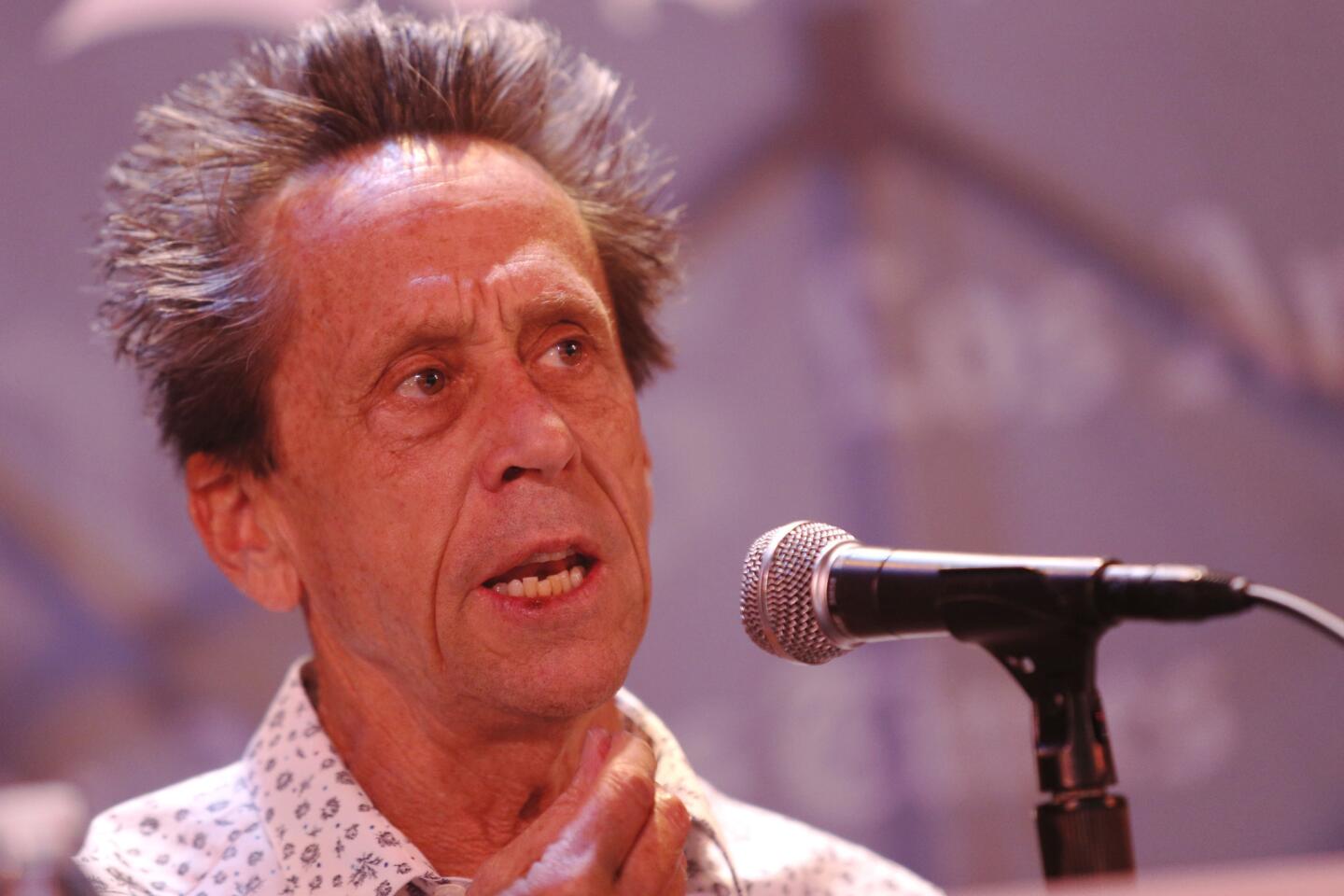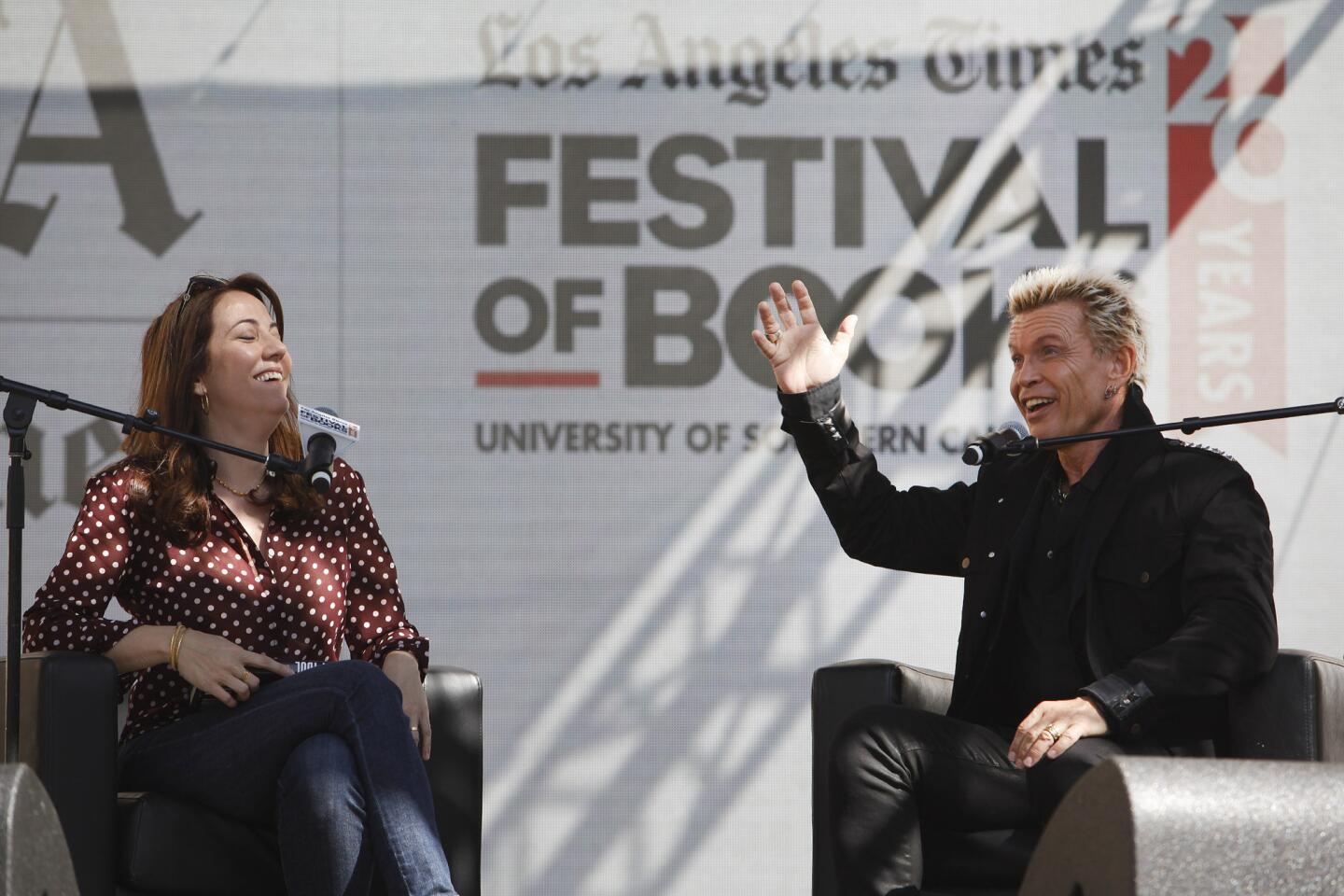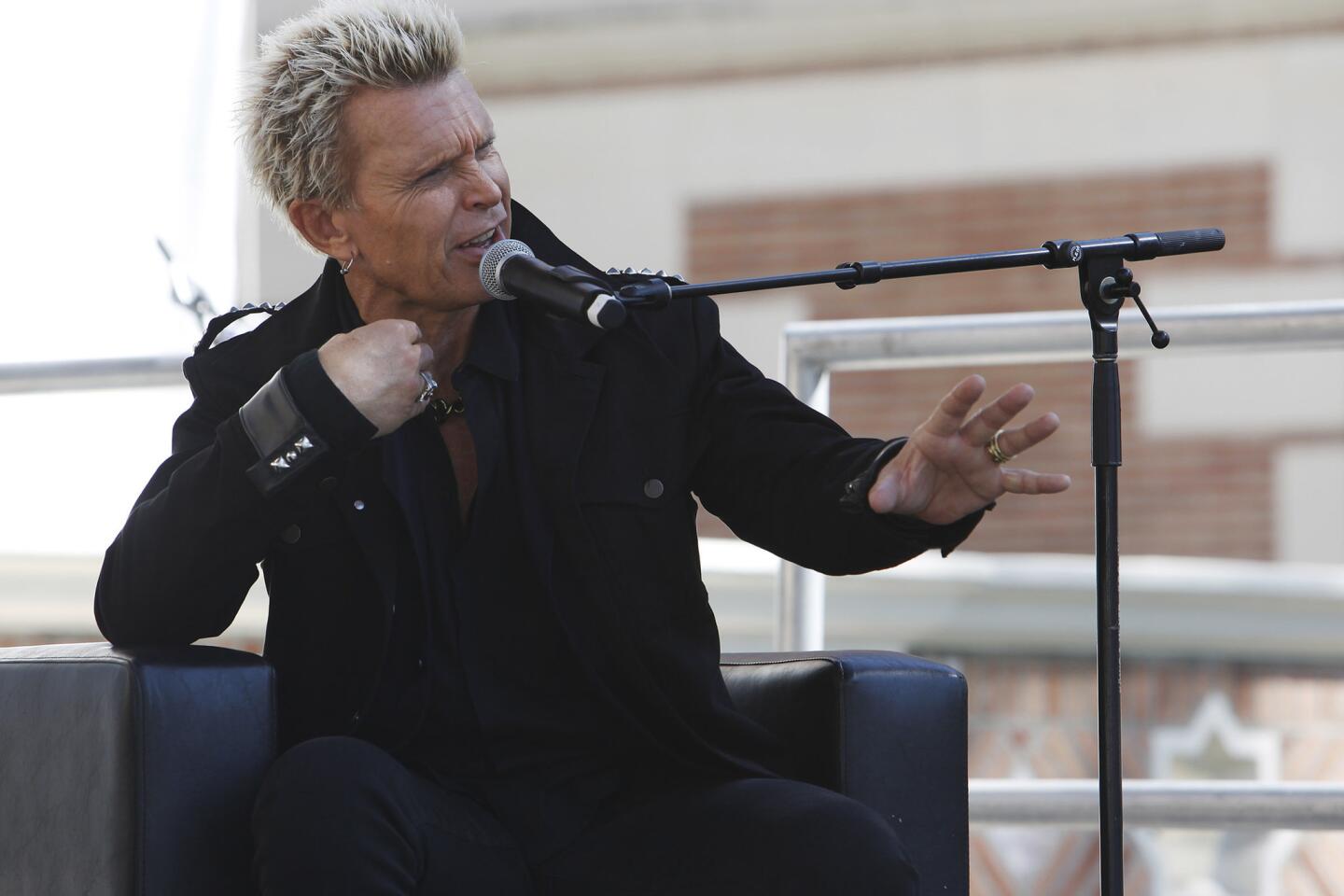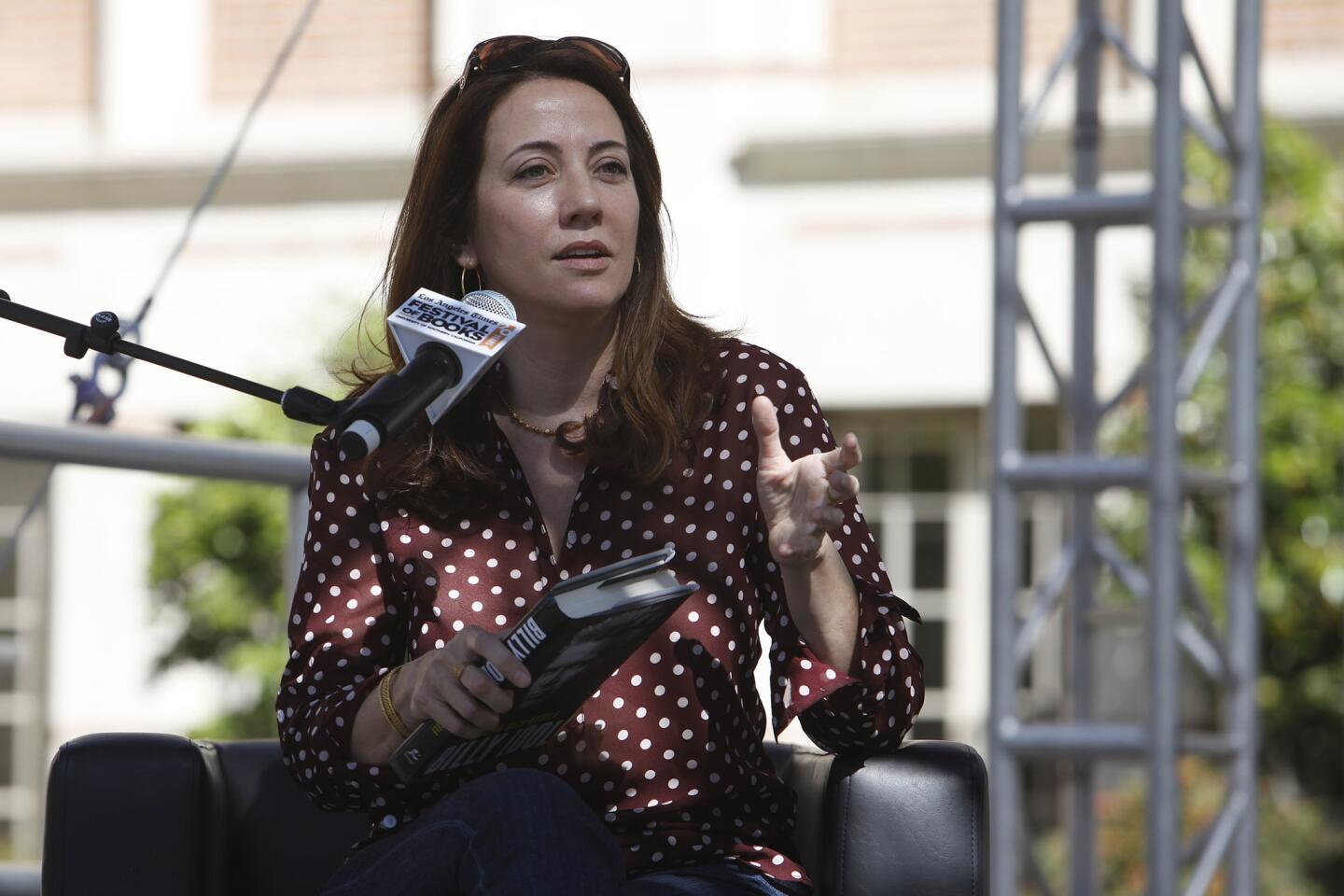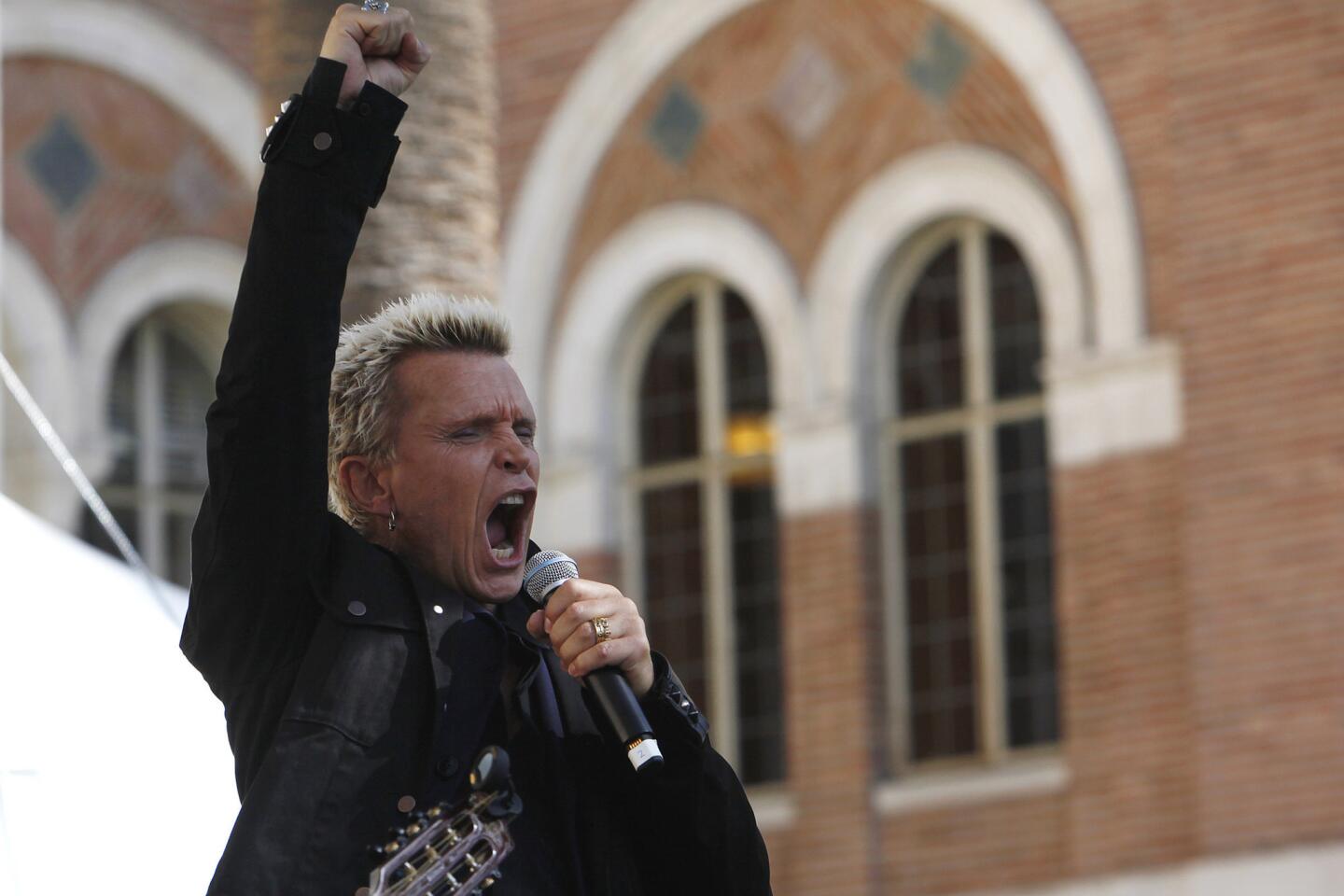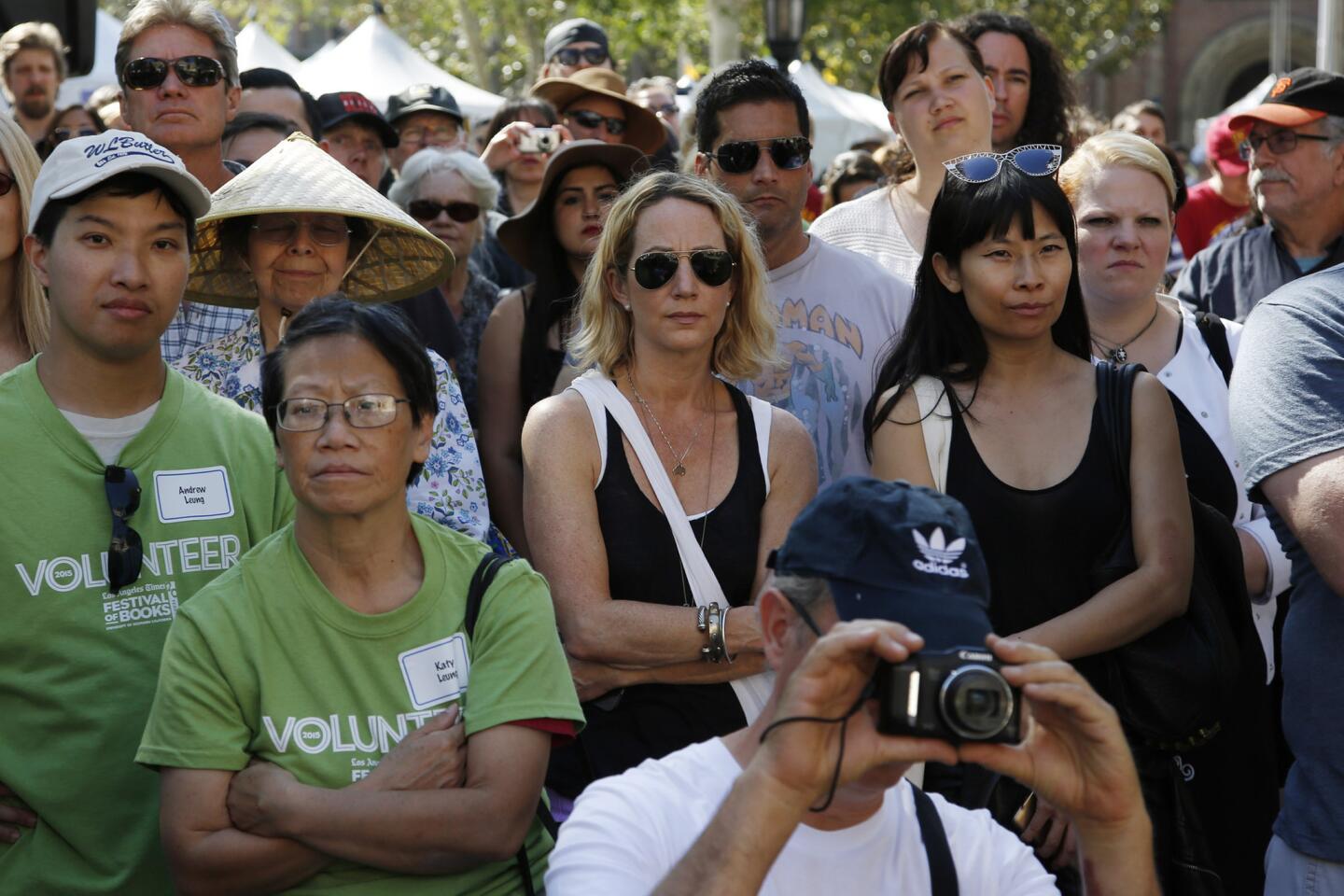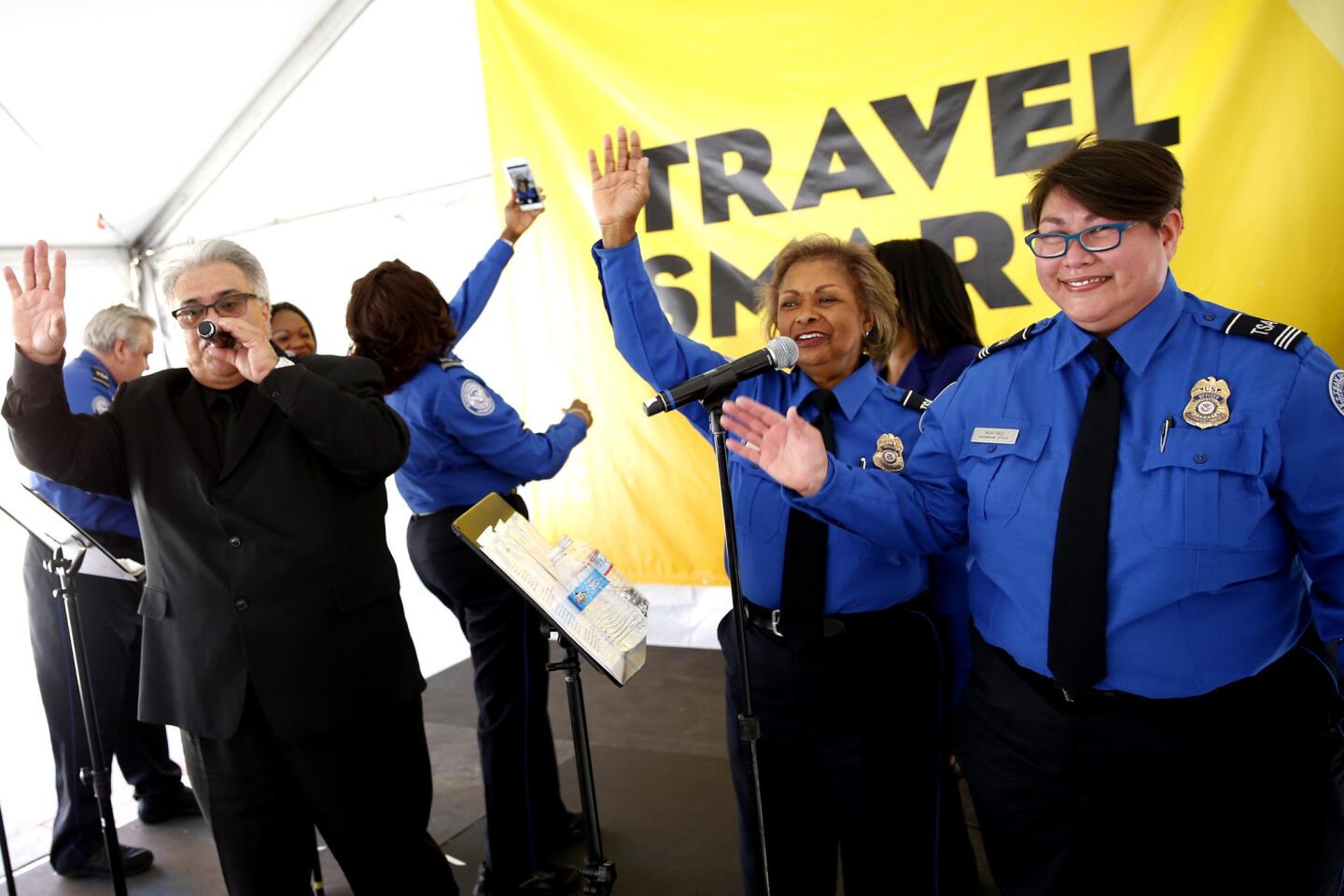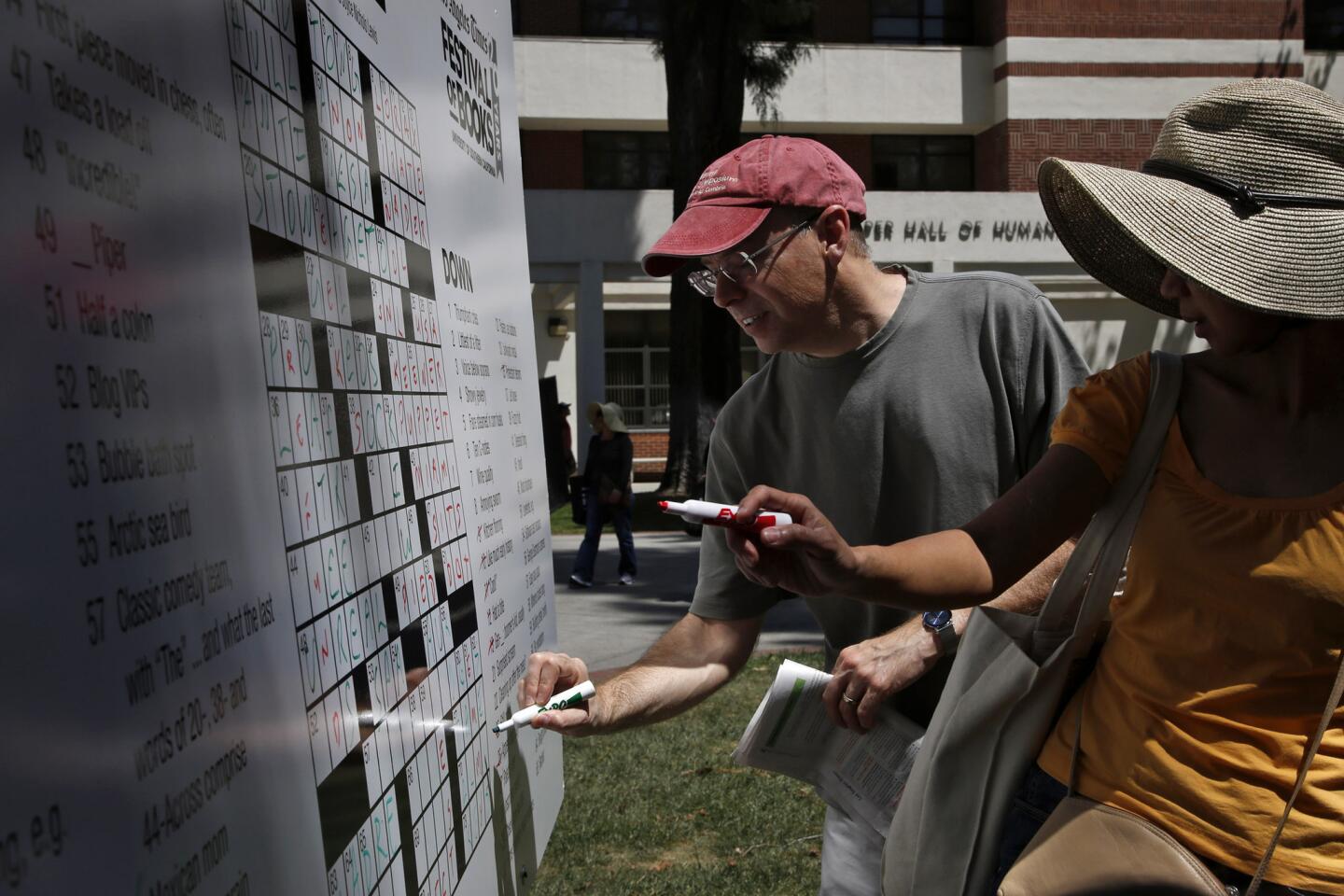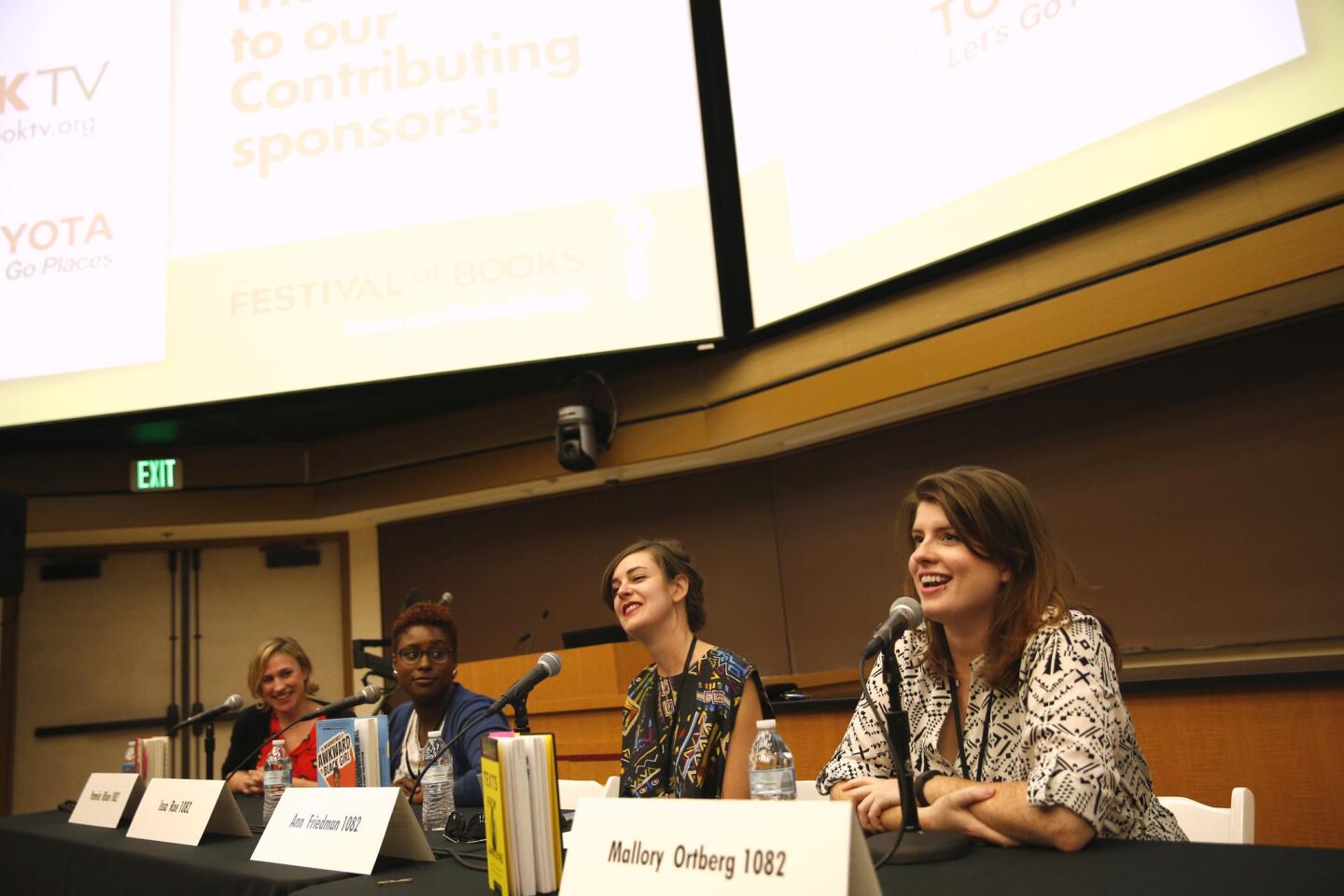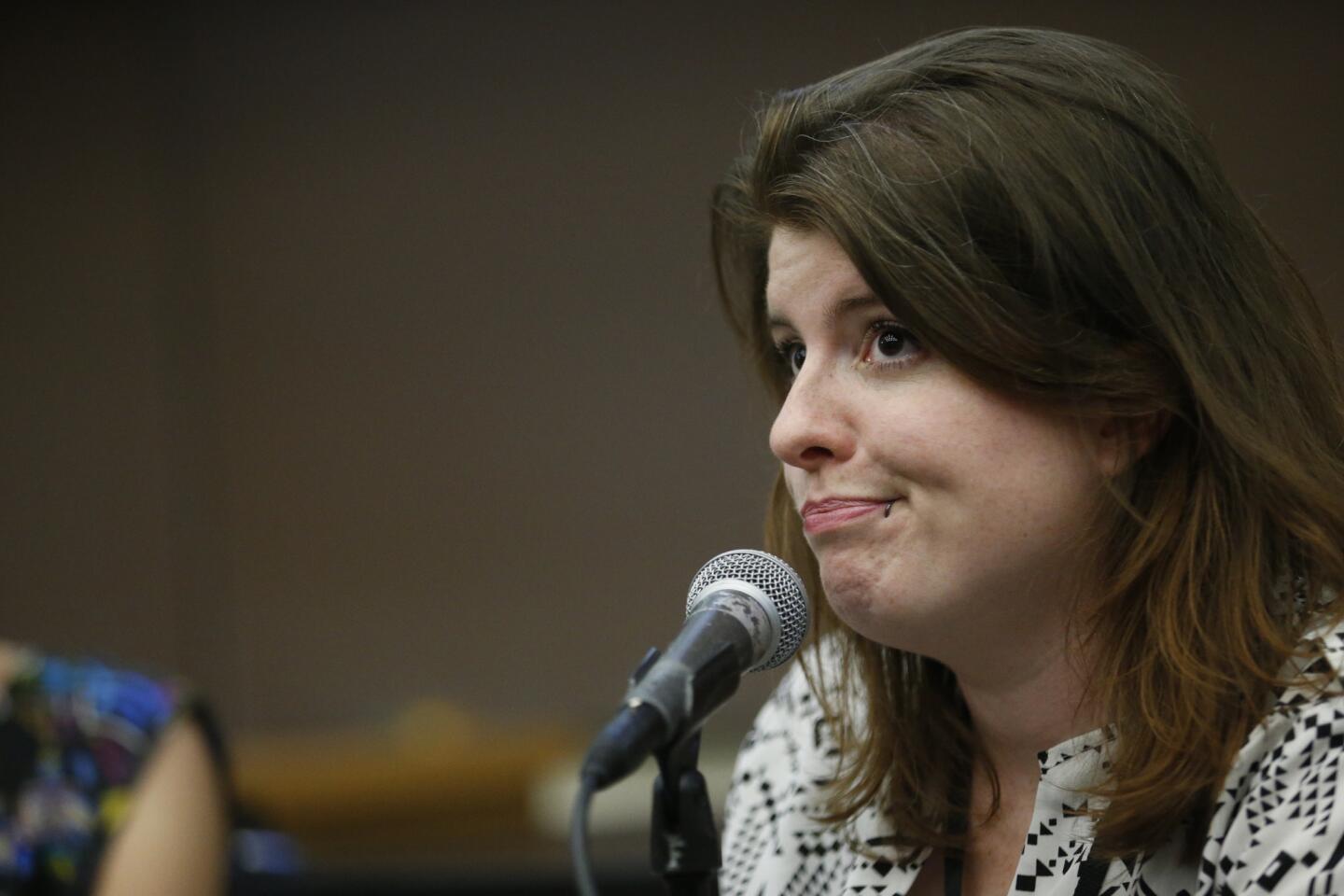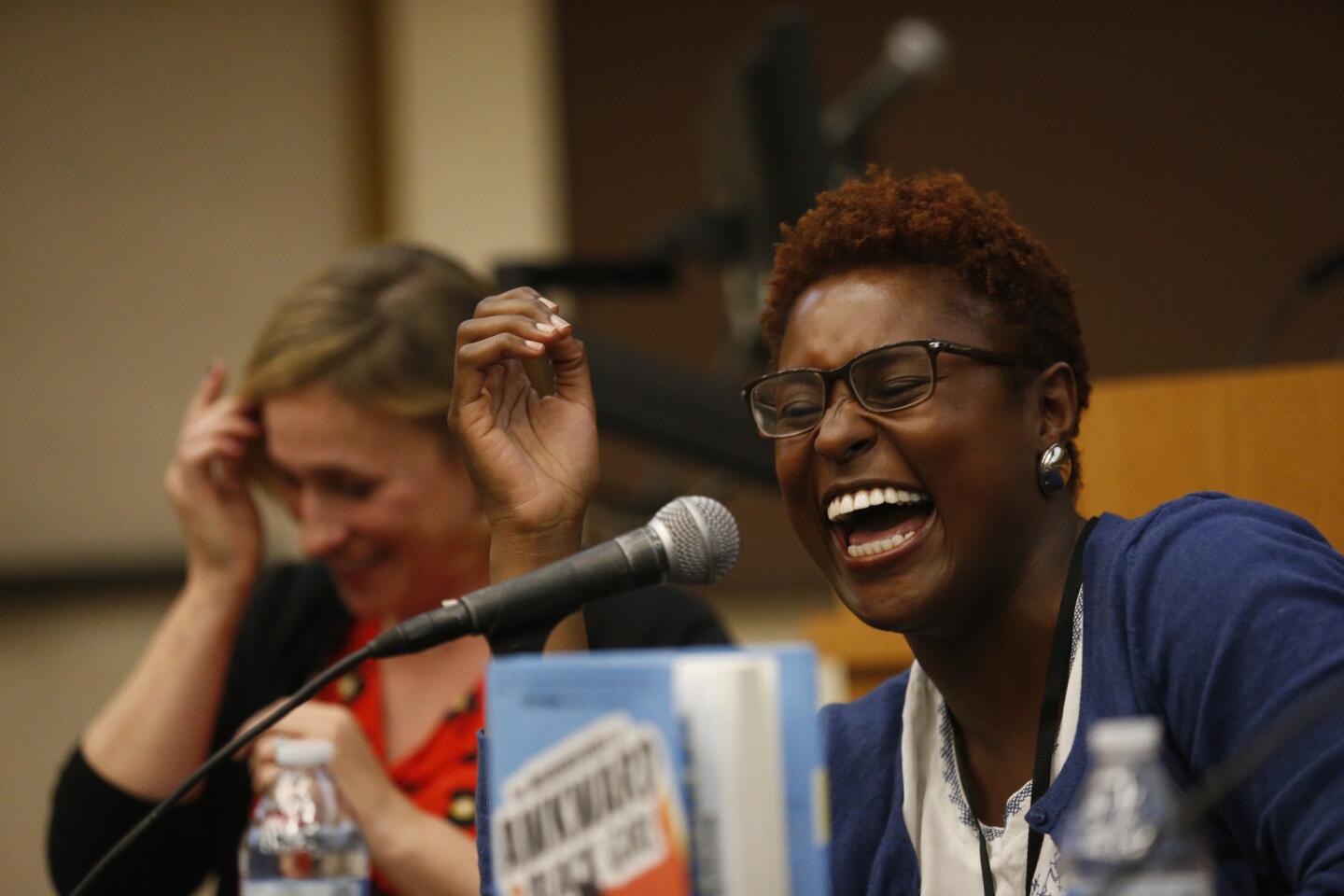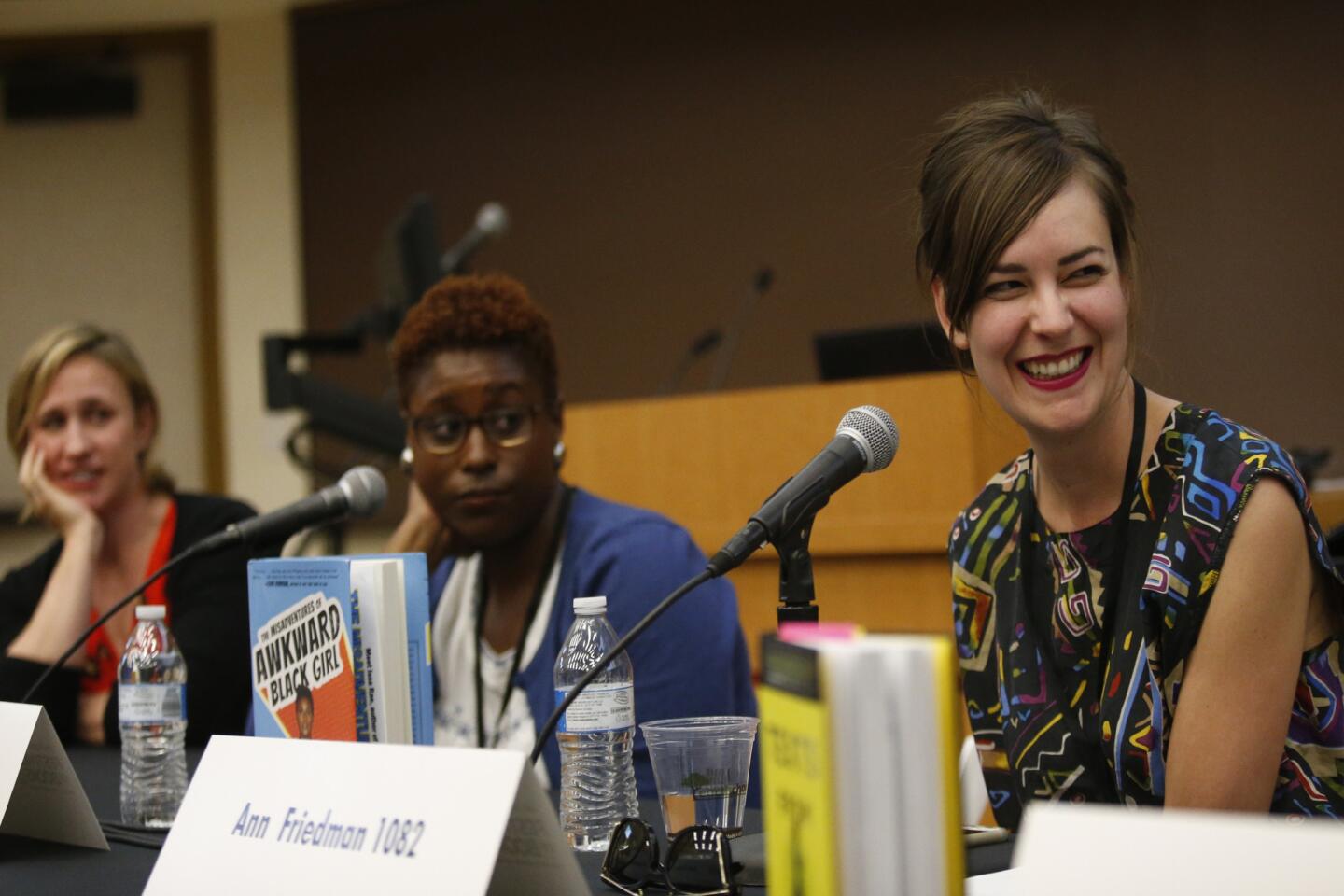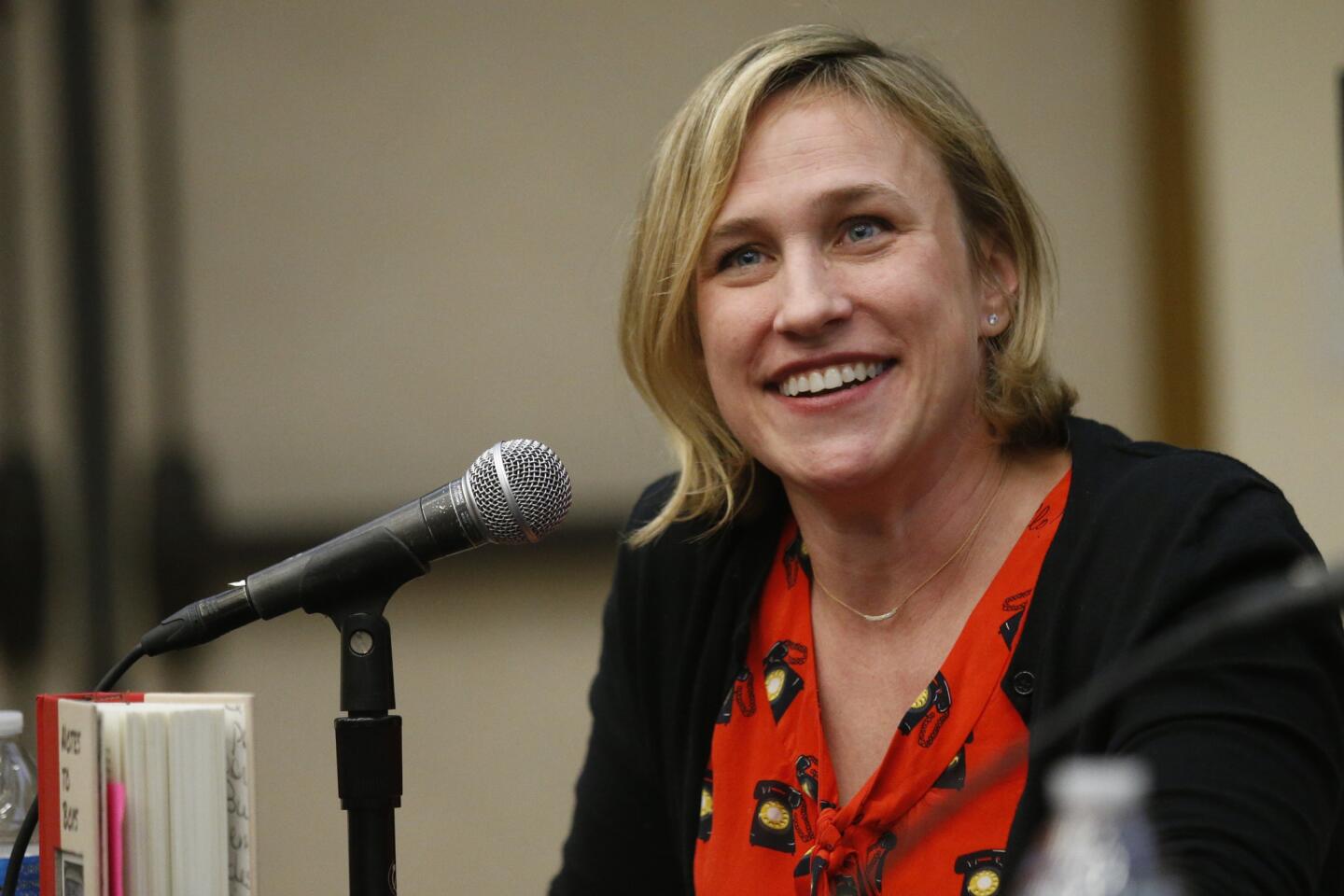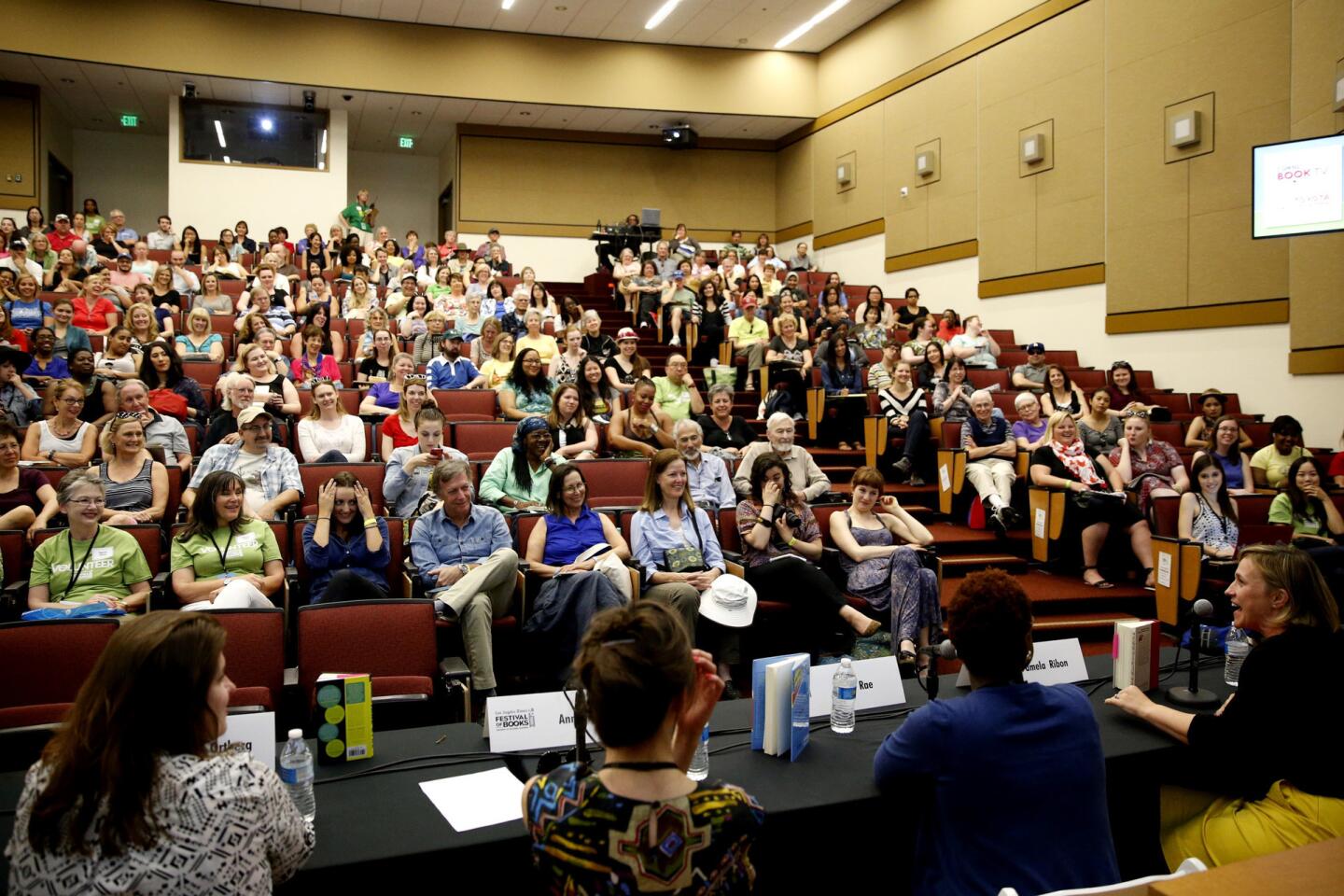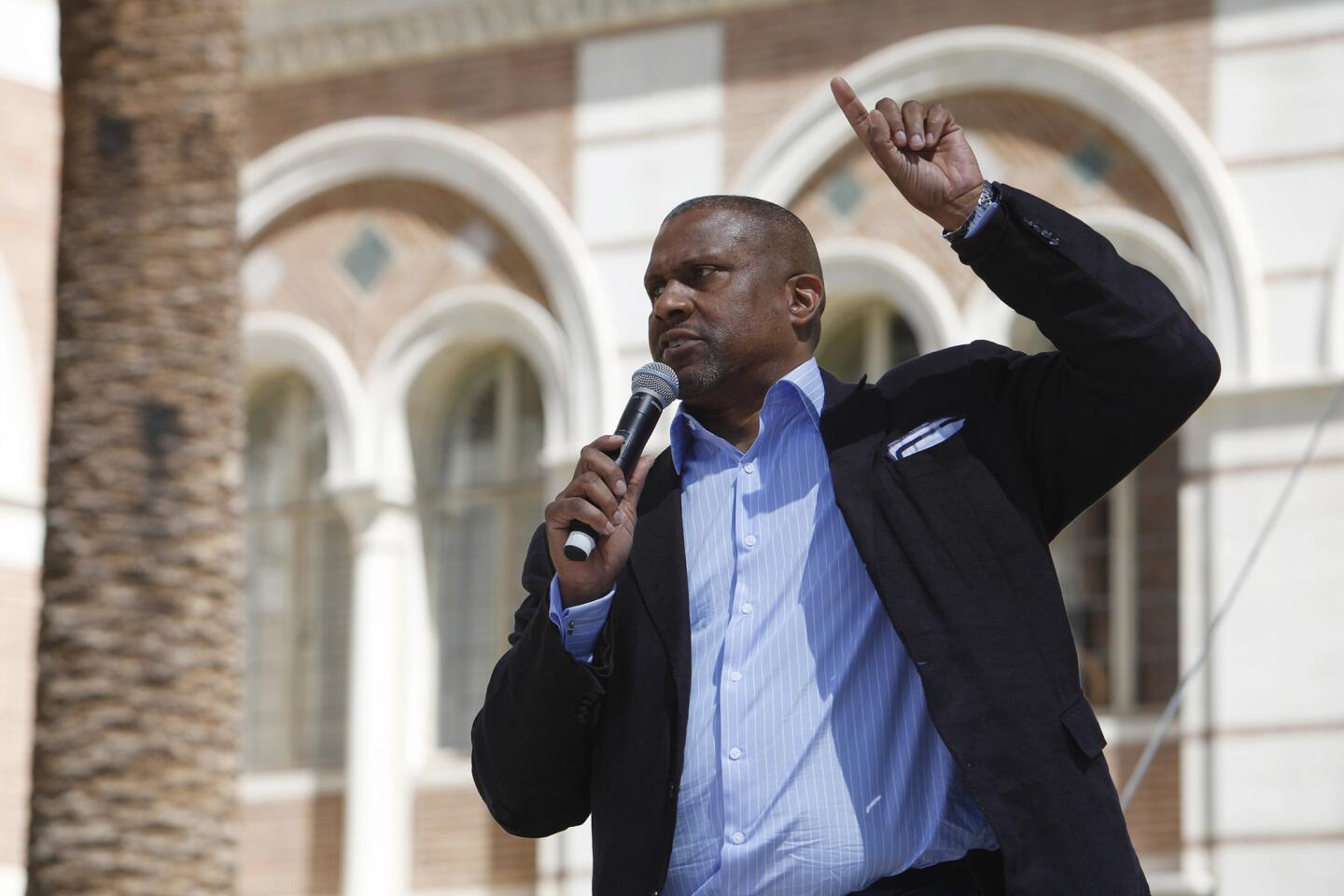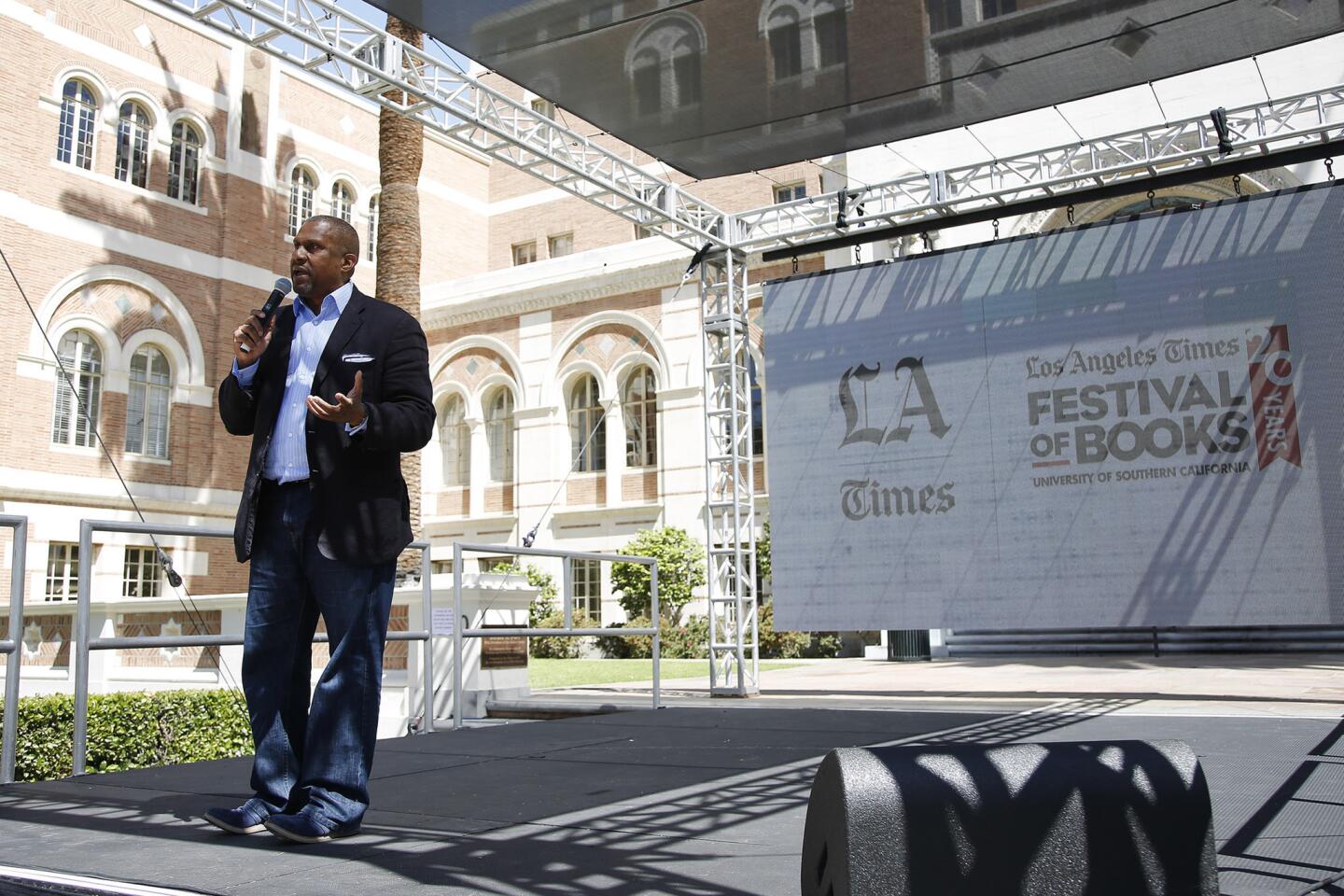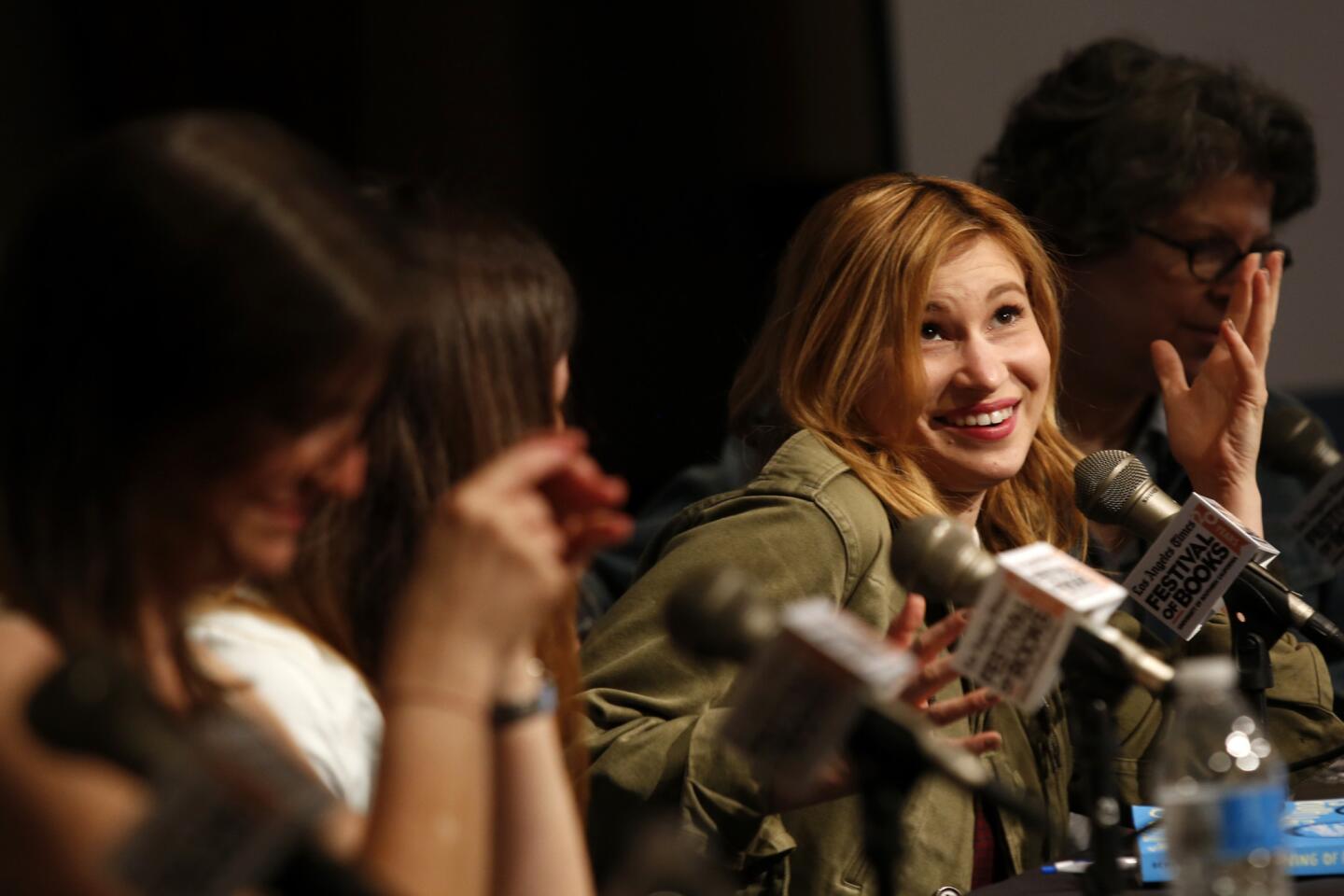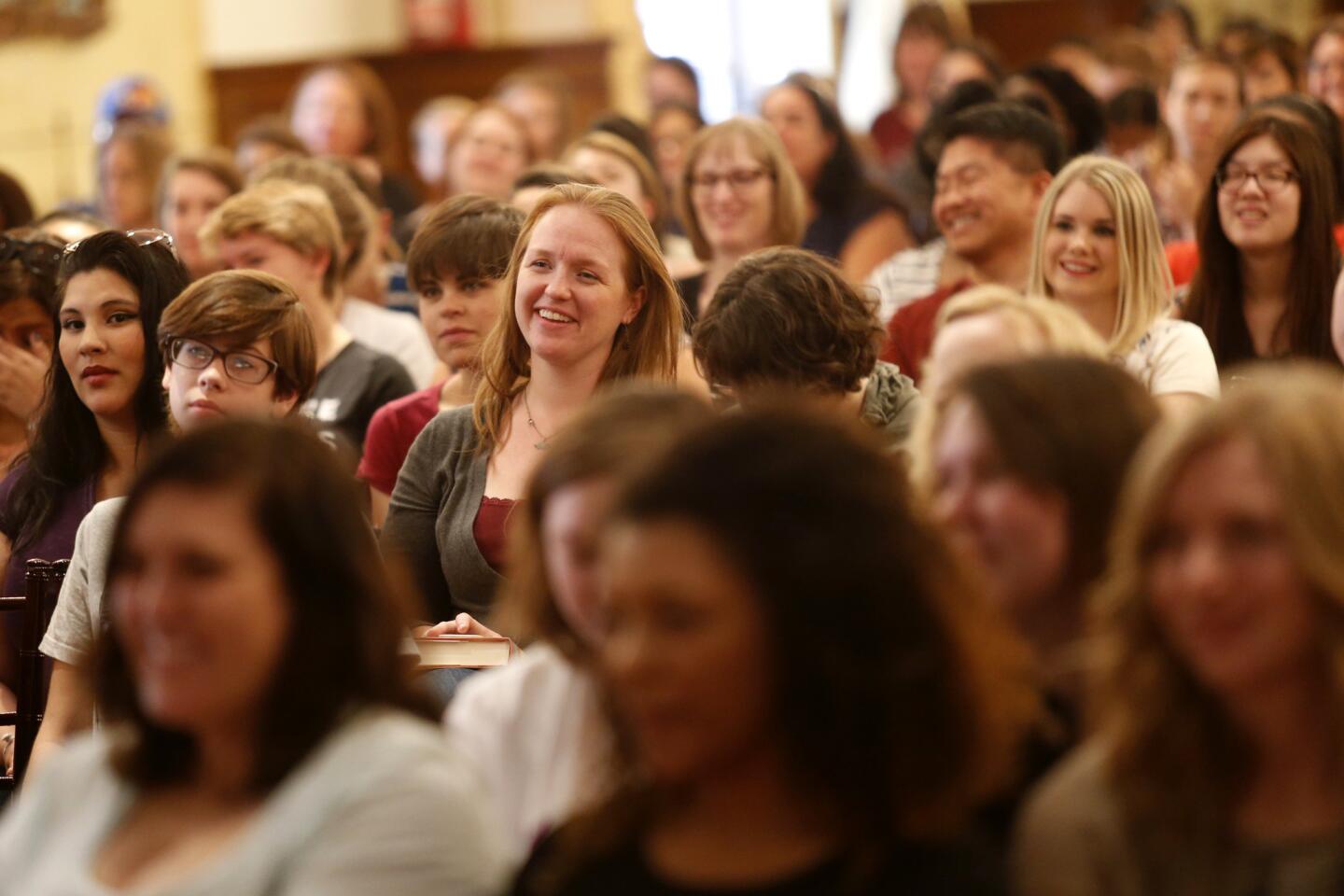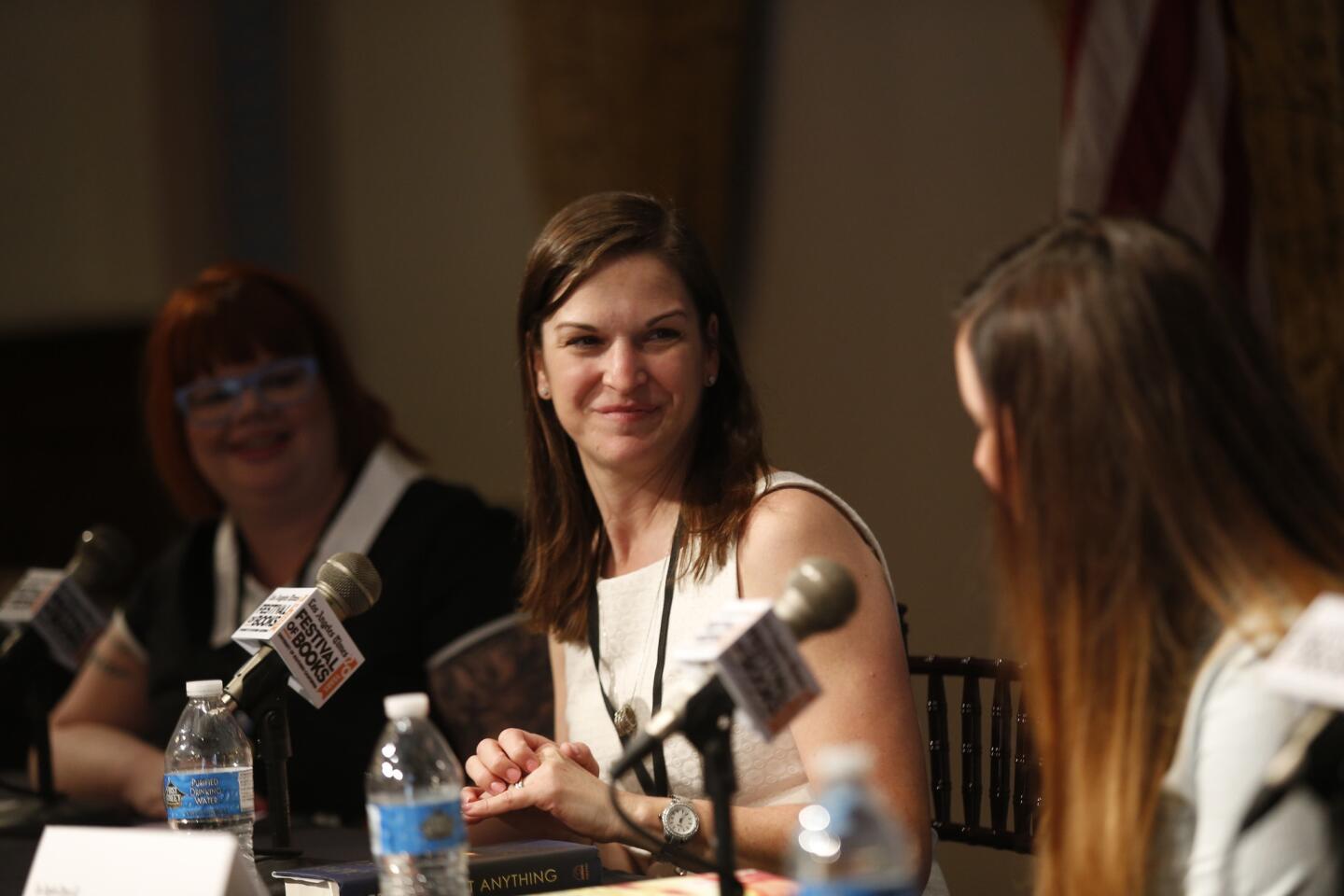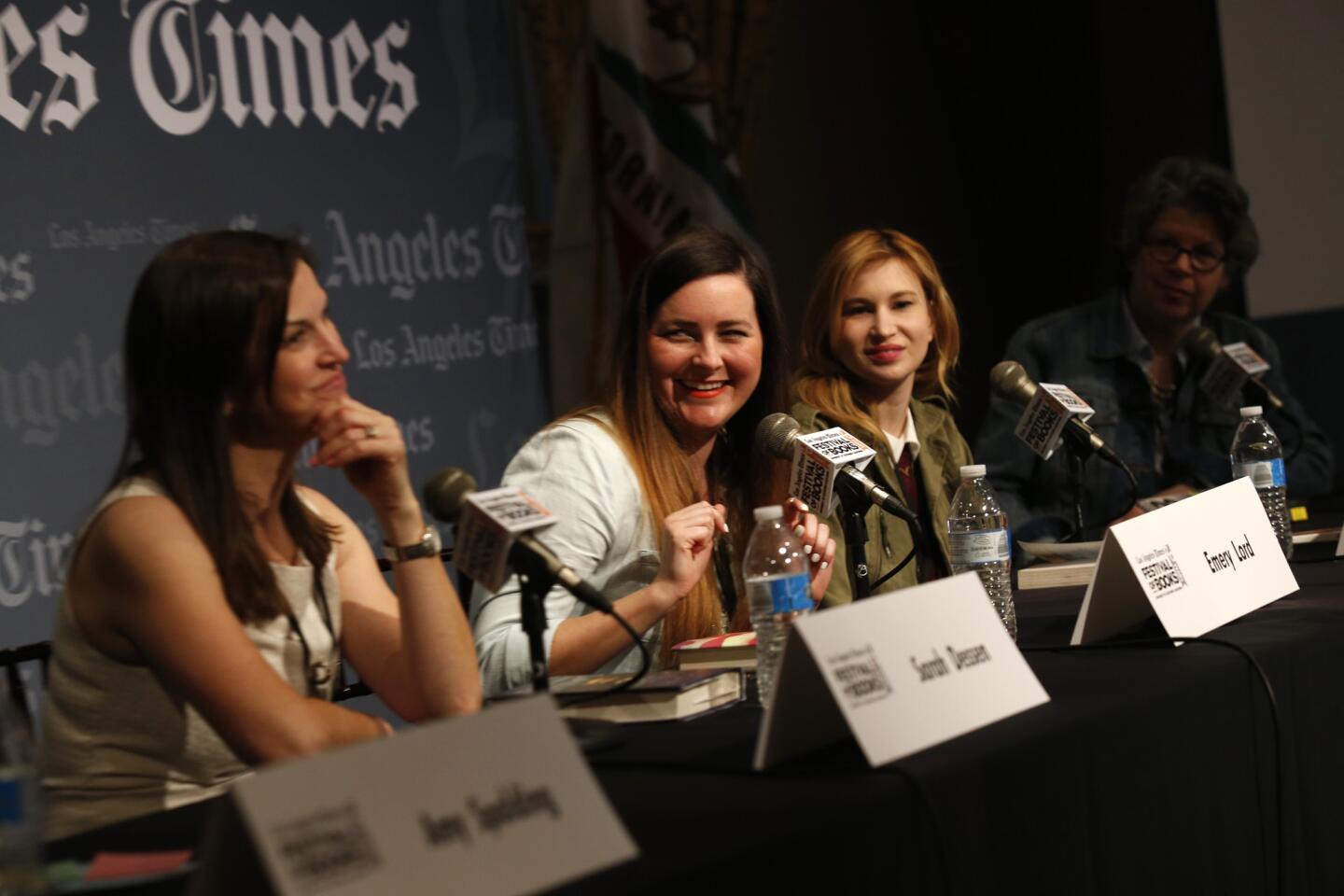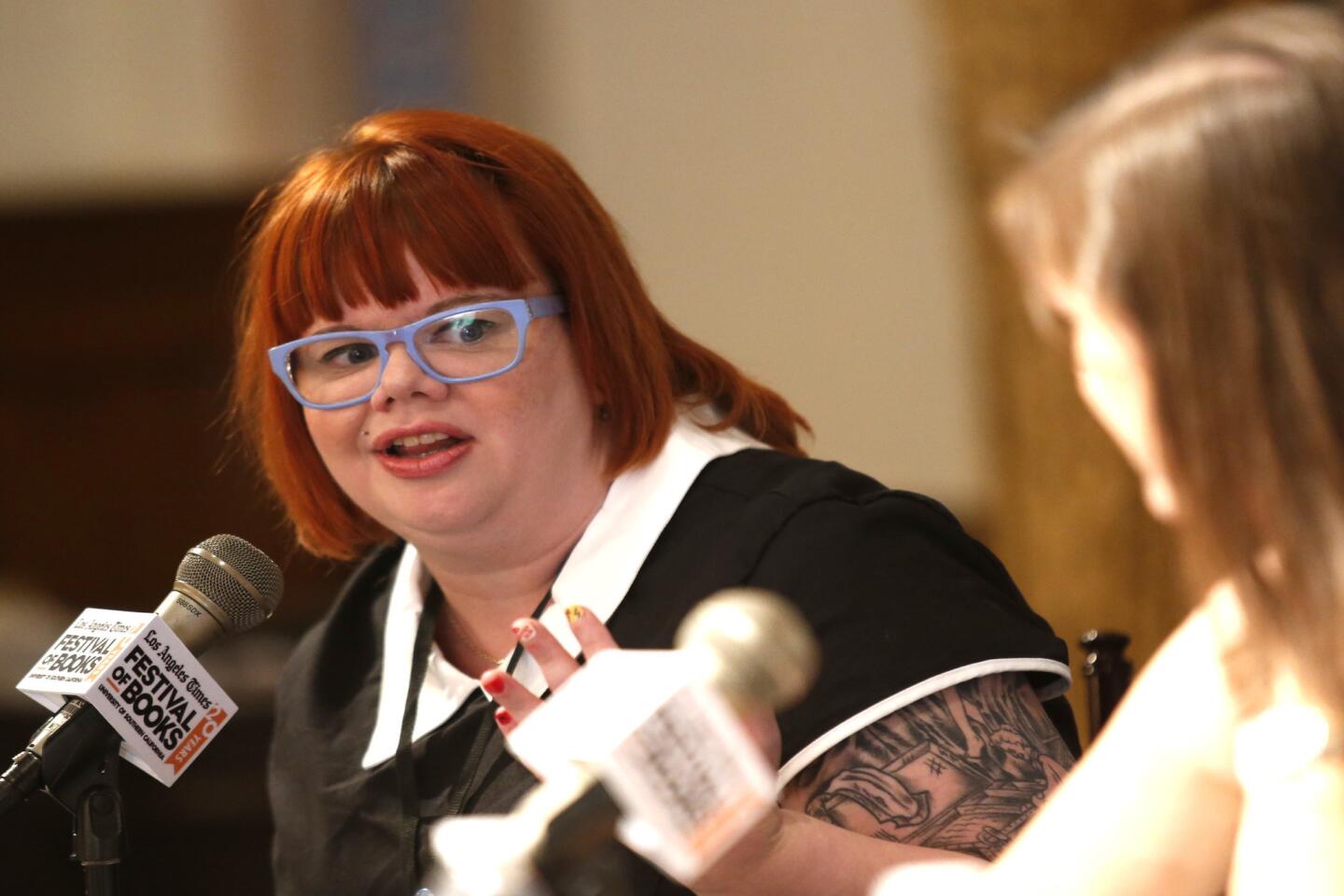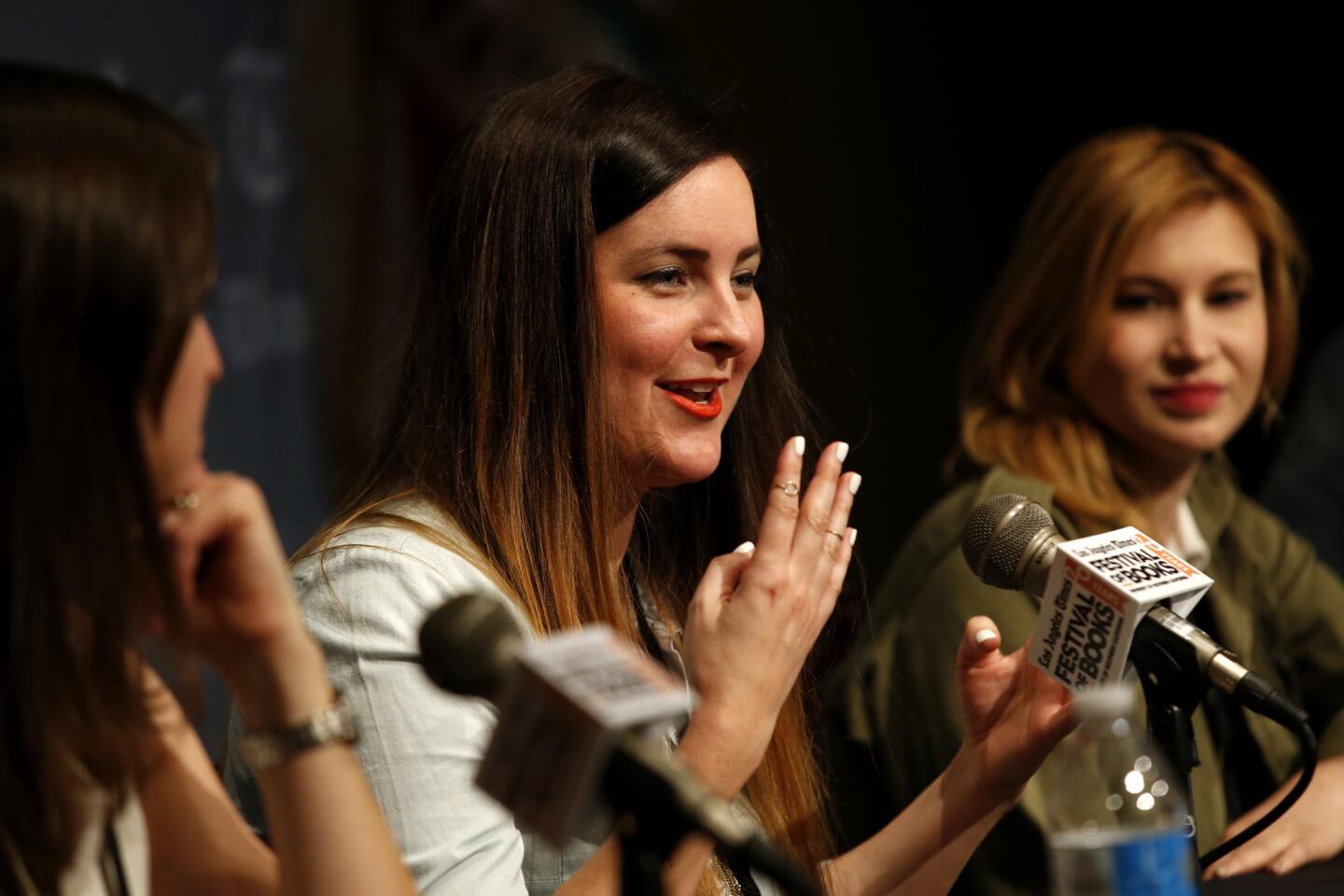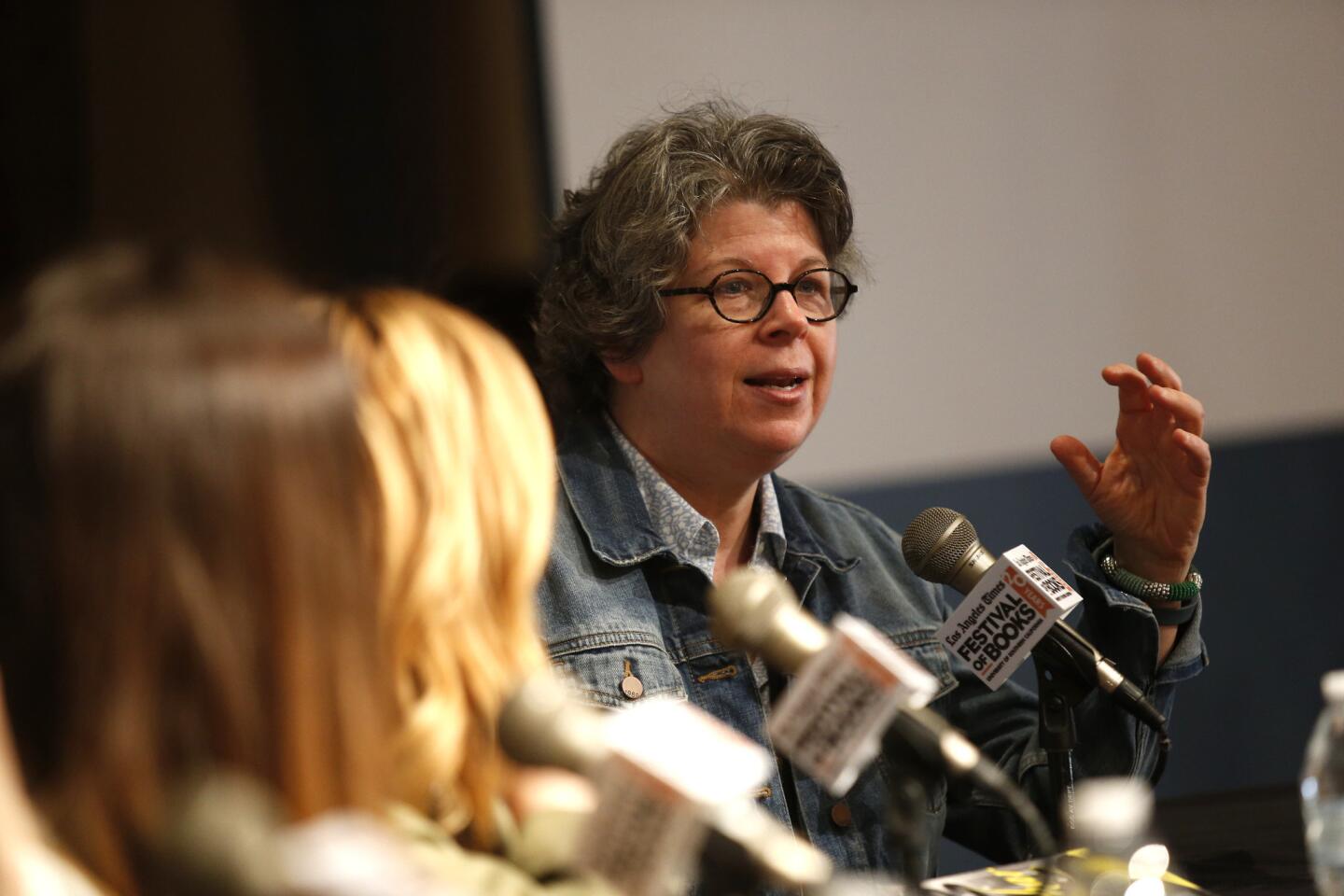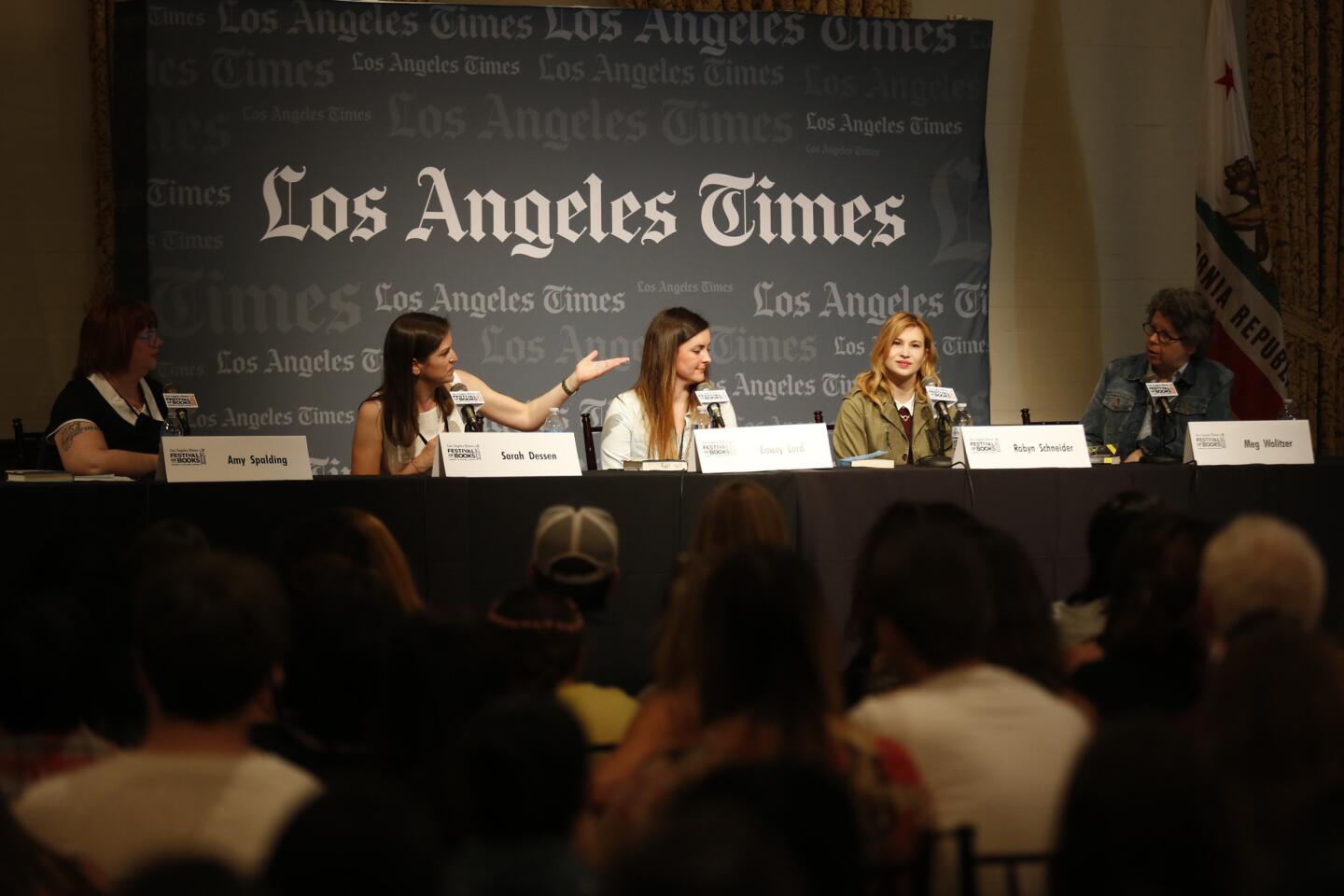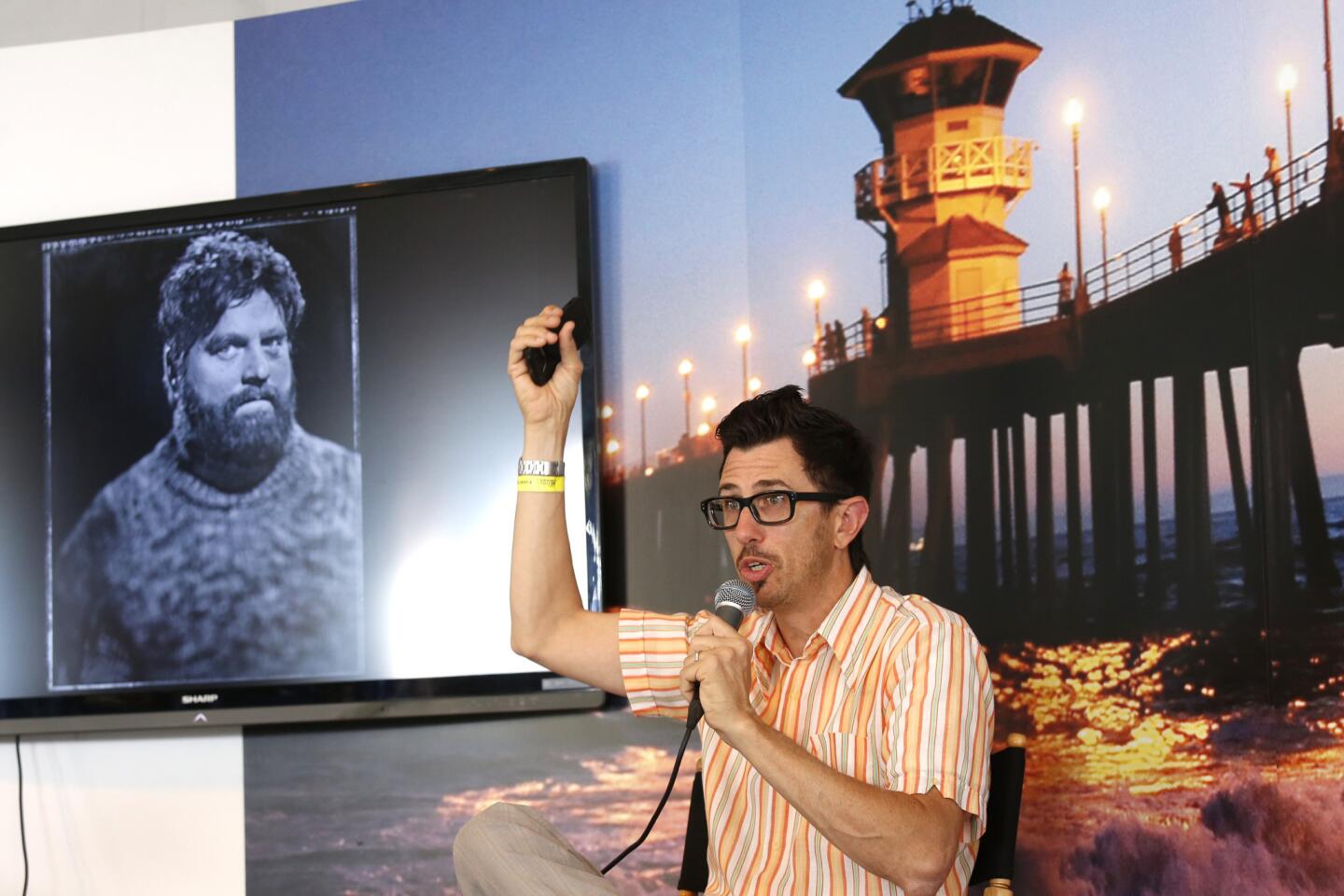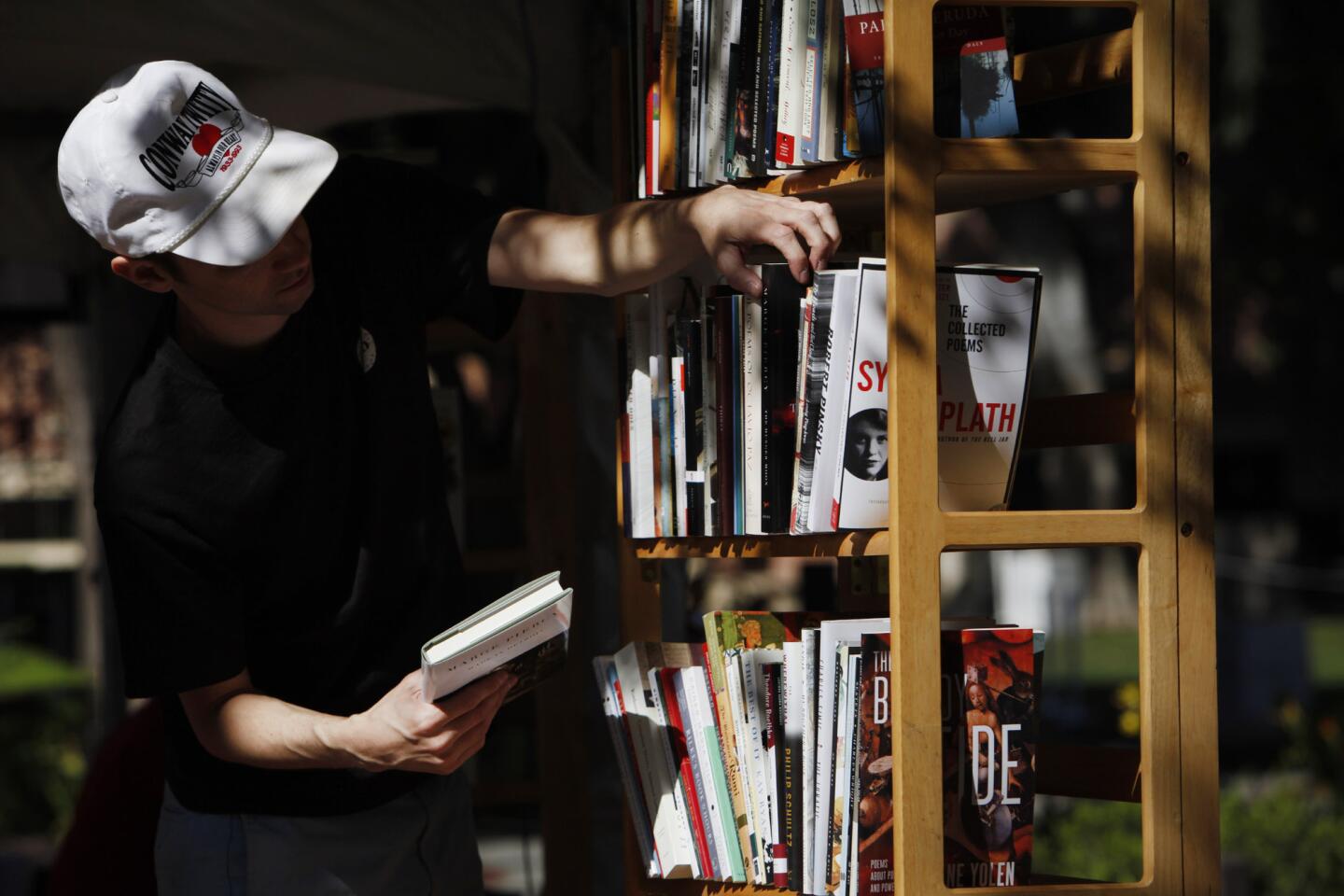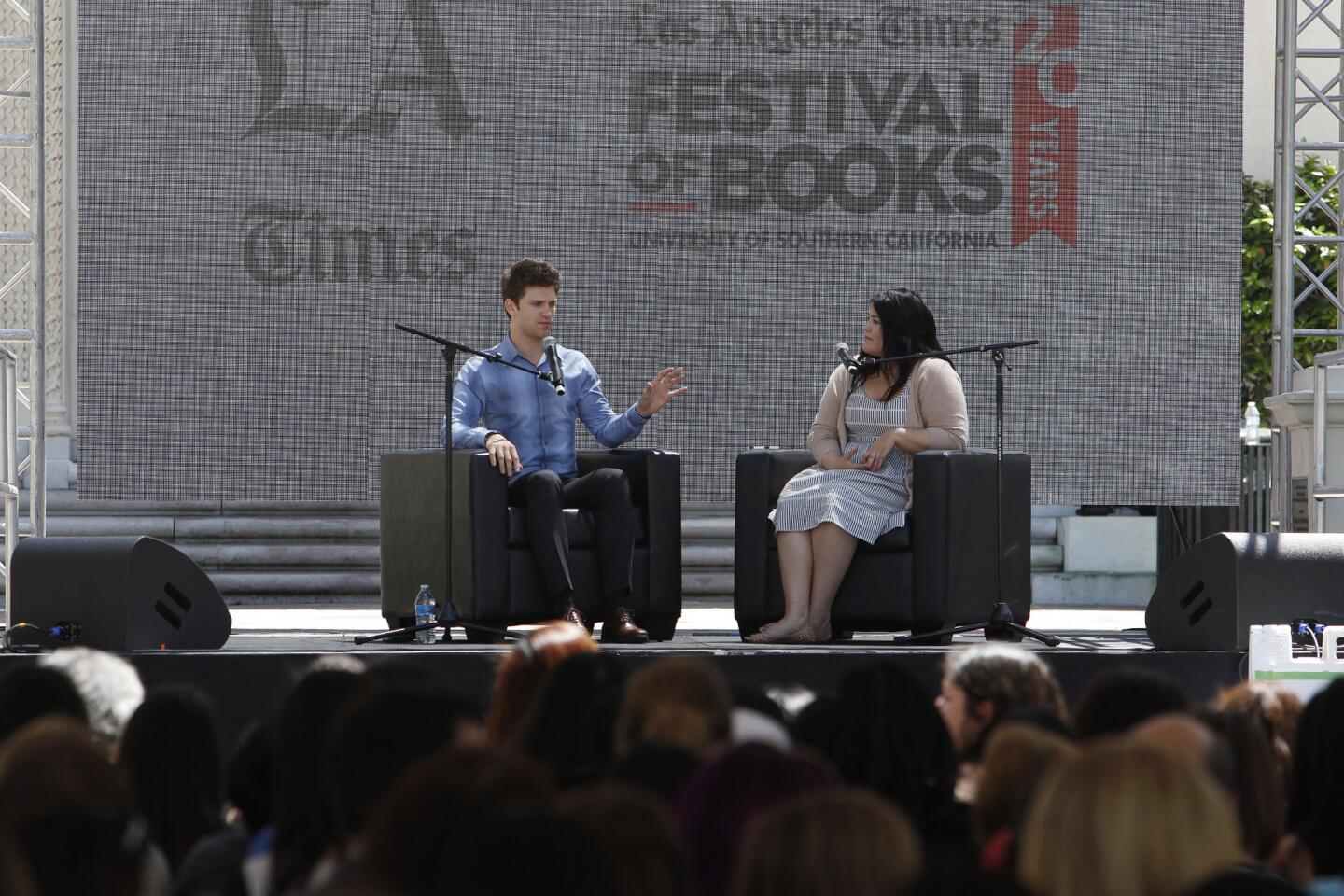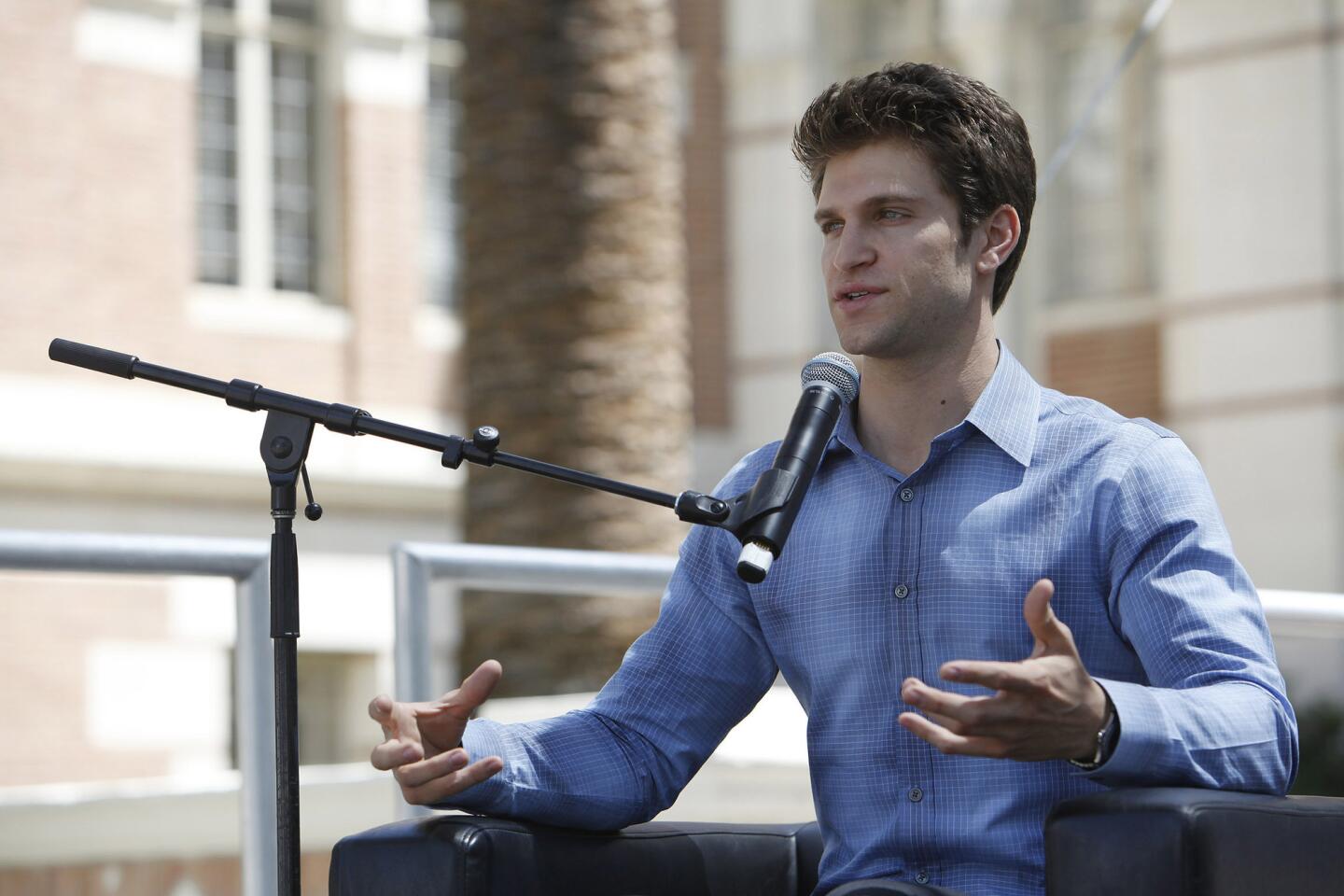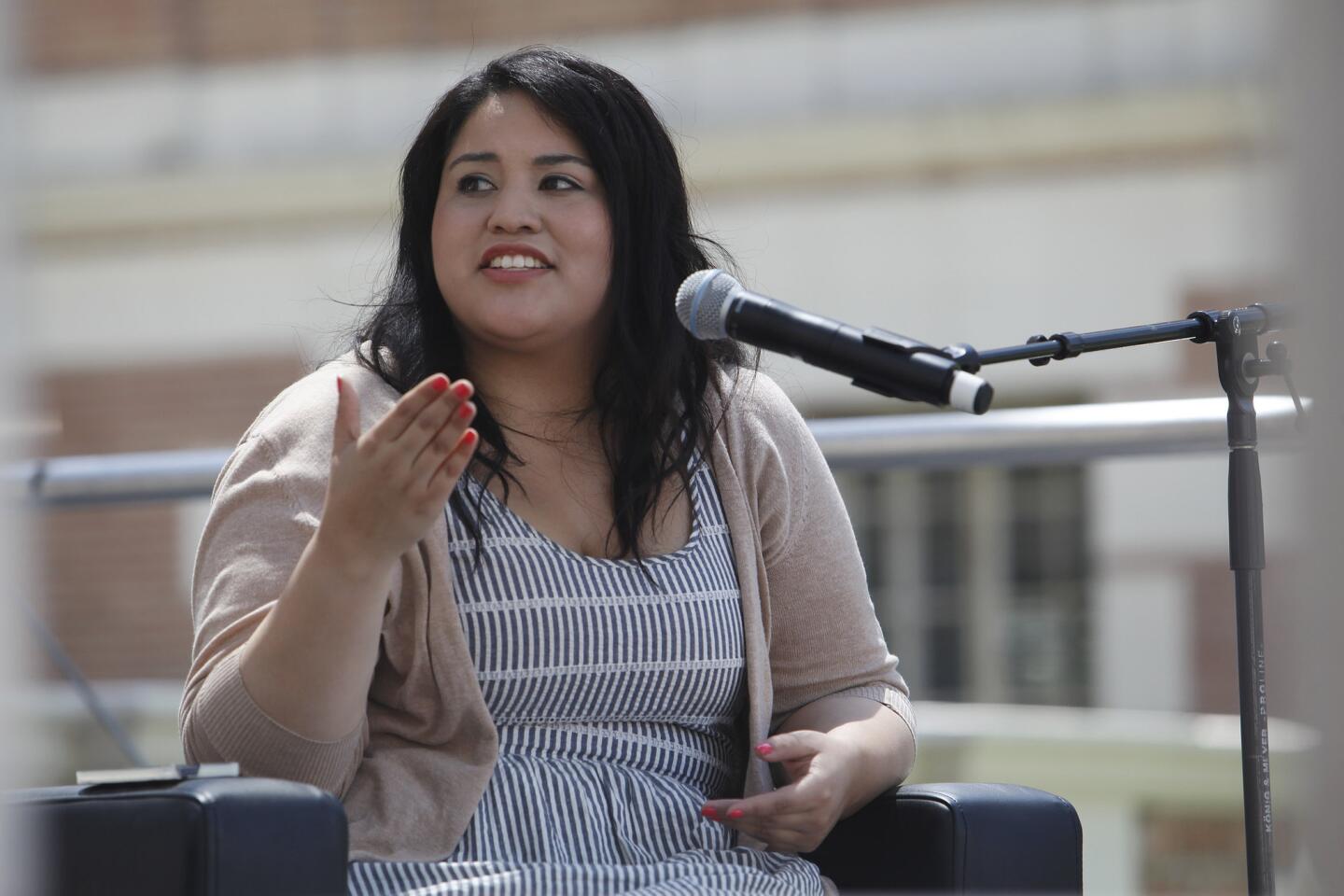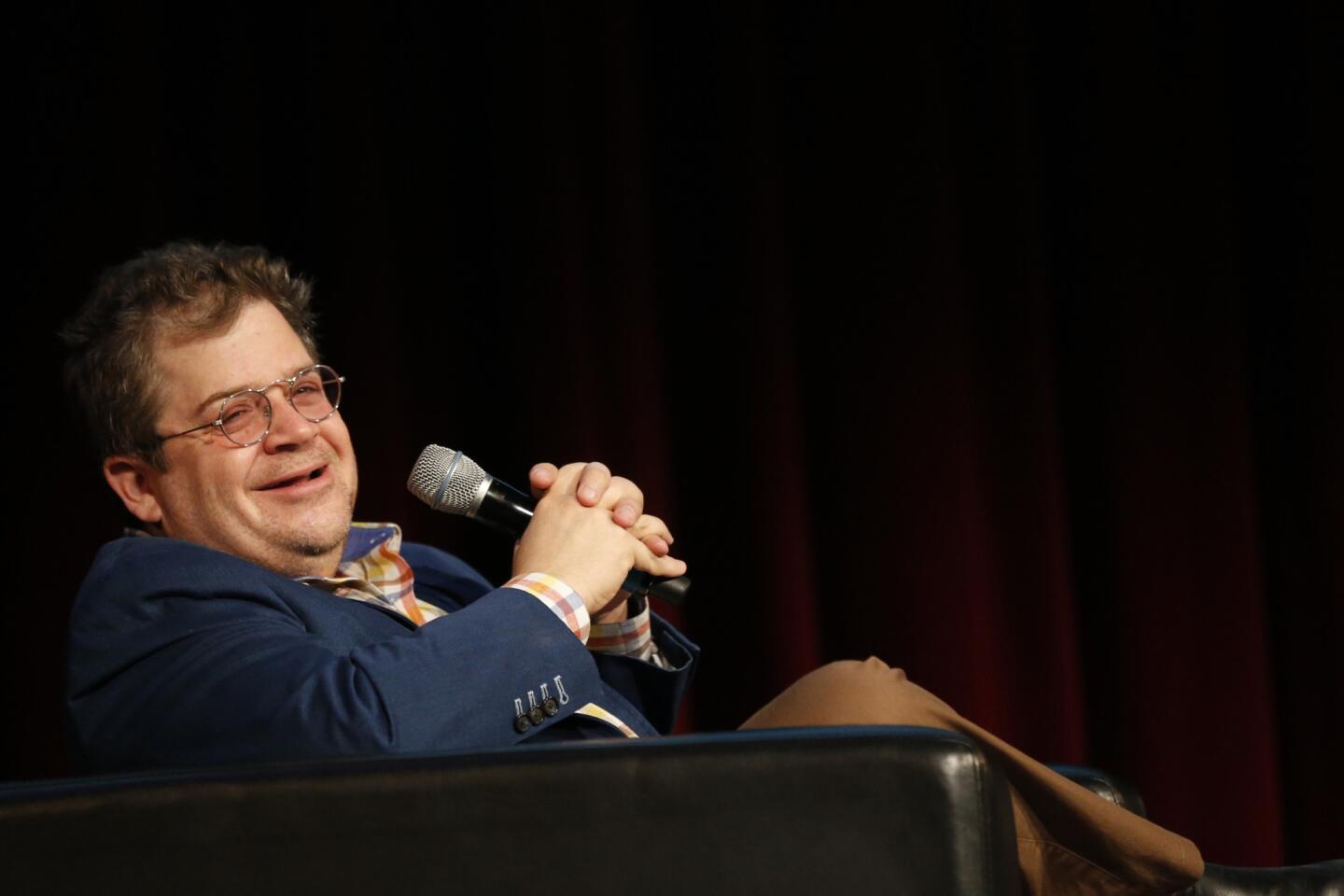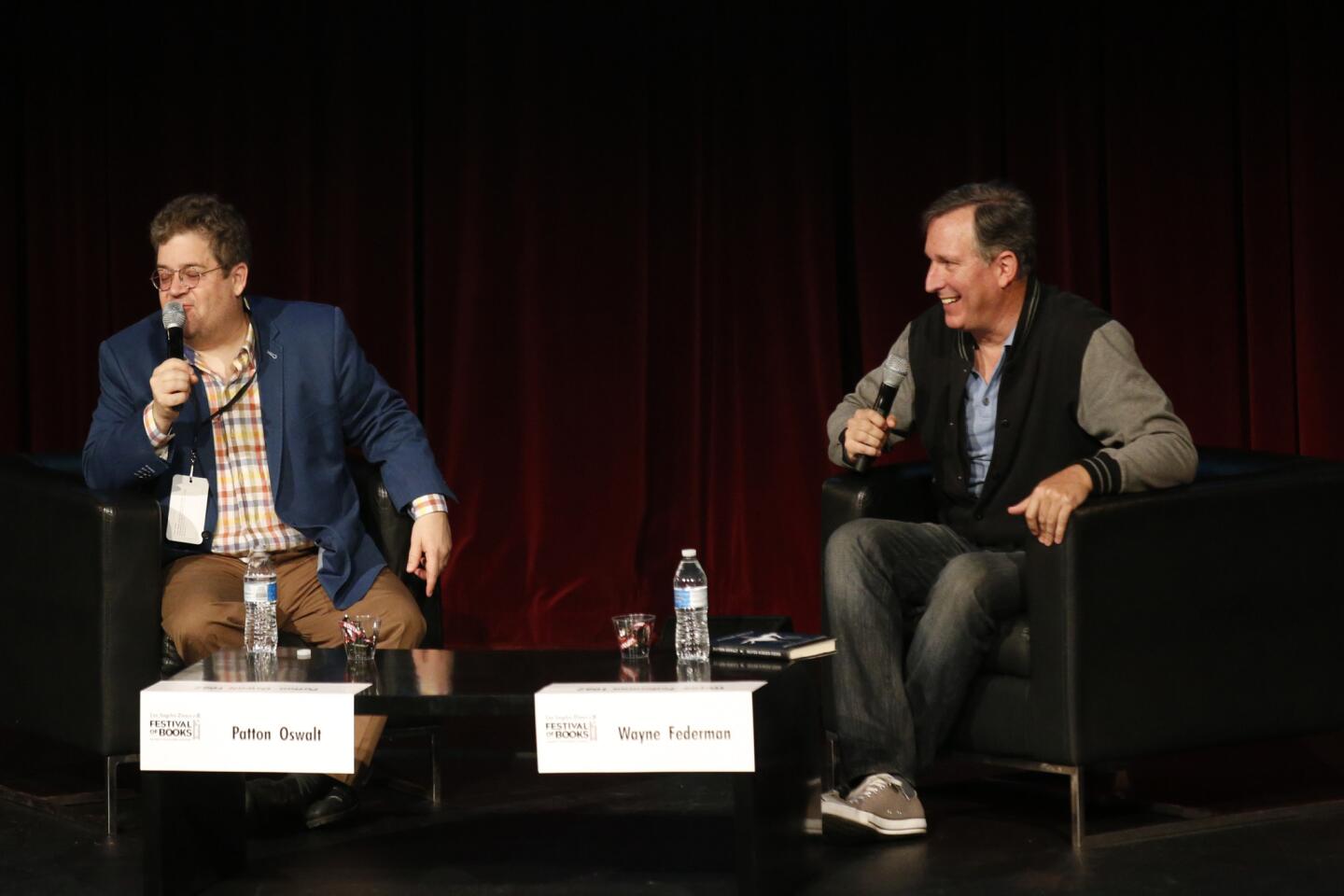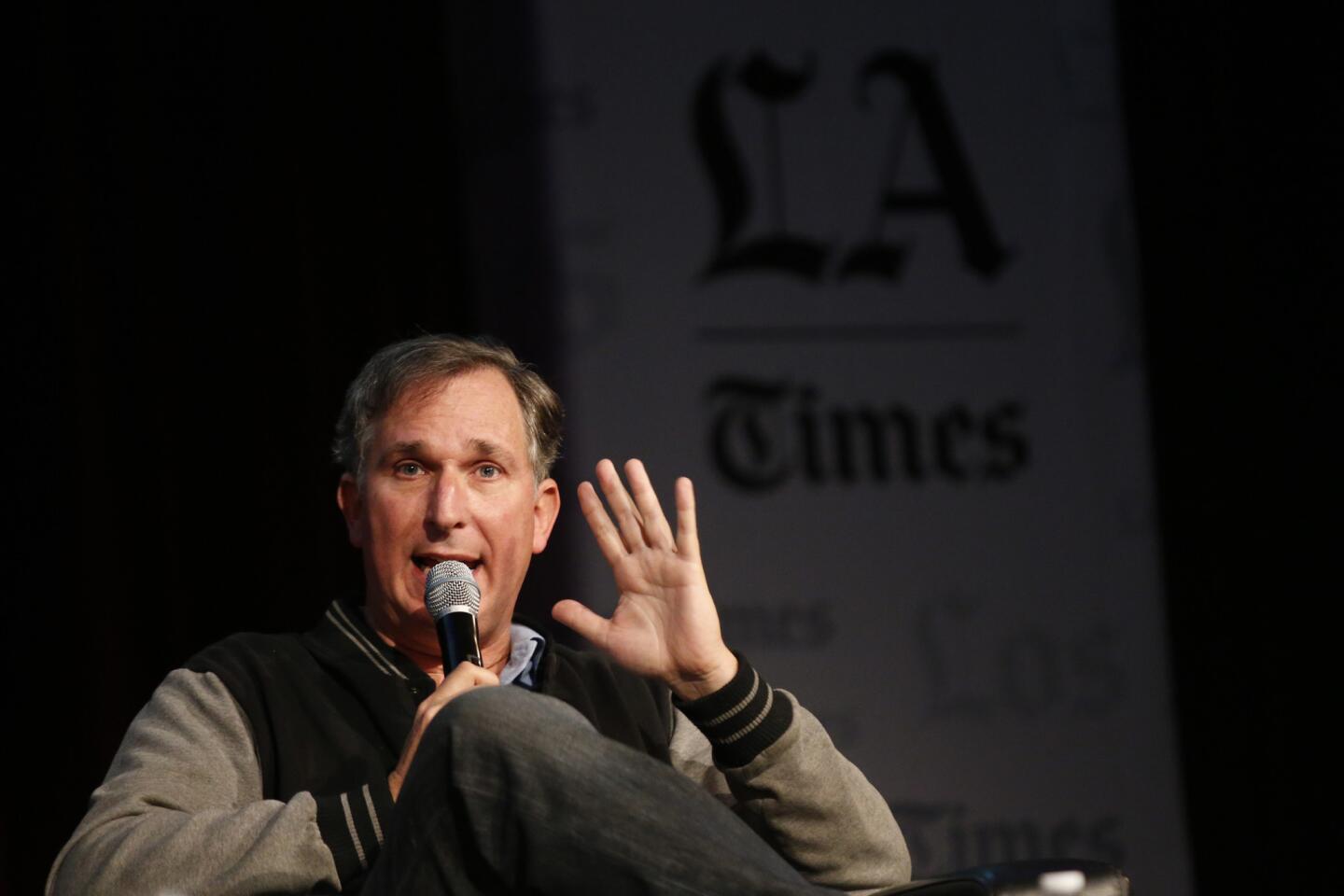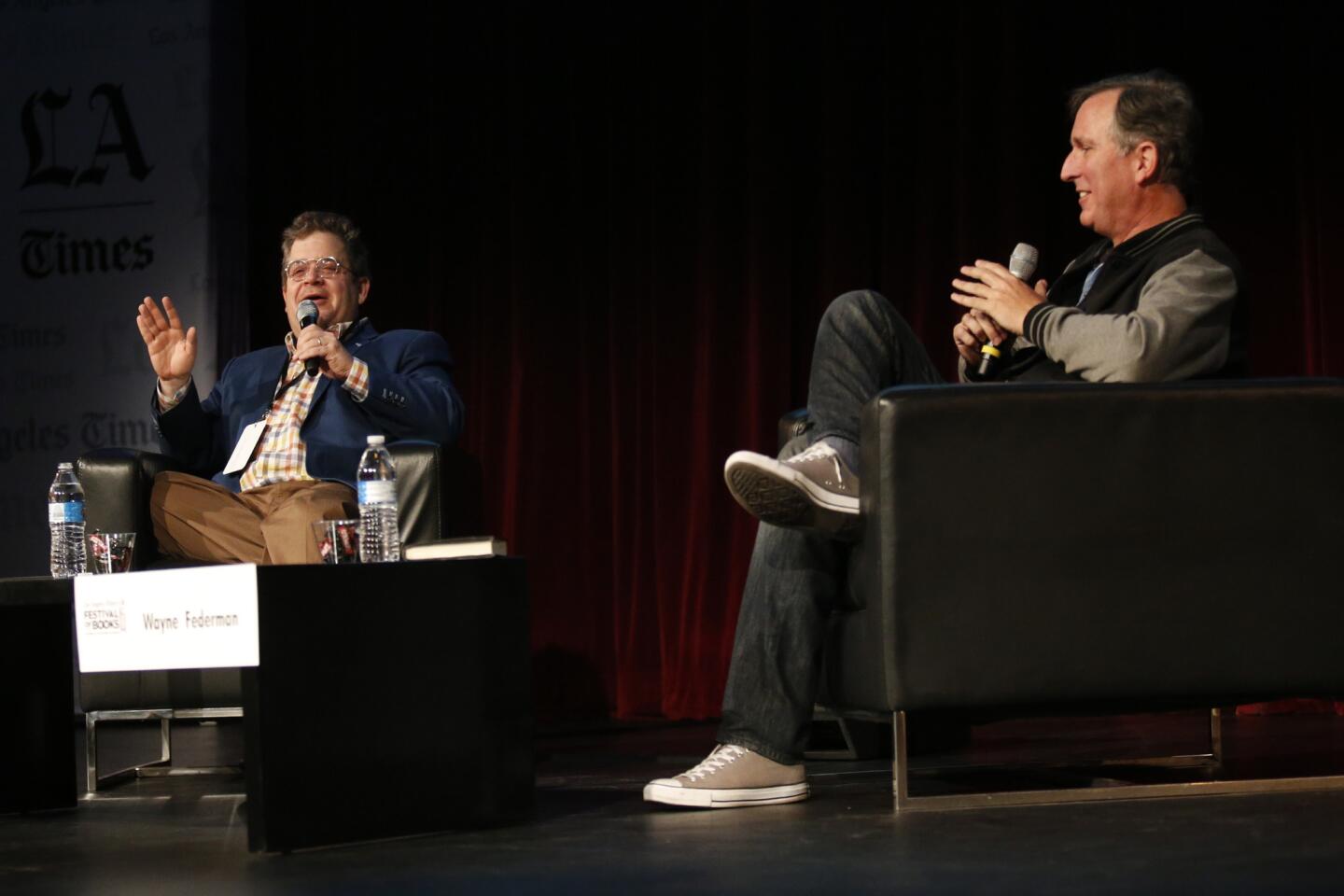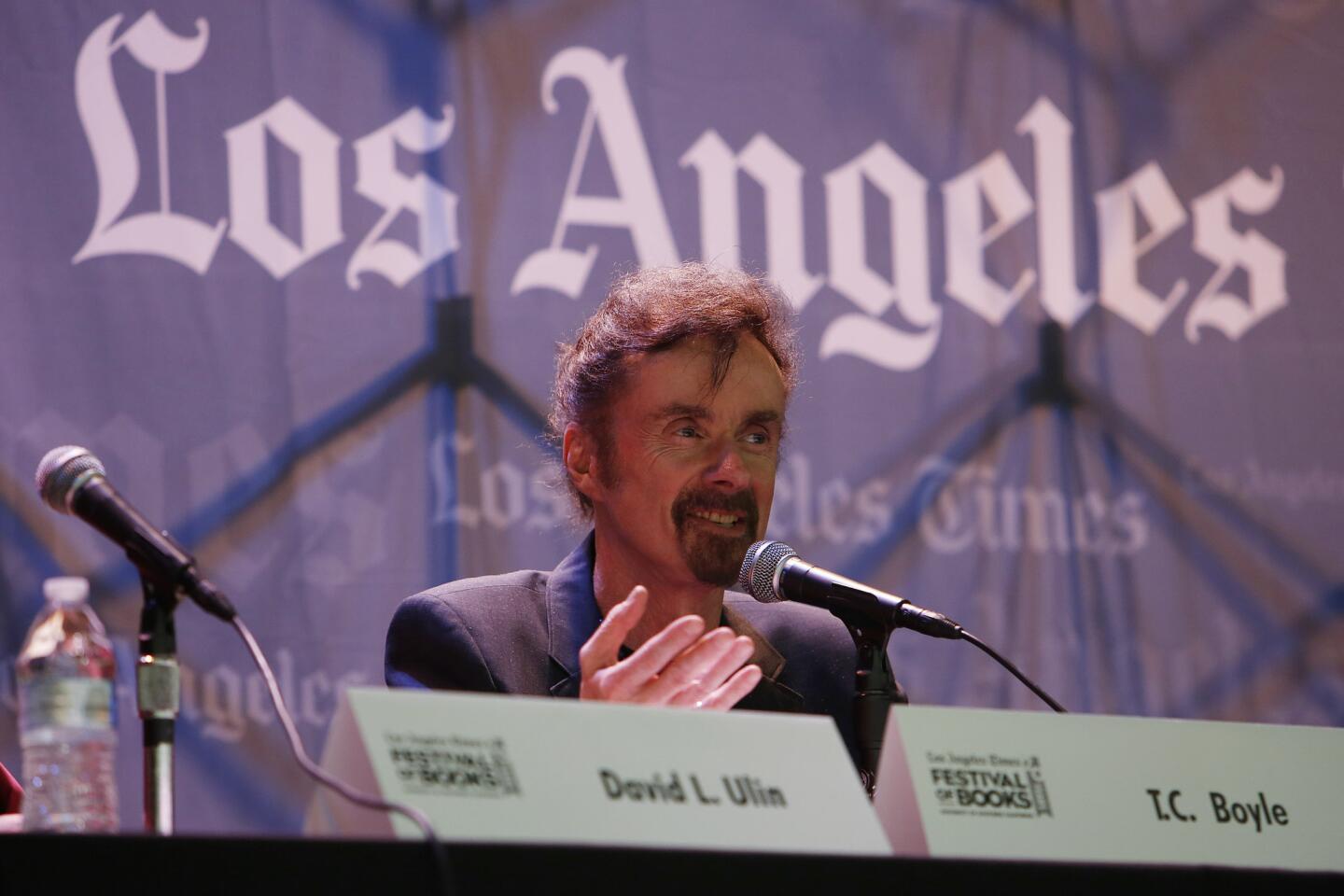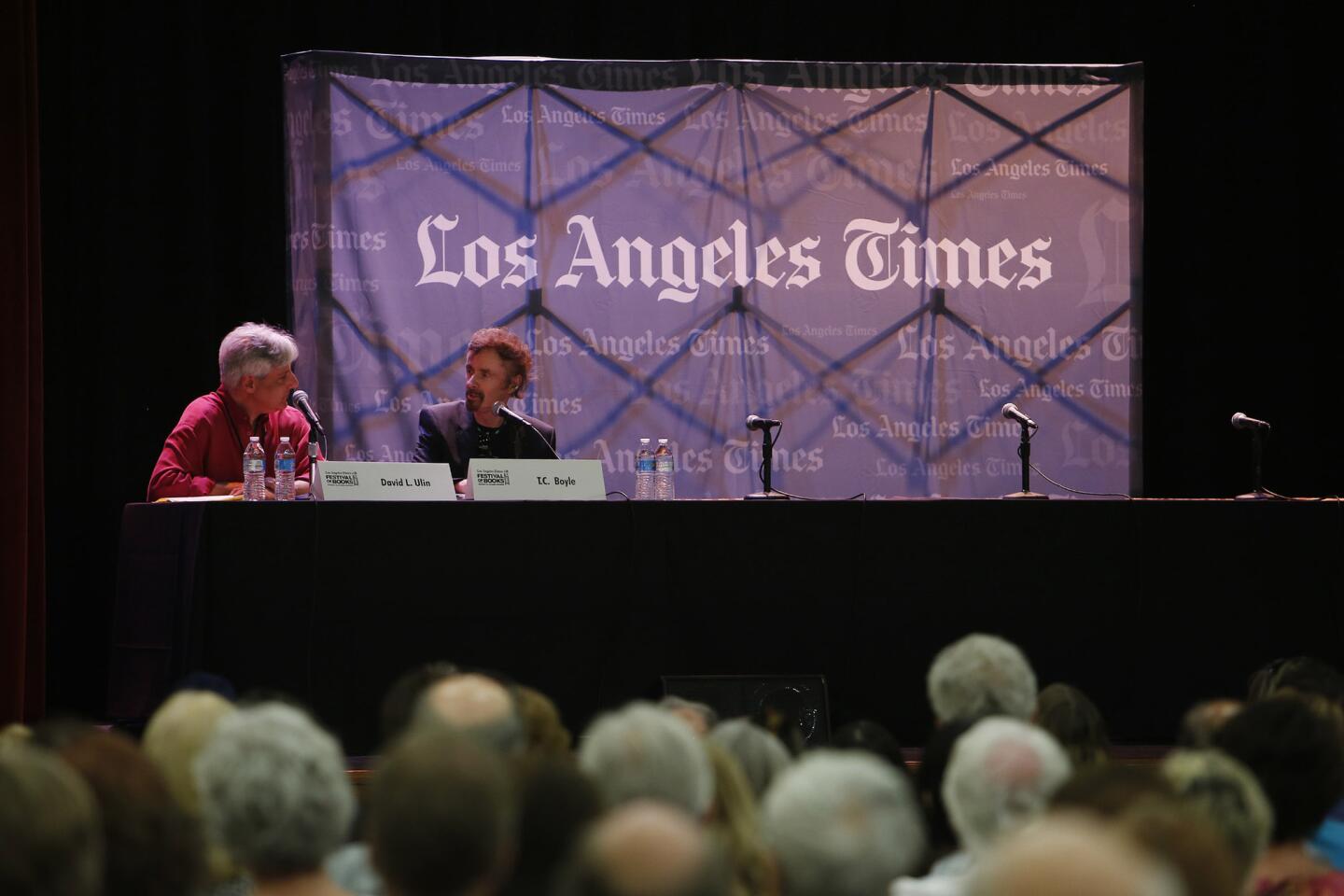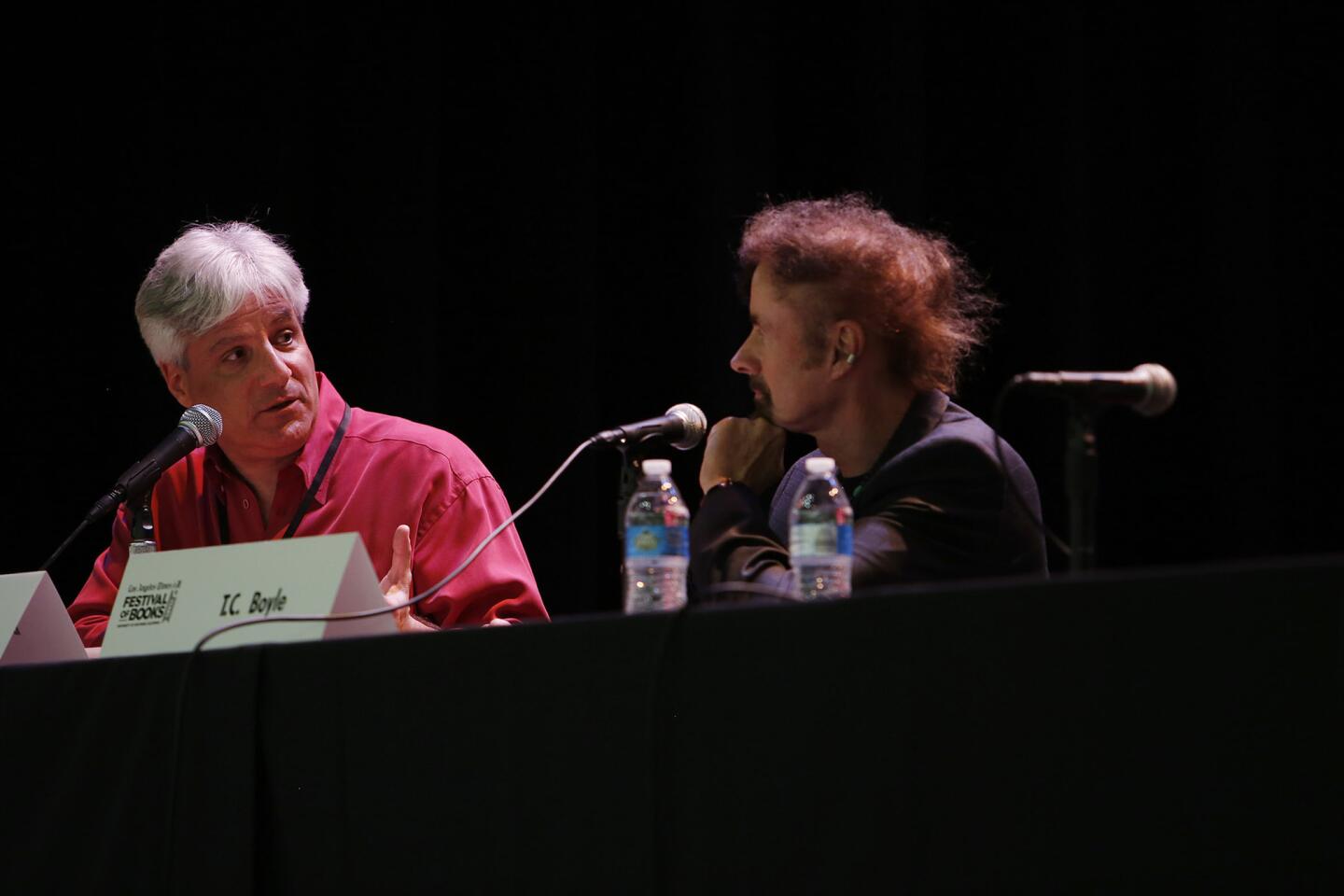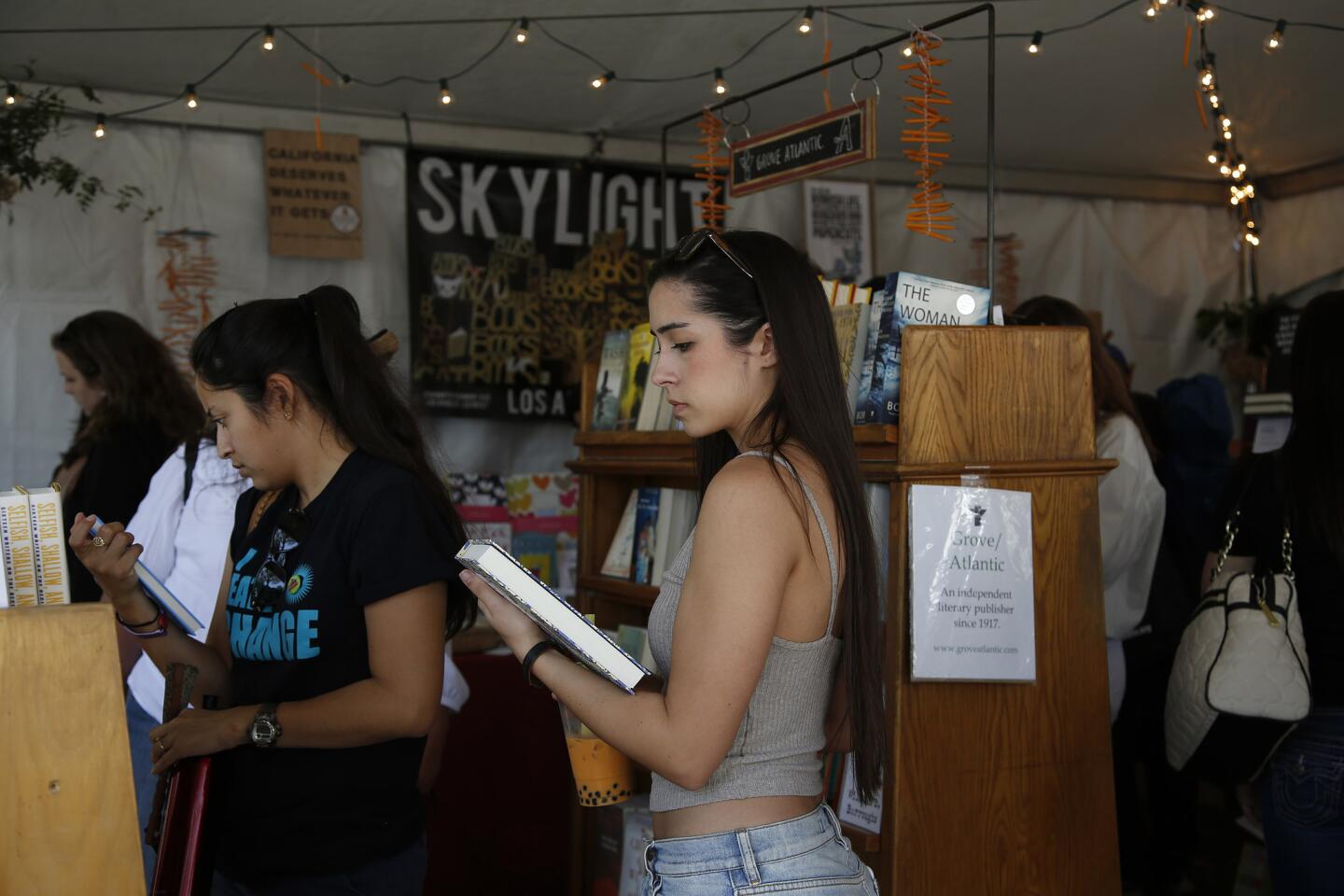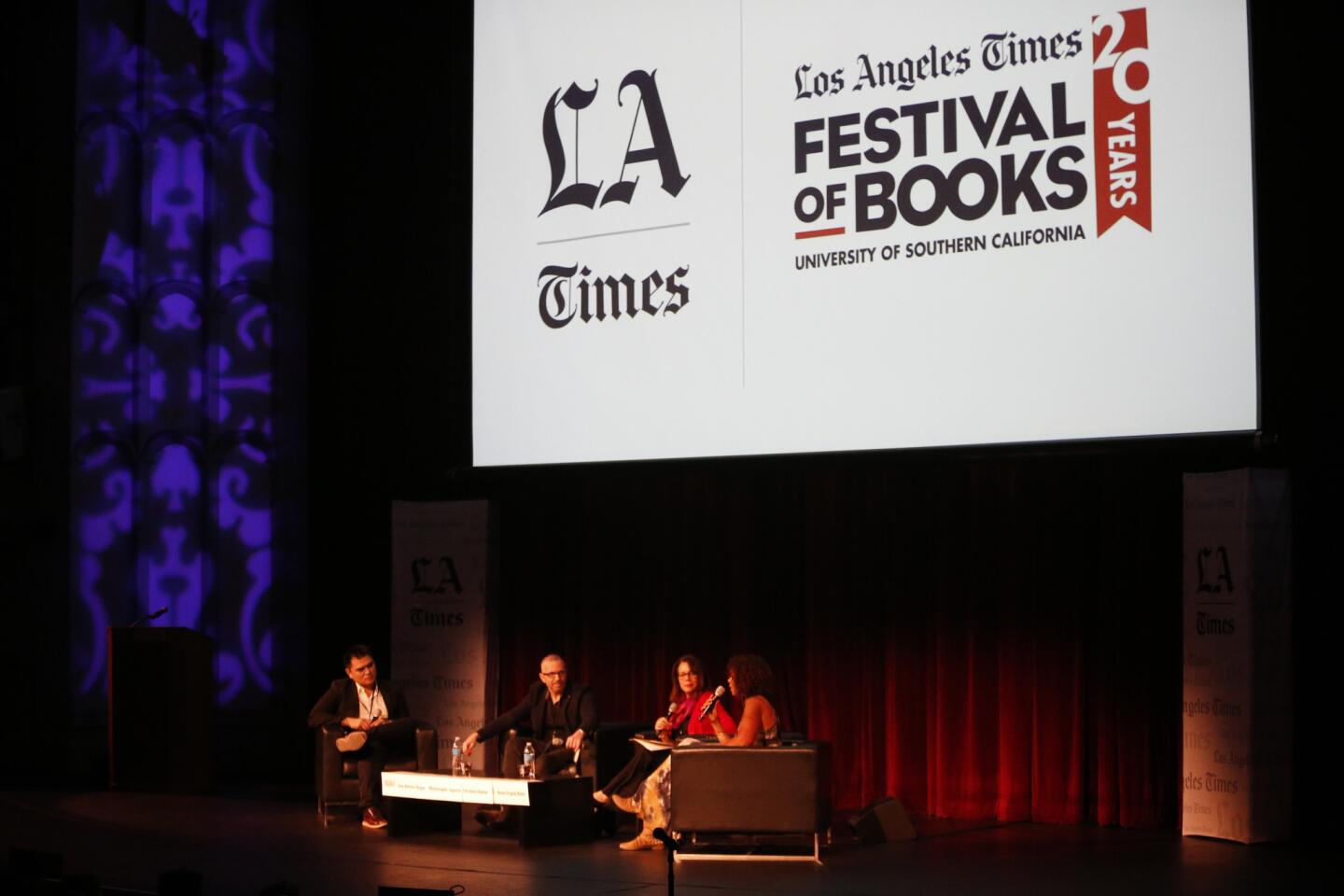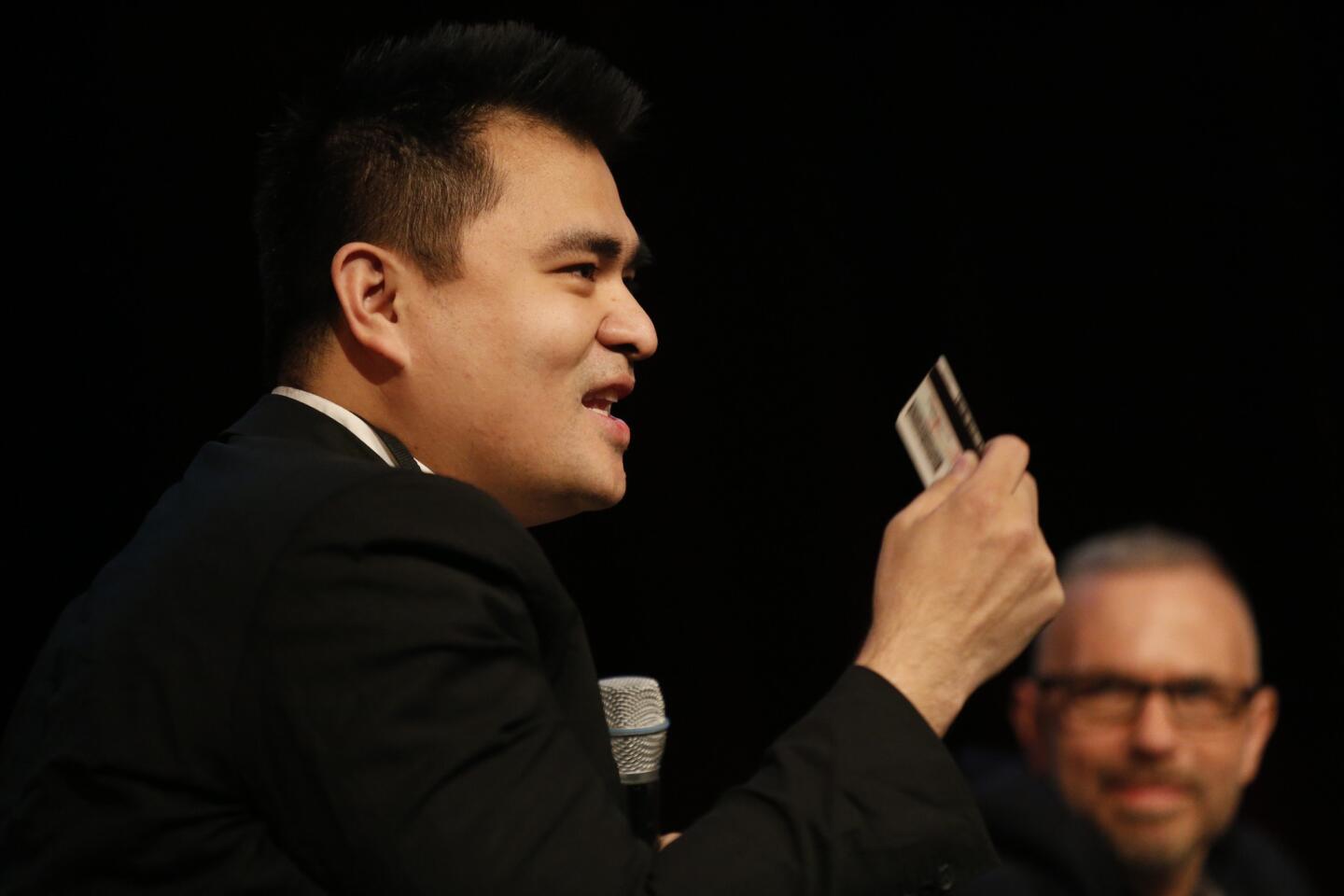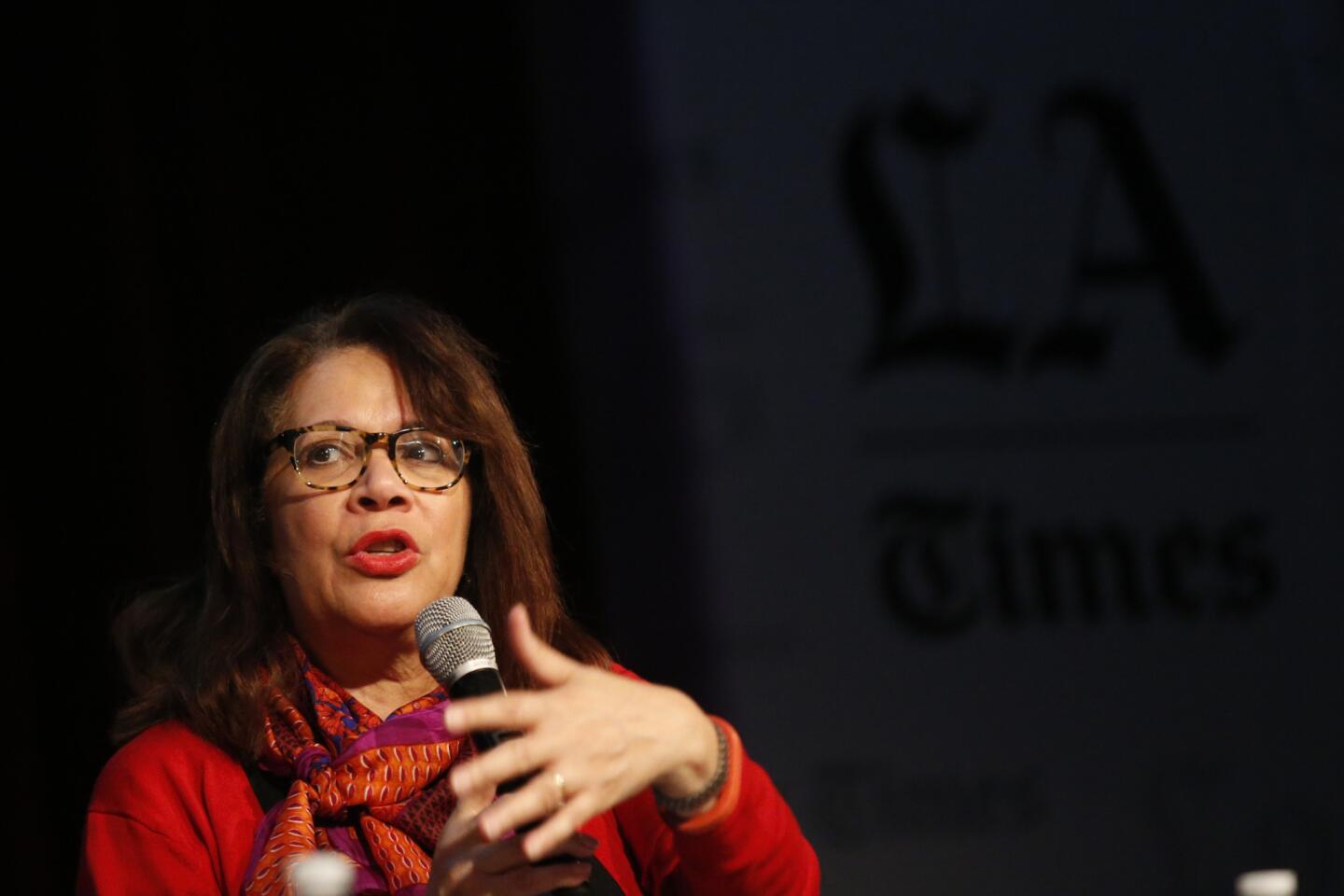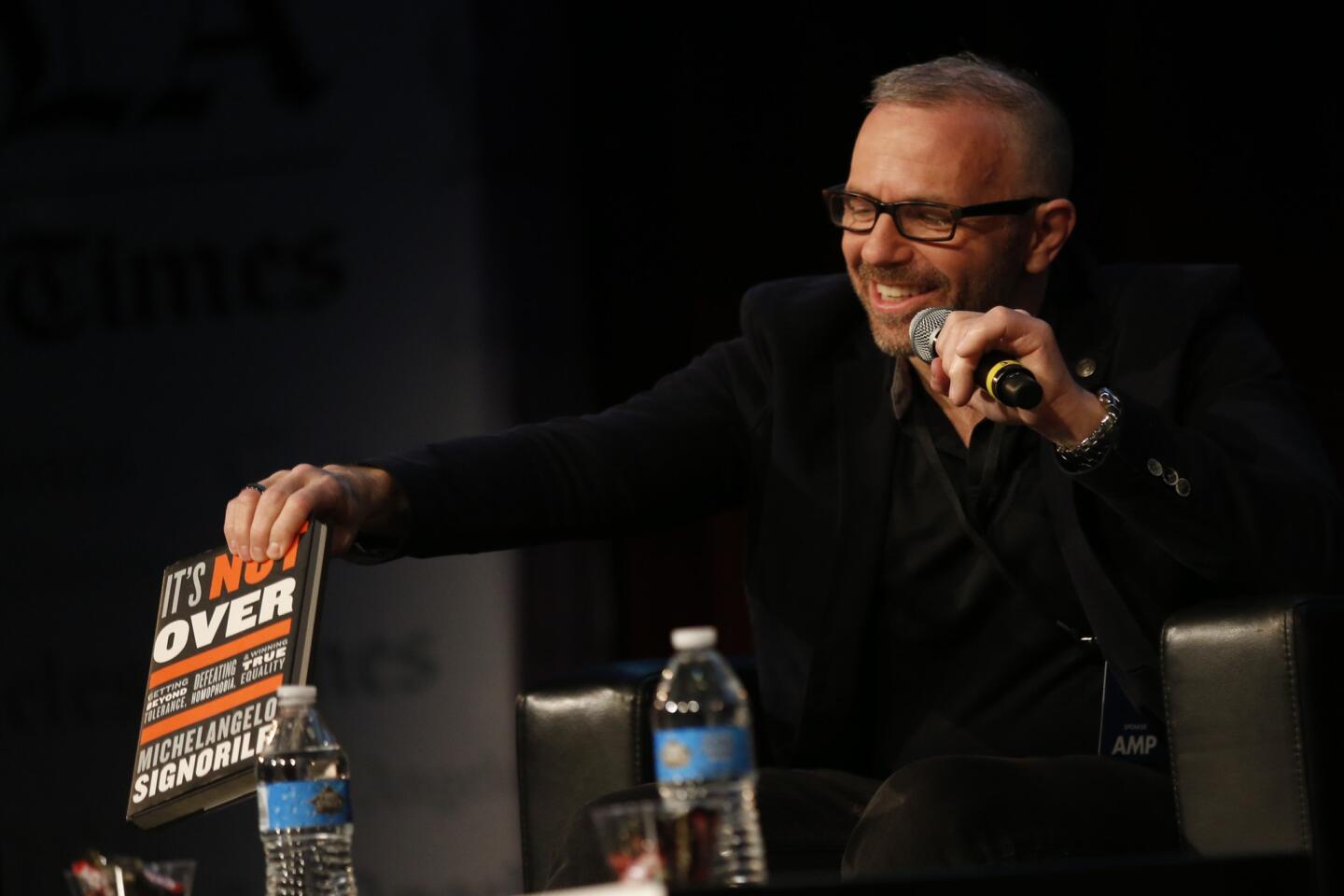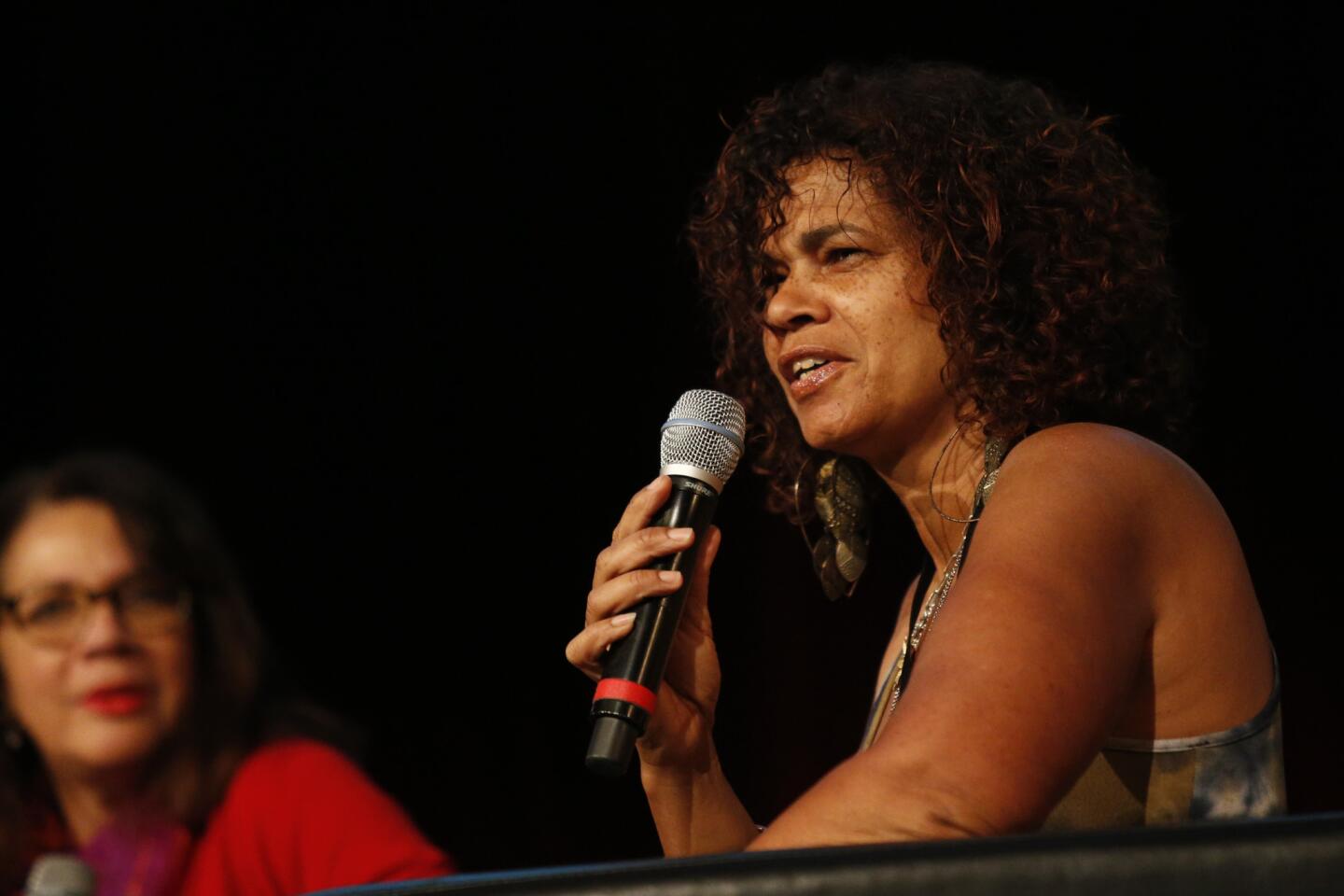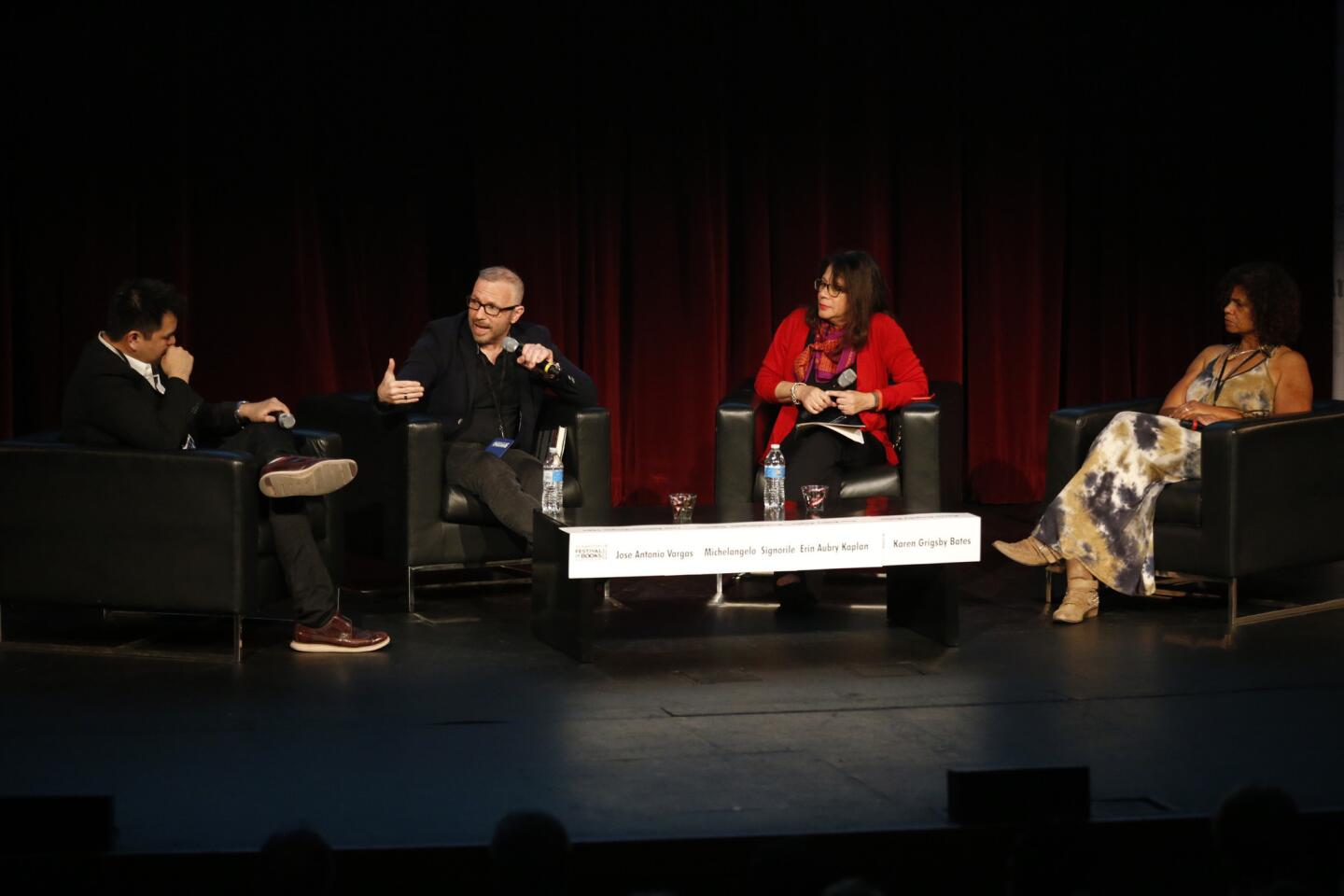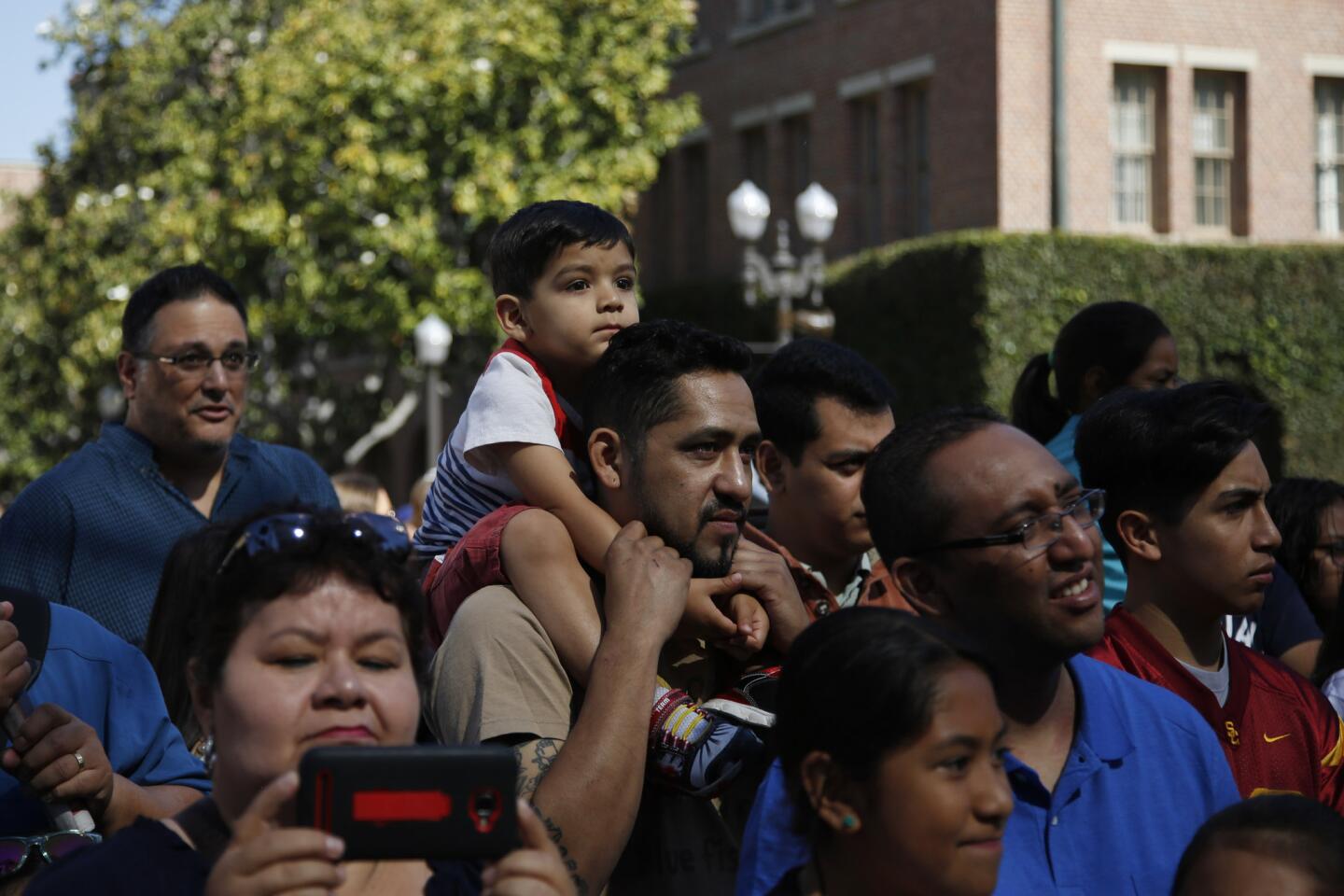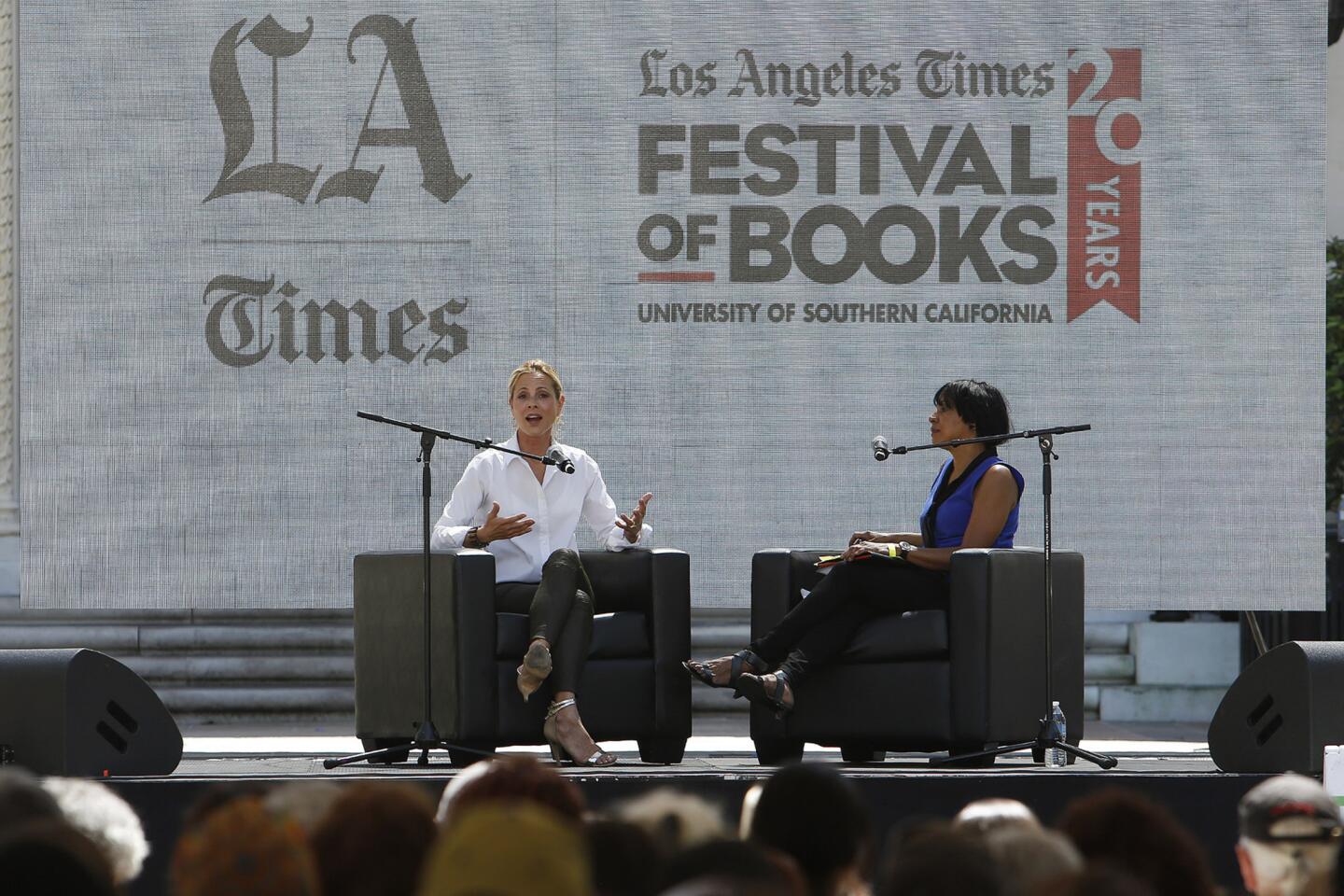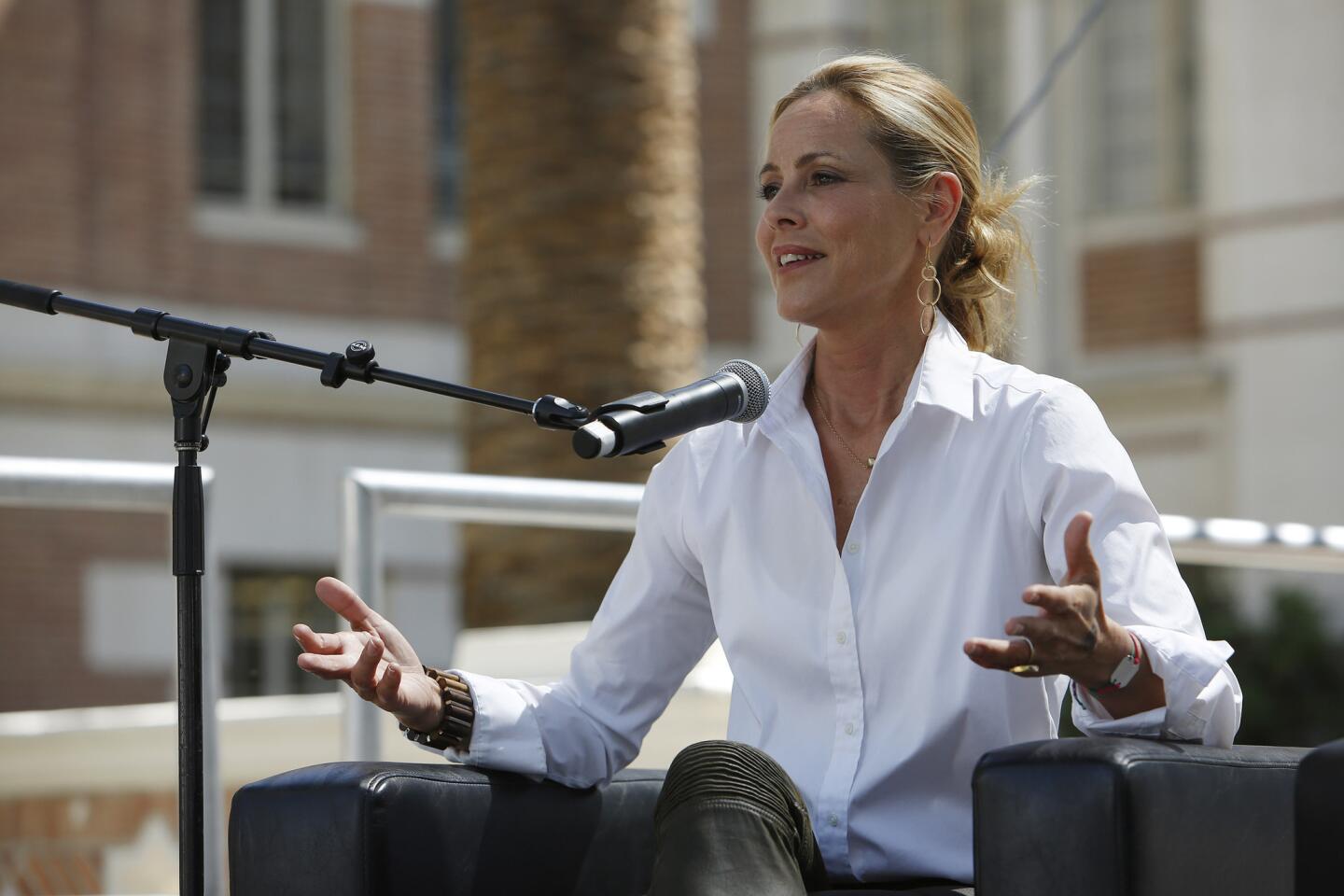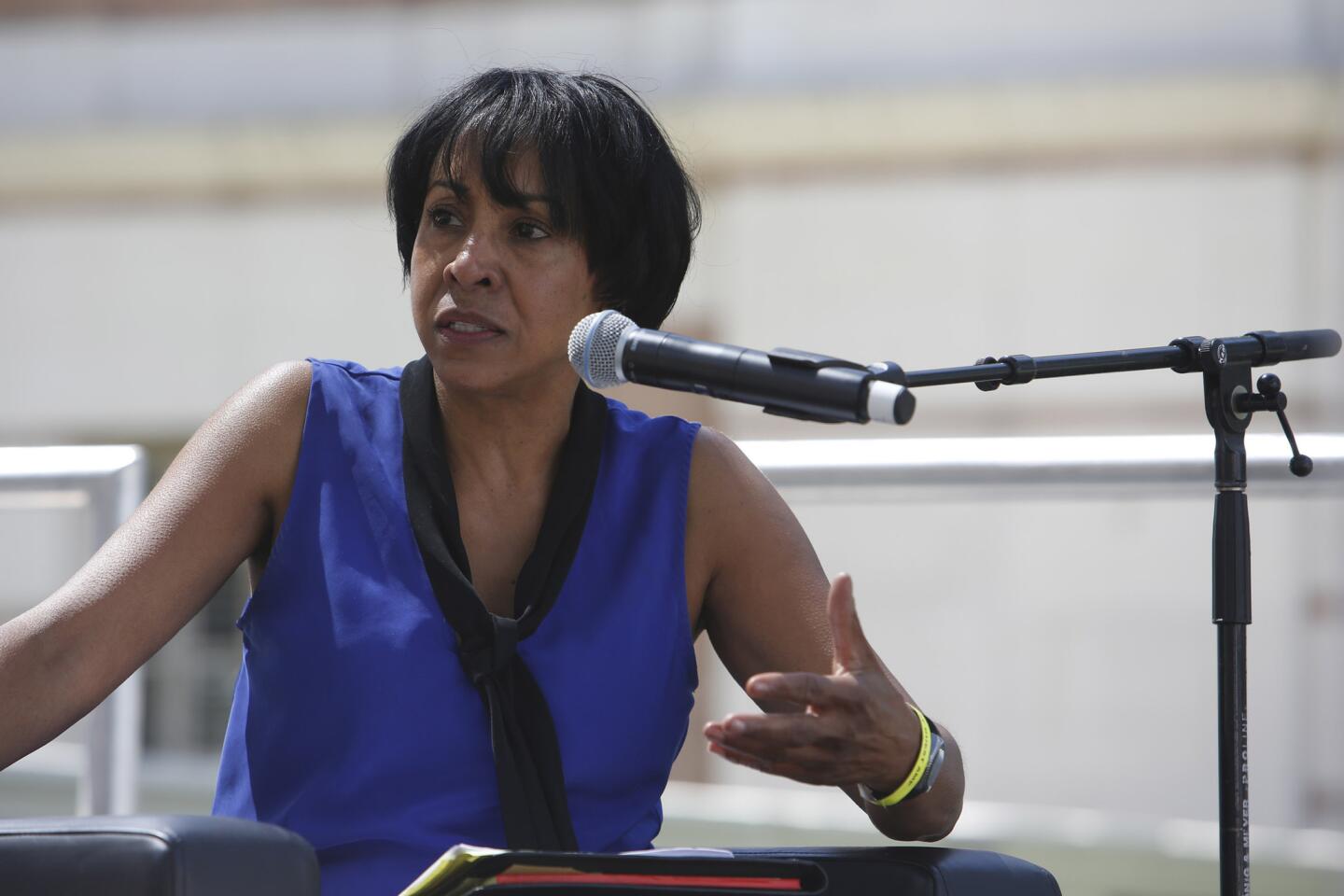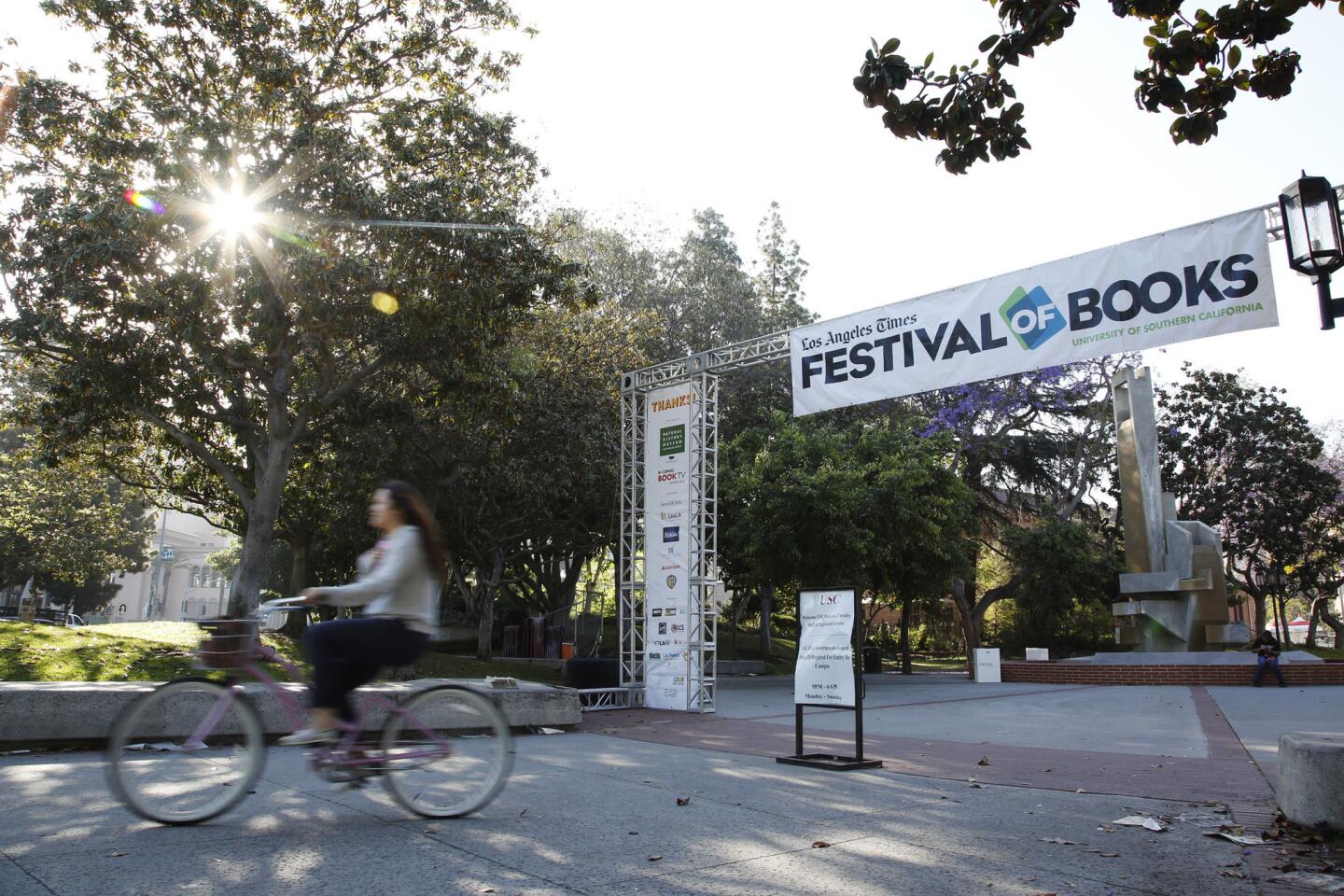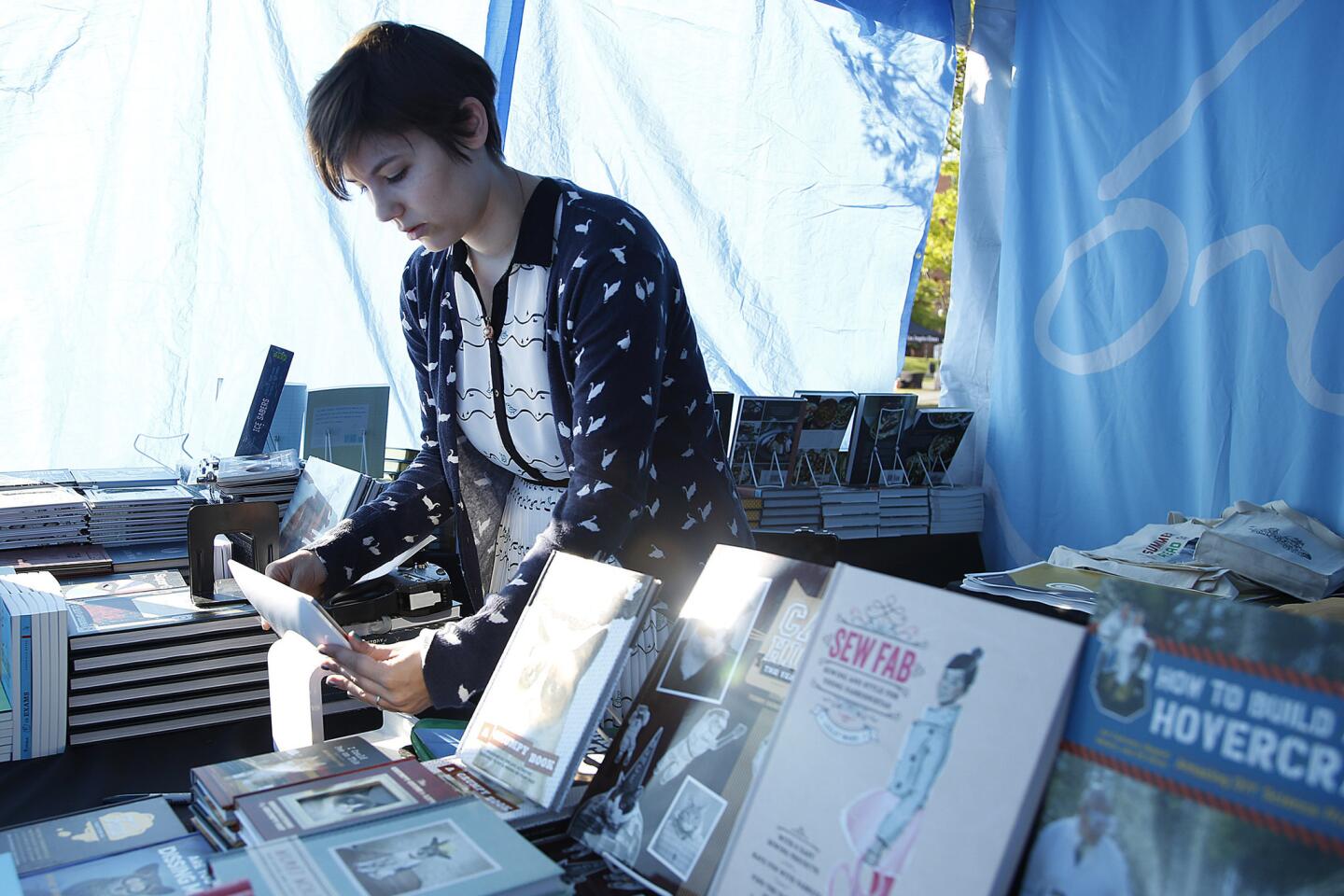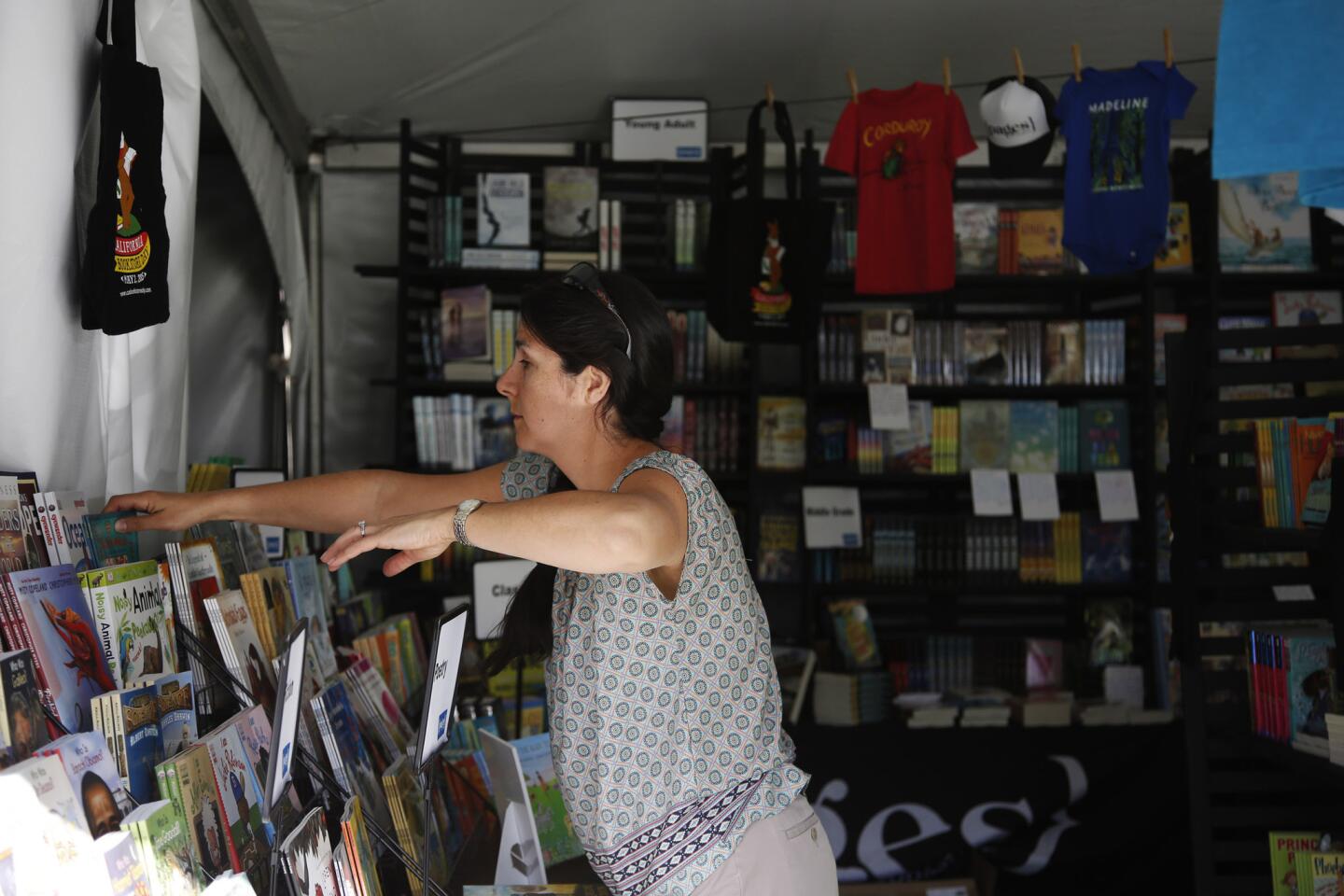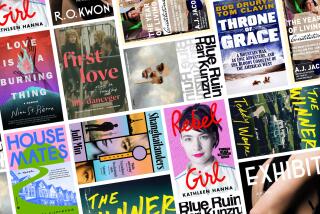Festival of Books: How authors tackle truthfulness in memoirs
A Los Angeles Times Festival of Books panel called “Whose Life Is It Anyway: Approaches to Writing Memoir” featured four writers who have taken very different paths to writing in the first person.
Moderator Leo Braudy, Bernard Cooper, Sandra Tsing Loh (“The Loh Down on Science”) and David Wilson were on the panel Saturday.
Despite their different philosophies and motivations, they all laughed with recognition when Braudy asked, “If a memoir isn’t embarrassing in some way, what’s the point?”
FULL COVERAGE: FESTIVAL OF BOOKS
Cooper, a former art critic for the Los Angeles Times Magazine, has written numerous memoirs, from his first, “Remembrance of a Gay Boyhood,” to his most recent, “My Avant-Garde Education.”
He said he thinks of first-person narrative as “a lens through which to see the world in general. The self is a vehicle to examine other people and larger issues in the world.”
Loh, whose most recent memoir is “The Madwoman in the Volvo: My Year of Raging Hormones,” about her transgressive menopausal experiences, has also been writing in the first person for much of her career.
In the 1980s, she said, she initially wanted to be a novelist, creating, like Tama Janowitz and Bret Easton Ellis, “books that were snarky but also important to America.” She realized, she said, that “I didn’t have that in me. When I started writing in my own voice, suddenly the work had more energy.”
She teasingly recalled that Braudy was her advisor in the USC graduate English program many years ago, and that he had counseled her against writing. “It’s still not clear that he wasn’t right.”
But Braudy and Wilson came to memoirs much later in their careers. Braudy, a professor of film studies at USC, wrote numerous books about film studies and cultural history before embarking on a memoir, “Trying to Be Cool: Growing up in the 1950s,” published in 2013.
#LITIDOL: AUTHORS DISCUSS THEIR LITERARY IDOLS
He said he was motivated to offset cultural cliches about the 1950s with his own very different experiences.
Wilson, a conductor and former music professor at USC, was an academic.
“I knew how to write a really dull essay,” he said. It wasn’t until he retired and moved to Phoenix than he began writing “The Dresden Manuscripts: Unearthing an 18th Century Musical Genius,” a record of a journey he took behind the Iron Curtain in 1971 to discover and re-create the music of forgotten composer Johann Adolf Hasse.
In fact, he was initially surprised by the invitation to participate in a panel of memoirists.
He hadn’t intended his story to be particularly personal, even as he wrote it in the form of a journal to make the search more immediate.
“But I’m in Vienna, I’m holding the original score of Brahms’ Requiem, a piece that means the world to me, that he wrote after the death of his mother. My mother had recently died. The book turned into a memoir right then,” he said.
The audience applauded when Wilson paused to call up a snippet of Hasse’s music on his iPhone and play it for the crowd.
“I guess you didn’t silence your device like the rest of us,” Braudy joked.
The foursome also approached the question of truthfulness in memoir from different angles.
An audience member asked, “What do you do if you’re afraid of hurting people’s feelings? Do you let that fear hold you back?”
Loh said she changes people’s names and identifying characteristics, but counseled that “people will still be mad anyway.”
Cooper suggested not worrying about it until after the piece is written: “There are so many good reasons not to write. You have to write it and then you can modify it.”
Braudy joked that “it’s very helpful when no one else remembers what happened.”
Wilson said that he has fallen in love with writing and is now working on a memoir about his father, which he may not even show to his only living relative, his brother, because “his opinions might influence me, and it’s my story.”
“If people want to set the record straight, they have to write their own memoir,” suggested Braudy, to much nodding.
INTERACTIVE GAME: HOW TO BE A WRITER
Another audience question, “What motivates you?” crystallized the different points of view onstage:
Loh: “It’s what I do.”
Braudy: “To be a witness.”
Cooper: “Something about the fleeting nature of all things. One of my protests against mortality is the possibility of preserving these events.”
Loh: “I hate what I said! I wish I said what Bernard said.”
Wilson: “I love the idea that there’s something I need to do when I get up in the morning. I’m eternally grateful for it.”
Check out the Festival of Books schedule for this weekend.
MORE FROM THE FESTIVAL OF BOOKS:
Poetry, from sonnets to the ‘language of the street’
Film inspired authors, whose books then became films
Is it rude to ask women humor writers how they differ?
Follow the books section on Twitter @latimesbooks and Facebook
More to Read
Sign up for our Book Club newsletter
Get the latest news, events and more from the Los Angeles Times Book Club, and help us get L.A. reading and talking.
You may occasionally receive promotional content from the Los Angeles Times.
